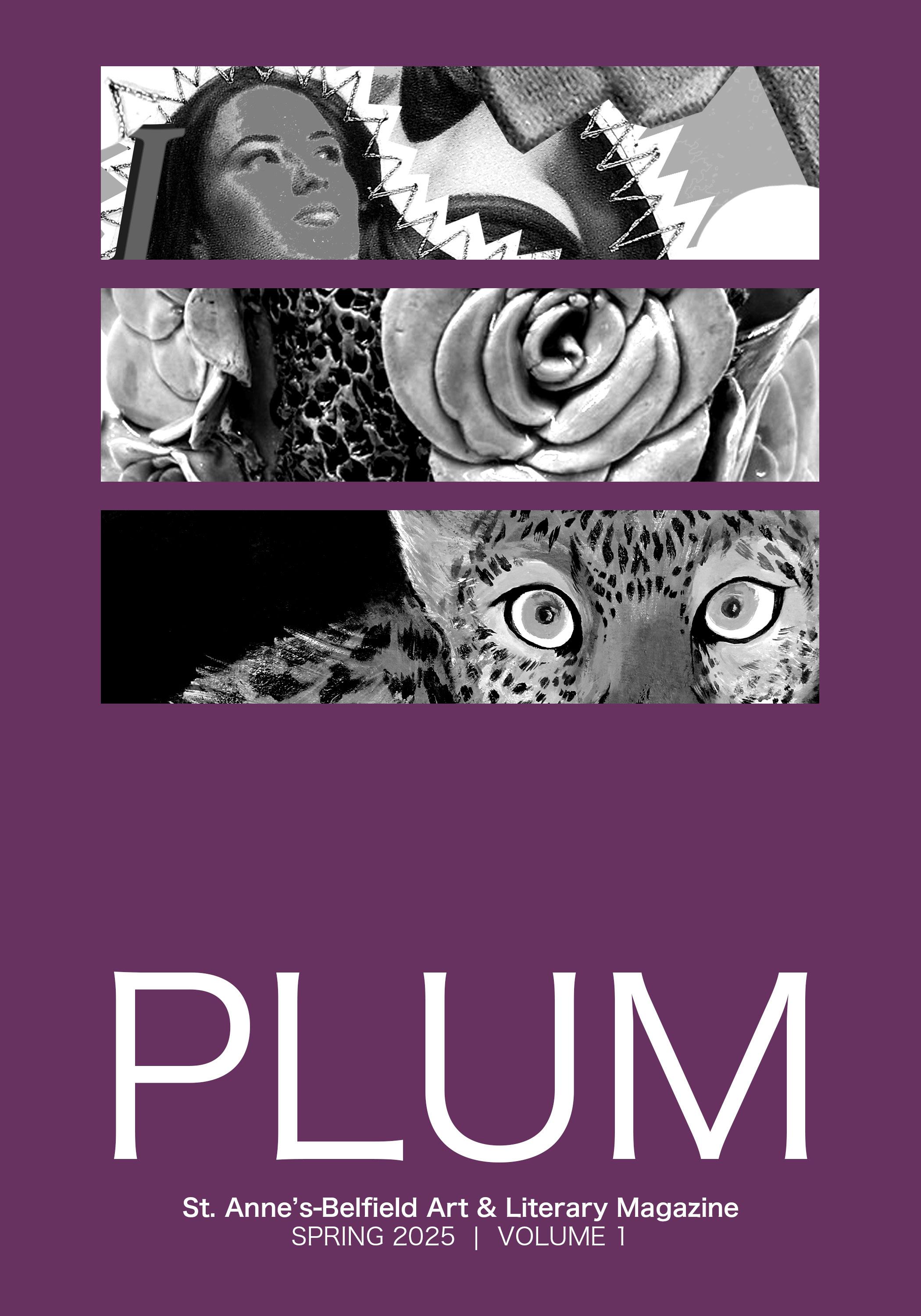

PLUM
St. Anne’s Belflield Art & Literary Magazine SPRING 2025 | VOLUME 1
PLUM
SPRING 2025 | VOLUME 1
Welcometo the first edition of the PLUM. Unlike the newspaper or the yearbook, PLUM focuses solely on our students’ creative voice, and over the past couple of months, our staff has collected your work to display in this issue. PLUM has existed in the past, but has never presented such a range and depth of visual and literary work. We believe our new PLUM to be more than just a collection of words and images, but a representation of the artists that make up our school, and each annual copy will stand as a time capsule for our student body’s many creative talents. This iteration of PLUM continues the school’s rich tradition of collected student artistic work reaching back well before the St. Anne’s and Belfield School merger. These previous publications include Facets, A Book of St. Anne’s Verse, Footprints, Bellringer, Oasis, Tangible Fringe, Mirabella, among others.
We thank and celebrate everyone who submitted their work and hope to receive work from all of you in the future. We also thank the Arts Boosters for all their help and donations to the school’s artistic endeavors. One visual piece and two poems have been selected as the favorite pieces of the Art Boosters. Congratulations to Anastasiia Pestova for her painting of a woman surrounded by oranges, as well as “Can’taloupe” and “To be a Pear” by Dylan Fox, for receiving the spotlights of this edition.

EXECUTIVE STAFF
Josephine Carter ’27
Anni Chen ’26
Ani Fairbanks ’26
Alaja Gough ’26
Caroline Reilly ’26
Nori Zhang ’27
FACULTY ADVISORS
Mr. James Mattise ’10
Mr. Frank Phillips
FACULTY CONTRIBUTORS
Ms. Susan Brodie
Mr. Jacob Stoner ’11
Mr. James Zunka ’00
Josephine Carter ’27
Cover Credit: Ani Fairbanks ’26, Willow Pemberton ’25, Josephine Carter ’27
TABLE OF CONTENTS
This volume of PLUM has been arranged in a manner that creates relationships between selections of visual and literary art. The contents of each spread were carefully curated by our staff to place diverse individual works in conversation. While curating this edition, we considered the themes, composition, and color when pairing pieces. We hope that our selections both represent the art well and enrich the reading experience.
Alex Ashby ‘26: 67
Coco Balette ‘27: 42
Marley Biggs ‘25: 21
Michael Brimacombe ‘28: 43
Nori Carter ‘26: 36
Josephine Carter ‘27: 60
Anni Chen ‘26: 37
Jelena Conn ‘25: 40
Margaret Connors ‘25: 16,
Matthew Cottler ‘28: 59
Andrew Cottler ‘26: 34
Katelyn Cusick ‘28: 11
Watty Dalton ‘27: 19
Tanner Davidson ‘27: 21
Caspar de Vink ‘25: 35, 64
Miranda Del Angel Hernandez ‘26: 24, 57
Bella Duke ‘27: 57
Lochlyn Duncan ‘28: 36
Ella Edelberg-Moore ‘27: 21
Branch Ellis ‘28: 39
Ani Fairbanks ‘26: 13, 32
Blake Farnsworth ‘26: 23, 69
Cabria Feggans ‘25: 70
Sally Fleming ‘27: 49
Dylan Fox ‘25: 9, 39, 70
Joaquin Gatt ‘26: 61
Sammy Gaughen ‘28: 21, 65
Austin George ‘28: 57
Alaja Gough ‘26: 10, 25
Burke Gunther ‘25: 35
Marin Halstead ‘25: 50,56, 71
Evelyn Hancock ‘28: 54
Margaret Hanley ‘27: 55
Ryan Henyon ‘28: 21
Oscar Hickey ‘26: 69
Eva Hightower ‘25: 61
Quinn Humphreys ‘27: 23
Diana Ismailova ‘26: 27
Lyla Jenkins ‘28: 44
Zuck Jiao ‘26: 12, 64
Will Jiao ‘26: 47
Ari Kastello ‘27: 43
Anna Kelly ‘25: 66
Lainey Kushkin ‘25: 66
AJ Lamas-Nemec ‘25: 72
Caroline Lang ‘25: 53, 55, 65
Frances Lawson ‘27: 20, 40
Ivy Lyman ‘25: 12,
Colin Maher ‘25: 21, 68
Chance Mallory ‘25: 53
Wes Martin ‘25: 65
Bri Mason ‘25: 20
Josh Matula ‘27: 39
Molly Maurer ‘26: 19
Charlotte Miller ‘27: 58
Chase Miller ‘28: 58
Oliver Moore ‘27: 25
Violet Moore ‘28: 32, 33, 38, 57
Darby Oakey ‘27: 31
Finn Parlee ‘27: 28
Willow Pemberton ‘25: 34, 54, 65
Townes Peper ‘25: 57
Julieta Perez Veiga ‘26: 56
Cadigan Perriello ‘25: 28,29,30
Anastasiia Pestova ‘27: 8, 51
Mia Pisani ‘25: 55, 72
Kade Pratt ‘25: 69
Mattie Rannigan ‘27: 13,
Bella Rannigan ‘25: 26
Caroline Reilly ‘26: 64
Parker Ross ‘25: 38
Ginny Rowe ‘27: 14, Alina Sheehy ‘27: 37
Charlie Smith ‘28: 15, Chapin Smith ‘26: 27
Leni Sommer ‘27: 44
Lilly Sopata ‘25: 27
Chaney Stewart ‘26: 62
Brody Taylor ‘25: 33
Olivia Tennery ‘26: 42
Sanaa Thomas ‘25: 69, 73
Jember Tu ‘28: 24
Dax Villines ‘27: 43
Layla Welsch ‘25: 18, 22, 66
Liam Welsh ‘27: 48
Kate Wilber ‘25: 62, 66
Will Yow ‘26: 16
Nori Zhang ‘27: 57, 64

ARTS BOOSTERS AWARDS
This spring, we co-chairs of the Arts Boosters were honored with the task of selecting two outstanding student works—one visual and one literary—for this new iteration of PLUM. As spring turns to summer, we find ourselves sweet on fruit. We are pleased to recognize Anastasiia Petrova’s painting and Dylan Fox’s poems “To be a Pear” and “Can’taloupe.”
Pestova’s painting lures us in through bold colors and symbolism. It is both provocative and folksy, evoking a sense of personality and storytelling. Visually, the composition is balanced, with the fruit and flowers arranged to frame the subject, creating stability and a strong focal point. And, while all of the elements are familiar, we are invited to wonder what they might mean together in this piece. The painting feels dynamic and cheerful, and also mysterious, which makes us hungry for more.
Fox turns the love trope upside down in his fruit-infused rejection poem. The speaker directly addresses a “never dear,” explaining that the two are not fated “to be a pear [pair]” (l. 13, 1). Fox combines traditional formal elements—four (mostly) iambic quatrains with ABCB and ABAB rhyme schemes, and archaic diction such as “thou” for you—with clever wordplay that amuses and surprises (3). For example, appeal appears instead as its invented homophone “apeel,” and homonym “date” doubles as rendezvous and fruit (2, 9). Repelled by the subject’s “rancid” longing, the speaker winks at us to the very end (4). We are left with a cantaloupe, marveling at the poem’s charm and wit, and Fox’s impressive dexterity with language.
Arts Boosters Co-Chairs
Carrington Alvaraz, P. ’32, ’35, ’37
Nicole Snyder P. ’31
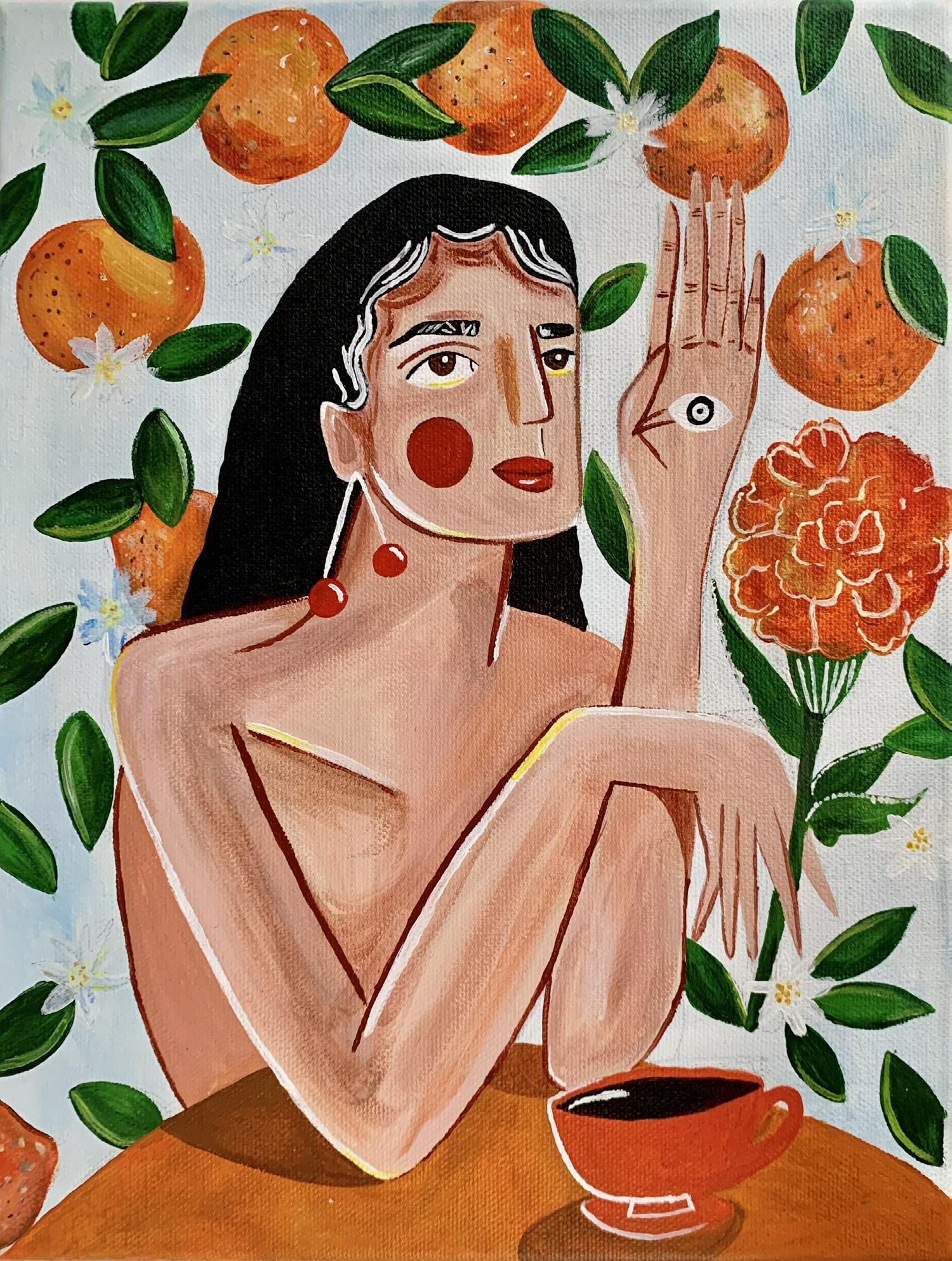
Anastasiia Pestova ’27
To be a Pear
Dylan Fox ‘25
I would not dare to be a pear; this plea has no apeel. I do not see why thou pine for me; it’s rancid—this whole ordeal.
You are strong-willed, it’s true we’re tilled from the same old garden hoe. But since our date, I’ve known it’s not fate This endeavor is fruitless so.
I’ll save my psalm for a different pome— To another I’ve been avowed. Now do stay strong since you belong In the field where you were plowed!
I’ll stay right here my never dear— I do hope you can cope! It is my fear you won’t adhere, But know—we can’t elope.
Can’taloupe
Dylan Fox ‘25
I find it swell—their musky smell— though I cannot graze their skin. They’re told as well—we cannot mell. Yes—keep your juices in.
Since I was ripe, I’ve had a gripe with the range where I was rais’d. What I find phony: planned matrimony; a field that has had me maized.
If we can’t do what honeys dew to spread our vines and seed; I’ll follow through and start anew and carve up a devious deed:
To become whole I’ll simply roll out the patch and down the slope. Without my stem, I’d be with them. But for now—we can’t elope.
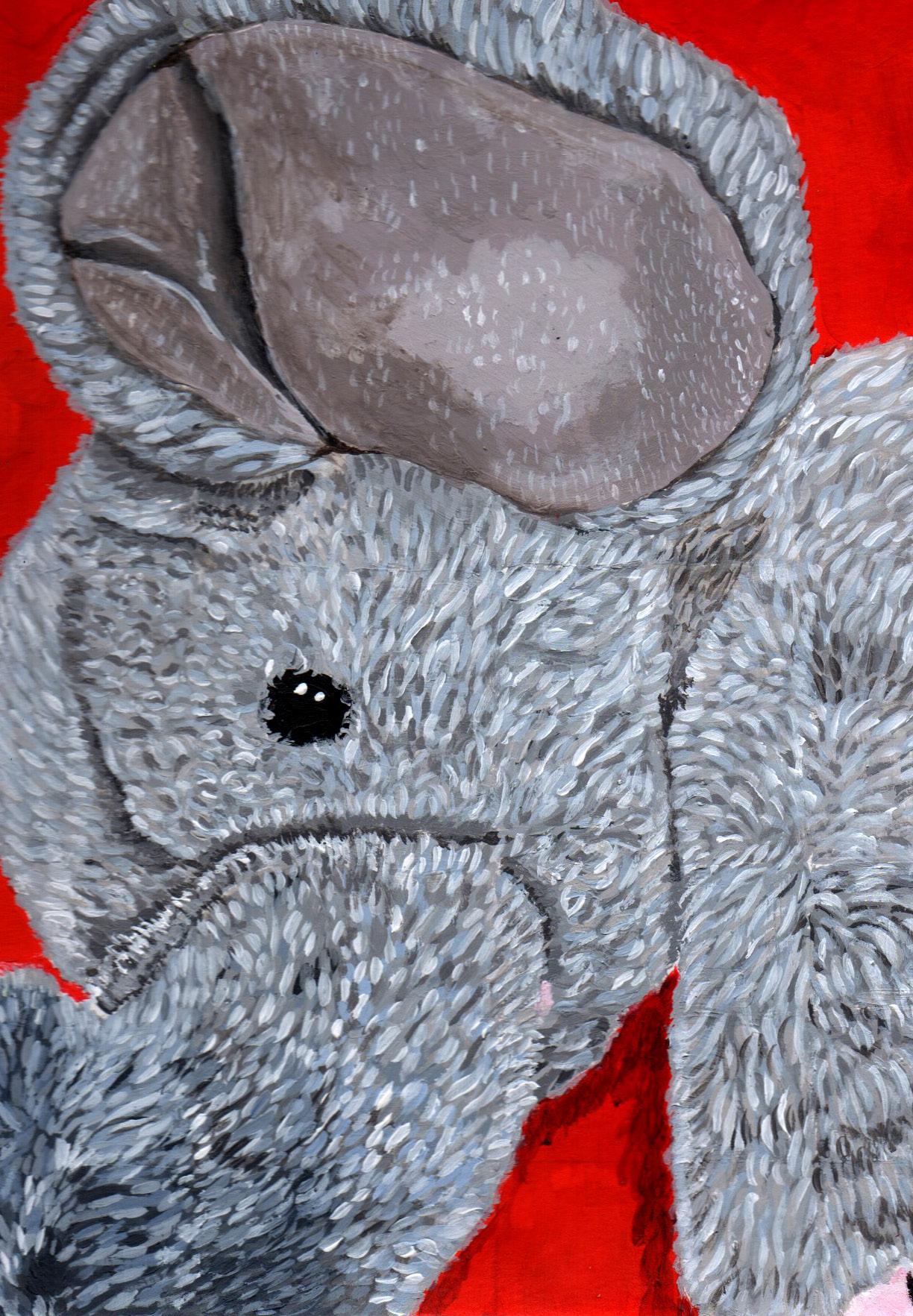
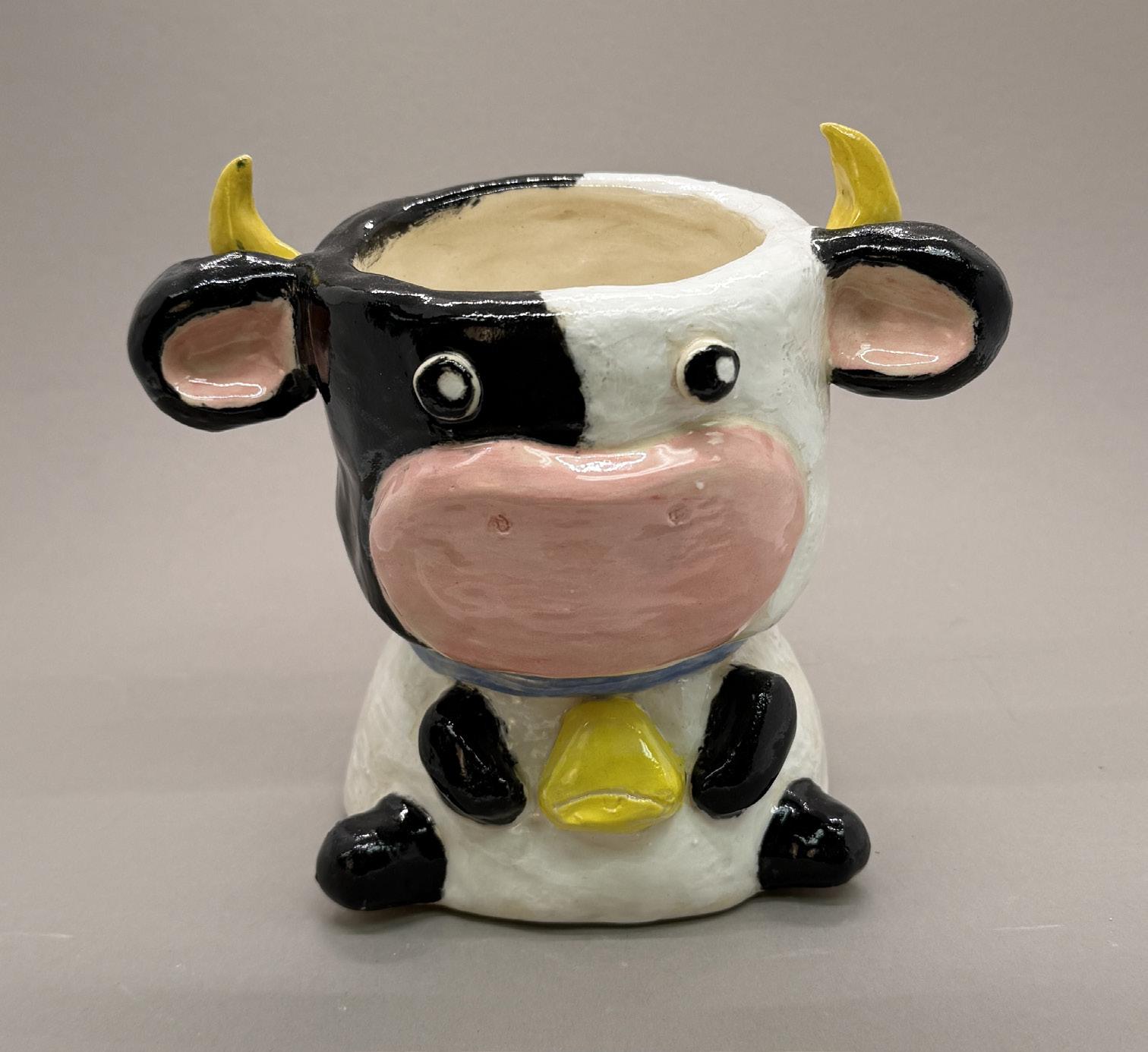
Opposite: Alaja Gough ’26
Katelyn Cusick ’28
March Morning Breathing
After Ada Limon Ivy Lyman ’25
Some mornings in March when you can tell it’s going to be warm later but it’s not quite there yet, and a sliver of sun noses into the royal blue sky and you step onto your porch for just a moment and pull your sleeves down over your hands with a small shudder, some mornings in March a certain smell hovers in the air. A subtle, crisp, dewey, slightly floral, slightly earthy scent as if the earth is saying, “Hold on, you’ll want it to be like this again in a few hours.” Normally, you’d rush inside from the cold, but that air makes you pause. So breathe in a lungful, exhaling stale winter air. Some mornings in March, the breath of spring rejuvenates your body from the inside out, thawing stiff, tired, winterized muscles and clearing cobwebs from dusty corners the sun hasn’t reached in months. Buds burst in your heart, opening as the sun crests the horizon. Some mornings in March, you just need to breathe.
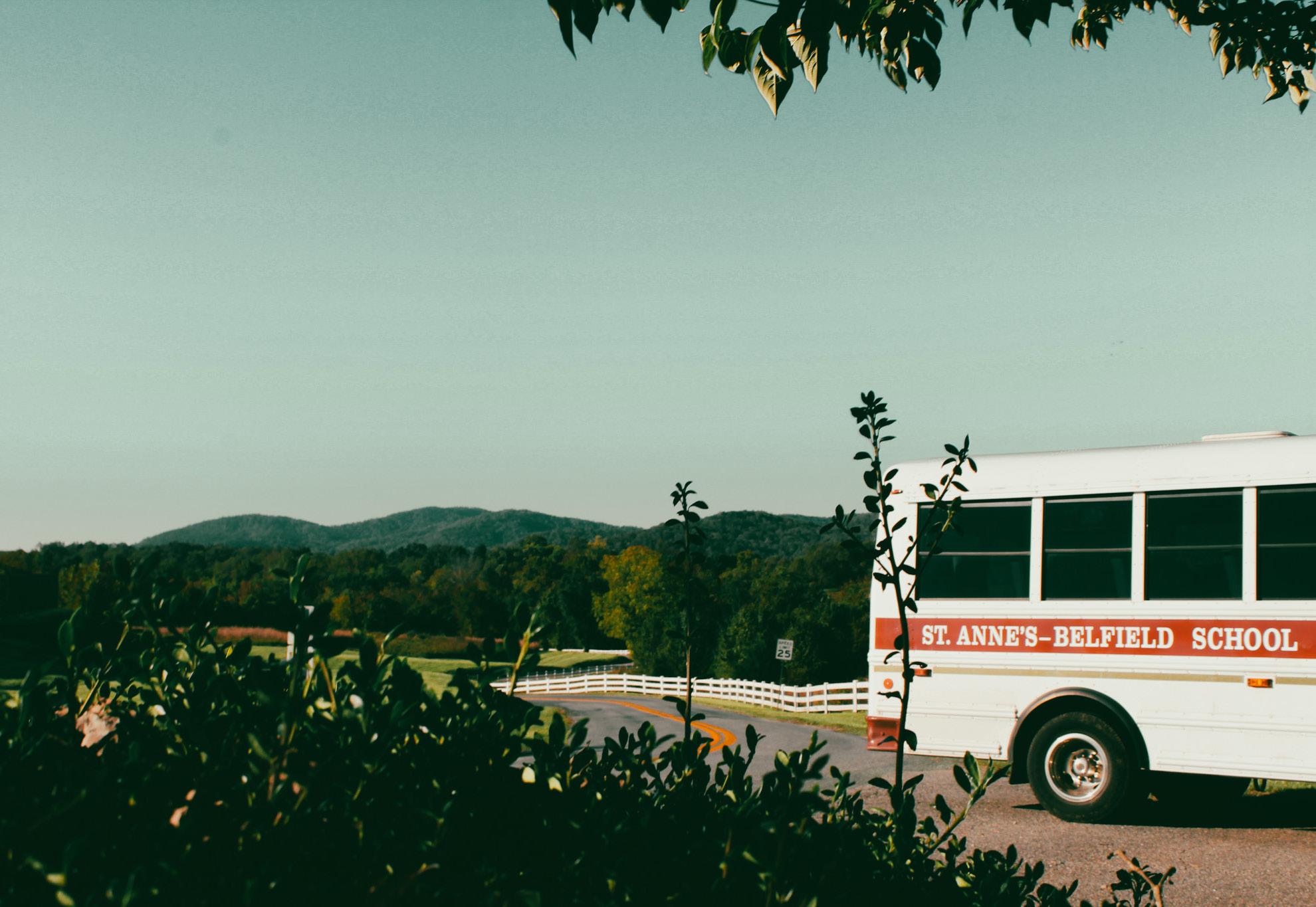
Zuck Jiao ’26
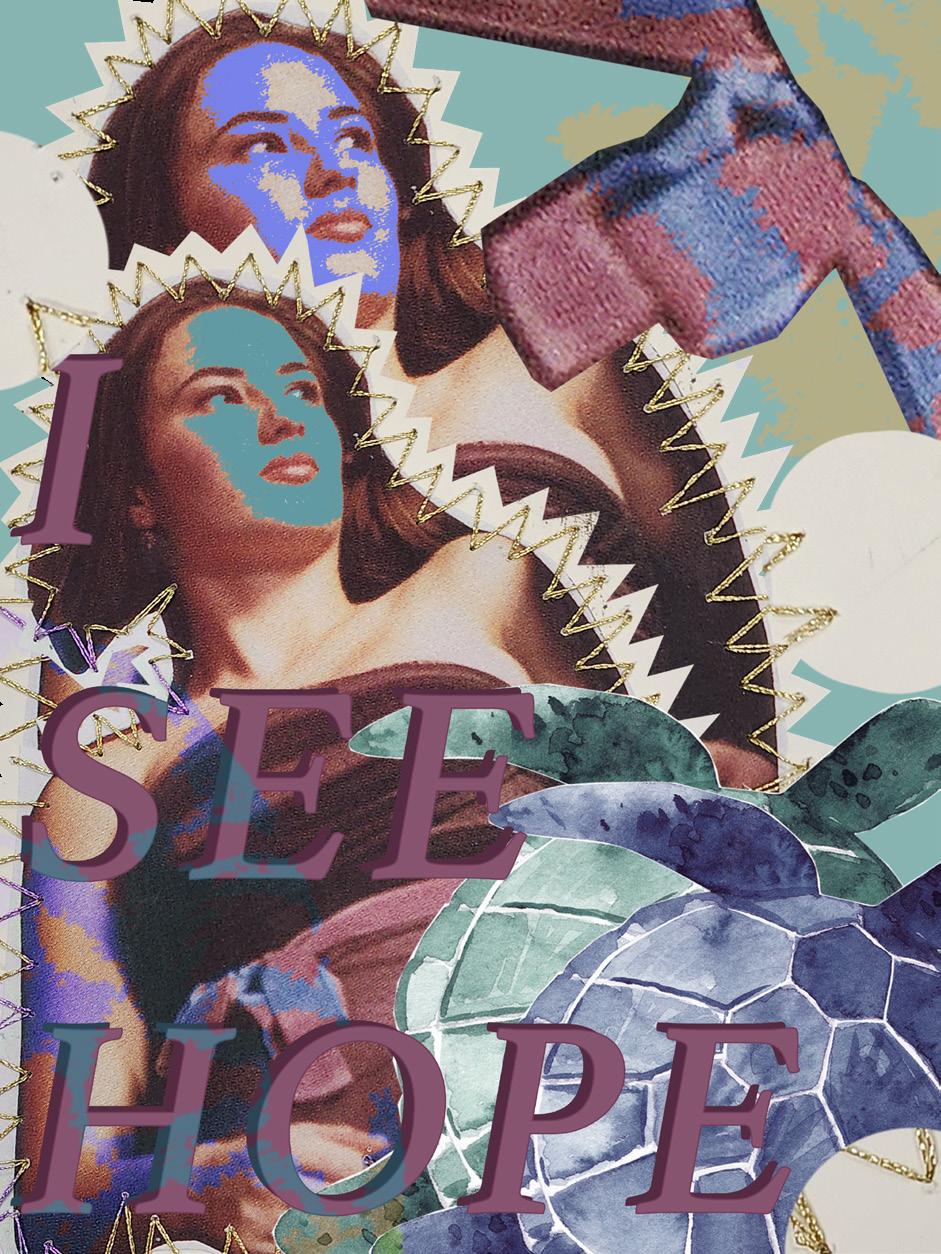
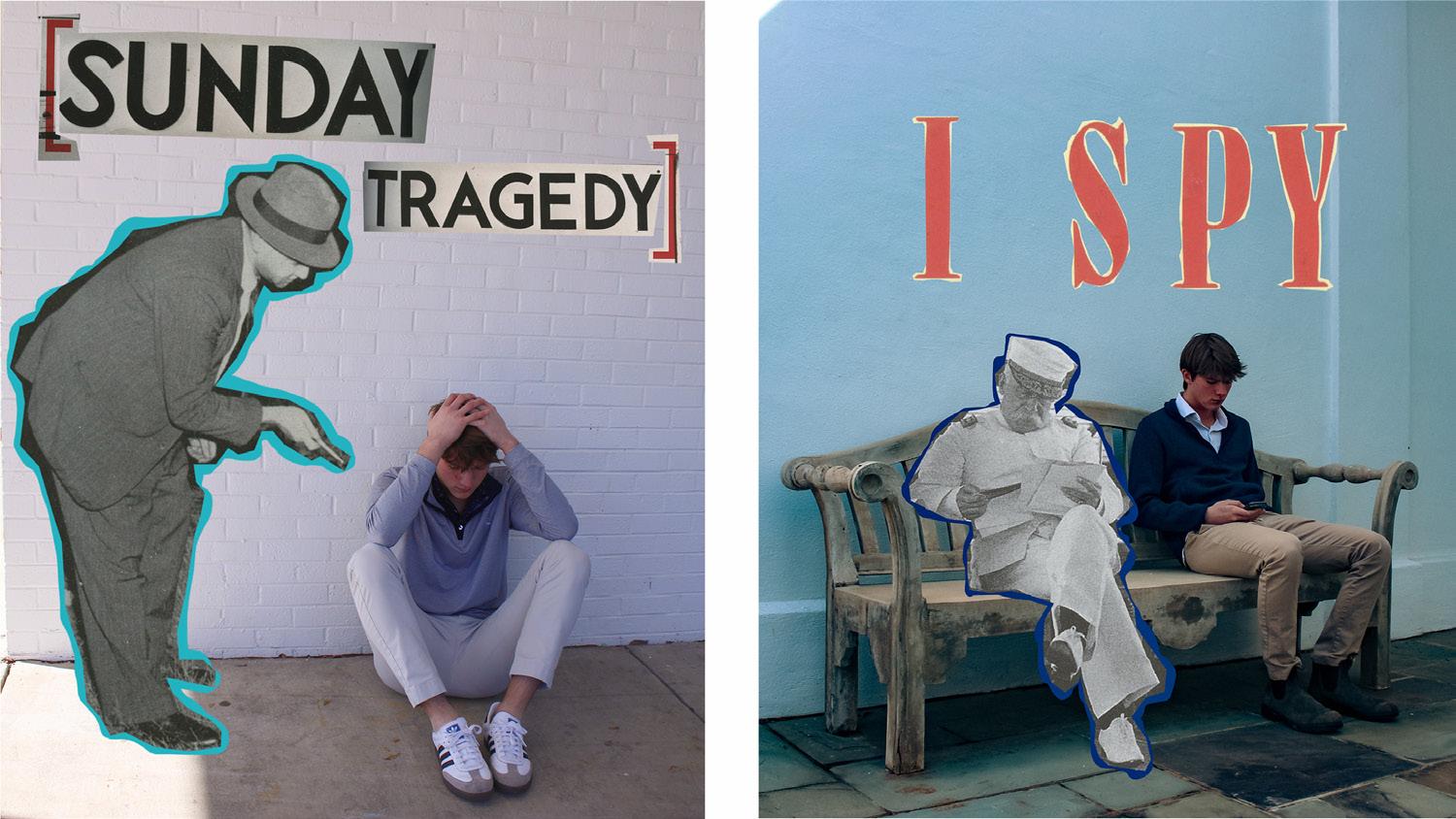
Ani Fairbanks ’26
Mattie Rannigan ’27
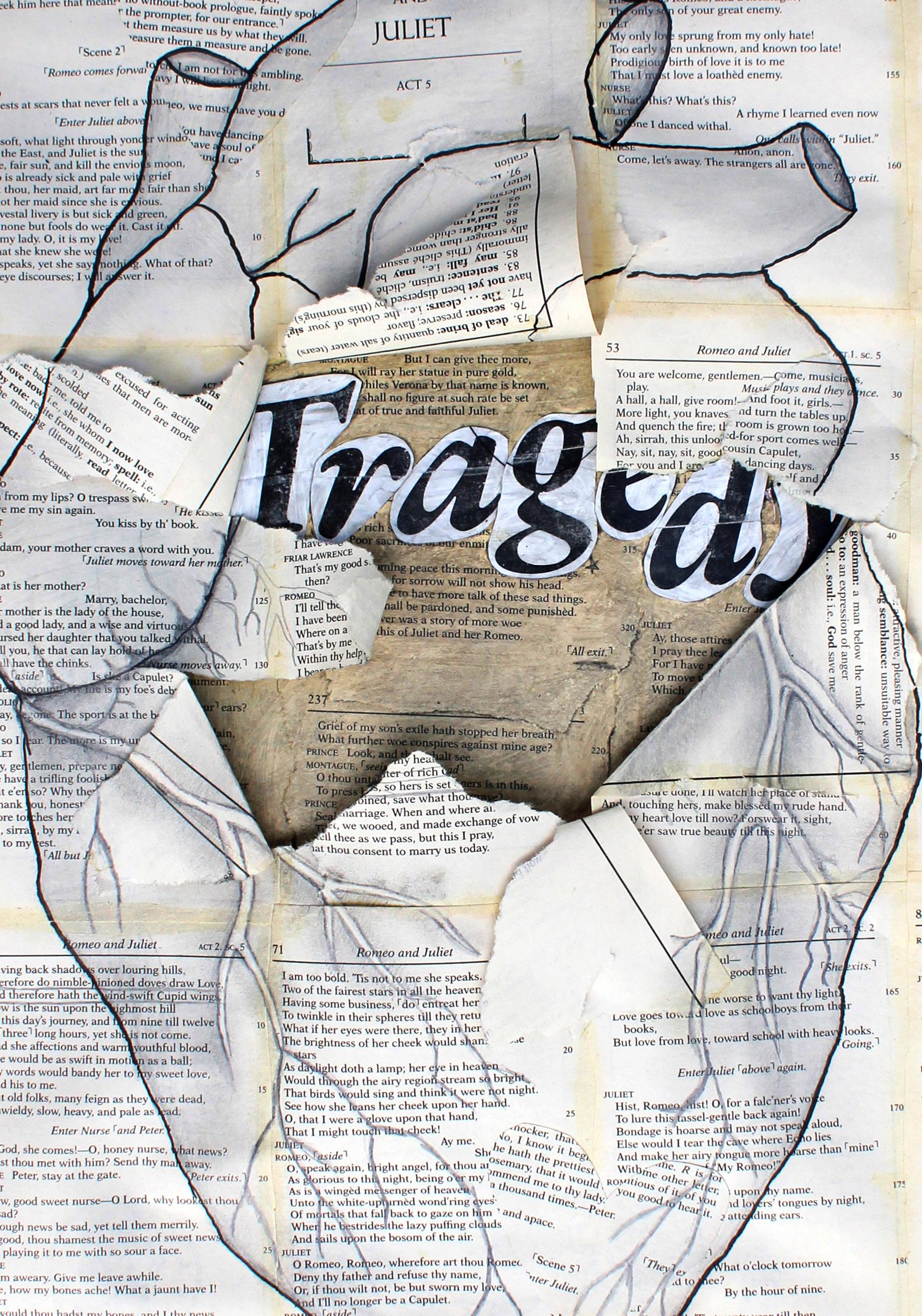

Opposite: Collage by Ginny Rowe ’27
Charlie Smith ’28
Princess Dottie and the Mercy Leaf
Margaret Connors ‘25
In a kingdom belonging to a faraway land called Druhastrana, there lived a princess named Dottie. Dottie was the jewel of the kingdom, she was beautiful and beloved by all who knew her. Dottie’s eighteenth name day was soon, and this name day would allow her to become queen of Druhastrana. The subjects of the kingdom were overjoyed for the day that they would be ruled by the beautiful and kind Queen Dottie.
One day, as Princess Dottie was picking flowers in the castle garden, a great wind swept through the land, and an old woman dressed in rags stood before the princess. The flowers in Dottie’s hands immediately started to shrivel, losing all color and scent. The clouds above grew darker, and thunder rumbled. Dottie recognized the old woman only from the stories she had been told all her life.
“The Evil Hag of Druhastrana! Why have you come to the castle after all this time in isolation? What is it you seek?”
The Evil Hag spoke: “Don’t be scared, little girl, for I am not evil. Though some might say differently, I come in peace! What a beautiful young child you are. How would you like to stay
this beautiful and youthful forever?” The princess, though beloved, was naïve. Feeling bad for the Evil Hag’s sheer ugliness, Dottie came closer, curious as to what the Hag had to say. She continued, “I cannot get past your beauty, please, let me see you closer! I must touch your beautiful face, your beautiful hair!”
The princess complied, and as the Hag touched Dottie’s face, the cold wind from before rose up again. Dottie looked down and found her skin turning to dough, her face turning to icing, until she was nothing but a girl made of gingerbread.
“Silly girl,” the Evil Hag cried, “You have fallen for my spell! Now that you are a Gingerbread Girl, your kingdom will turn on you, and I will rule once again!”
Dottie, horrified and scared, pleaded to the Hag for a cure, asking her why she was doing this when Dottie had done nothing to her.
“Nothing?” The witch asked. “You and your horrid family have done everything to me! I once ruled all of Druhastrana, and my dreams of gingerbread were unstoppable! People lined the streets for a taste of what I gave them. I was all-powerful. Then, your family rebelled and established the kingdom of Druhastrana, exiling me to the dark wood while they got to rule what was rightfully mine. As long as I’m breathing, you will slowly be reduced to crumbs. Now, with an heir cursed by me, their kingdom will crum-

Photograph by Will Yow ’26
ble and I will prevail!” With that, the Evil Hag disappeared into a cloud of smoke, off to terrorize the village with her gingerbread dreams of dominance.
Alone and terrified, Princess Dottie went to her most trusted advisor: her wise and strong godmother, Margot. When Dottie explained her curse to Margot, the godmother of the princess reacted with a calm, thinking expression.
“Well, you’ve got yourself in quite the situation, now don’t you? I can’t believe my goddaughter would ever listen to that filthy woman, you never did listen to me or your mother. And she just had to turn you into gingerbread, I can’t stand the sight of you.” Margot has always been known for her blunt nature.
“I’m sorry, Godmother! You must help me break her spell!” Dottie exclaimed, not used to the coarse texture of her gingerbread skin.
“I suppose I do. Well, it’s a relatively simple fix; we’ve got to kill the Hag. Now, you do that by going into the deep wood and collecting a root called mercy leaf. The Hag had so much of it in her younger years, if she’s caught anywhere near some, she’ll implode.”
Dottie thought about the task before her: “Won’t you come with me, Godmother?” Margot snorted at the request.
“Me? Go into the deep wood? God no. You got yourself into this mess, you can get yourself out of it.” With that, Margot left Dottie to save herself. The gingerbread-infested princess packed a small bag of necessities and reluctantly marched to the edge of the wood. Sighing, she entered the dark depths.
Dottie had only heard about the deep woods in bedtime stories, yet she found that the setting in which she found herself was nothing like what she had been told. Instead of a sprawling forest filled with monsters, thieves, and smugglers, the princess was surrounded by beauty. Tall trees as high as the castle stood strong before her, and the soft grasses and colorful wildflowers made for a wonderful walkway.
Dottie supposed that she had been told differently in order to keep her away from the home of the Evil Hag. As the princess made her way, she gazed all around the charming wood.
After walking for hours, Dottie sat down to rest when she came across a strong smell coming from a plant she’d never seen before. Moving closer to it, the smell started to make her
feel hazy, and this reaction solidified in her mind that the plant was indeed mercy leaf. Margot had mentioned that the root had this effect. After collecting enough of the plant to subdue a large family, she finally headed back to the castle.
Now home, Dottie and Margot set to work on the plan to catch the Evil Hag. After crafting a meticulous strategy to kill her lifelong enemy, Margot turned the mercy leaf into a powerful and potent perfume. Now all that was left was the execution.
Margot stood in the middle of the garden, vulnerable.
“Where are you now, you old witch? Reliving the glory days? Come down here and show me why you deserve to be back at the top!” Margot screamed at the top of her lungs, praying that the Evil Hag would hear her. It seemed that her prayers were answered when a gust of wind revealed the Hag, standing before her.
“Well, it’s been so long, hasn’t it, Margot? I can see you’re still youthful as ever,” the witch said.
“Jealous, are you? Do you miss your long, healthy hair or your clear, smooth skin? I sure would if I looked like you do,” Margot pushed. It seemed she hit a nerve as the Hag’s face morphed into an expression of pure disdain.
“How dare you! You did this to me! I’ll show you just how you and everyone in this land will look when I’m done with you!” With that, the Evil Hag lunged at Margot, but was too slow. Margot dodged her as Dottie jumped into sight, bottle of perfume in hand. As she sprayed its contents onto the Evil Hag, the entire village could hear the witch’s screams and gags. The mercy leaf suffocated the Evil Hag, and all that remained were her old rags. As the witch died, Dottie felt her body changing once again, rough skin once again becoming smooth and soft, her facial features returning, and her beauty and youth restored.
“Thank you, Godmother! I’m so grateful for you!” Dottie hugged Margot tightly, a common sign of affection from the princess. Margot brushed this gesture off, saying, “Yes, yes, I know. I am the all-powerful Margot, you shall kiss my feet, blah blah blah. Just never ignore the warnings I have given you, you are still a child.”
The pair returned to the castle with a deeper understanding of each other, and the princess felt much more ready to step into her upcoming role as queen.

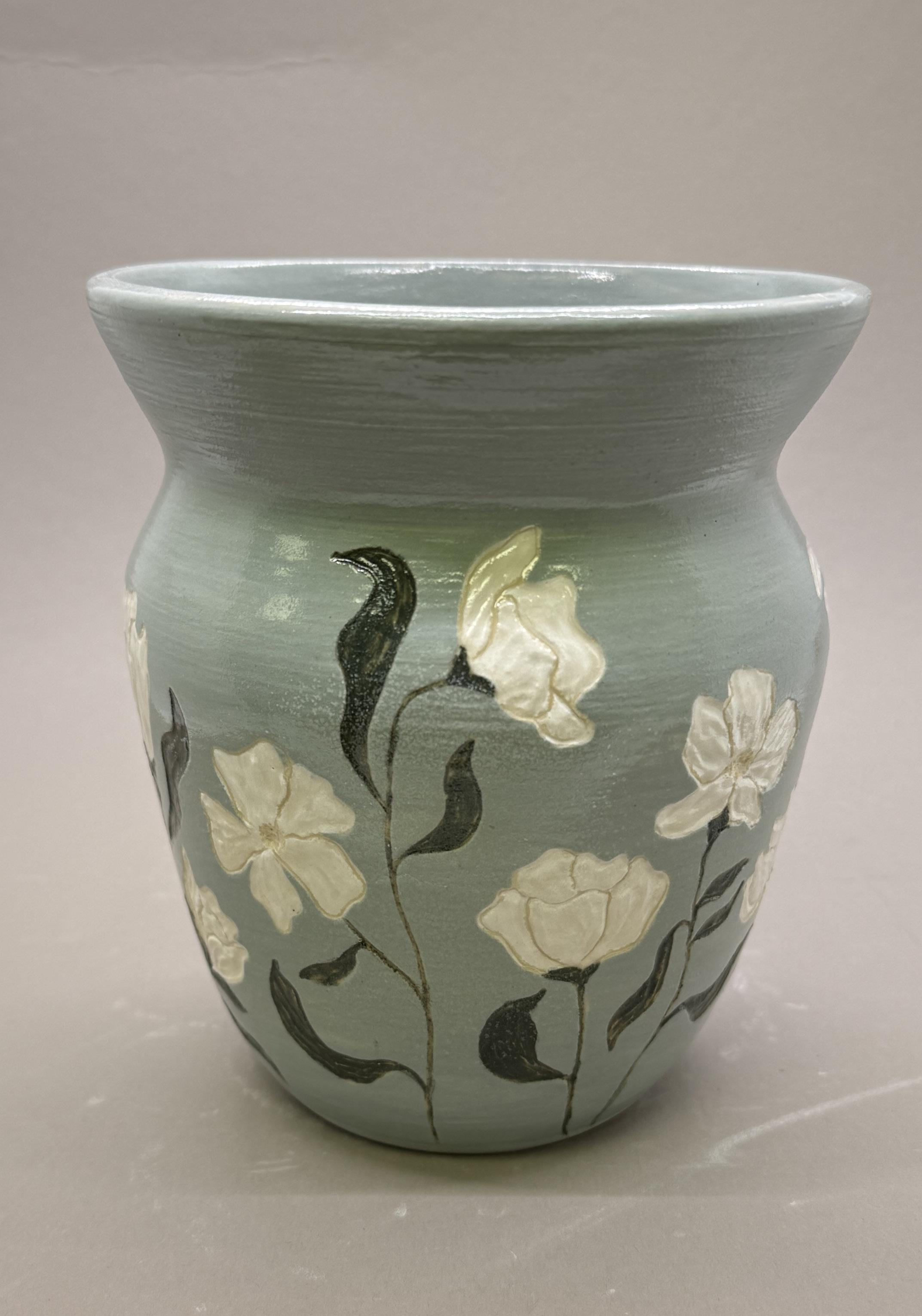
Layla Welsch ’25
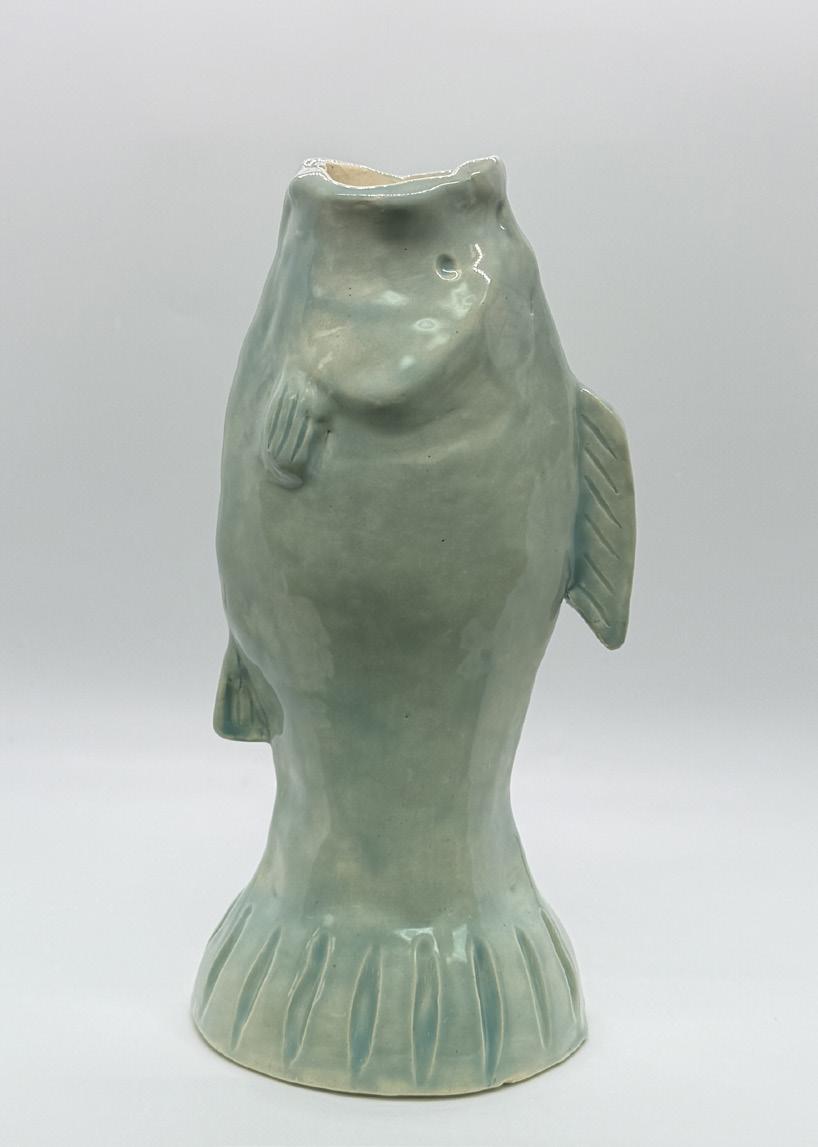
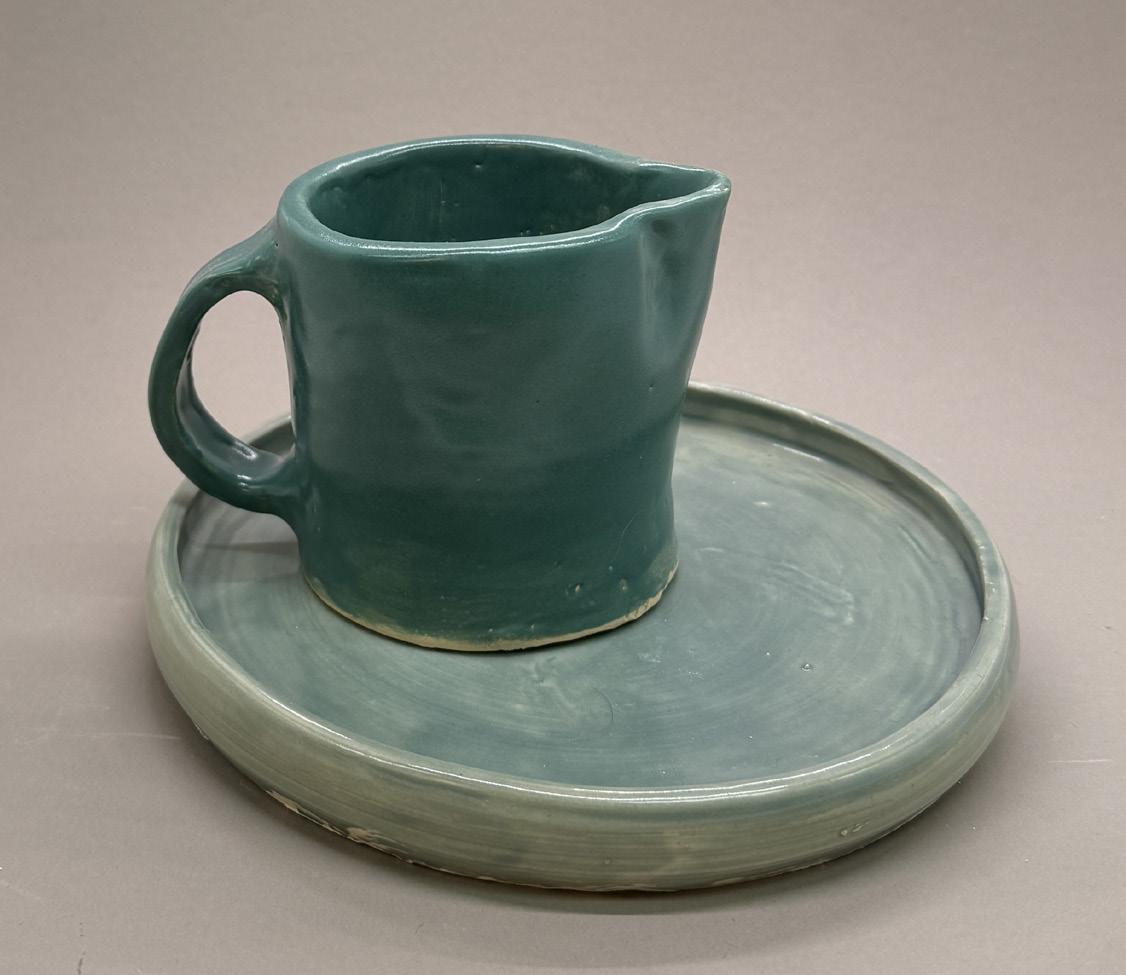
Watty Dalton ’27
Molly Maurer ’26
Ode to Pencil
Bri
Mason ‘25
Oh, pequeño lápiz, mi buen amigo, con tu abrigo de madera y plomo dentro, te deslizas sobre papel, liso y libre, dibujando líneas tan fácilmente.
Tu punta aguda escribe tan audaz y brillante, ayudando a que los sueños tomen forma justa. Artistas, escritores, niños en juego: todos te usan en su manera especial.
en pequeñas manos, haces crecer las palabras, ayudas a que las letras fluyan ordenadamente. Y en manos sabias, con mucho cuidado, bosquejas ideas en todas partes. Los errores no importan, ¡no temas! tu borrador los limpia. Con un simple golpe, puedes empezar de nuevo, ¡así que correcto!
De un gran árbol tú naciste, y al escribir, cobras vida. En la escuela o en el taller, siempre te puedo ver.
Arquitectos, carpinteros, escritores y mensajeros, todos te usan sin dudar, pues ayudas a crear.
Oh, lápiz bueno y fiel, siempre estás en cada piel. En tus líneas puedo ver, mil historias por nacer.
Aunque callas y eres chico, tu poder es infinito. Con tu punta sin parar, ayudas al mundo a dibujar.
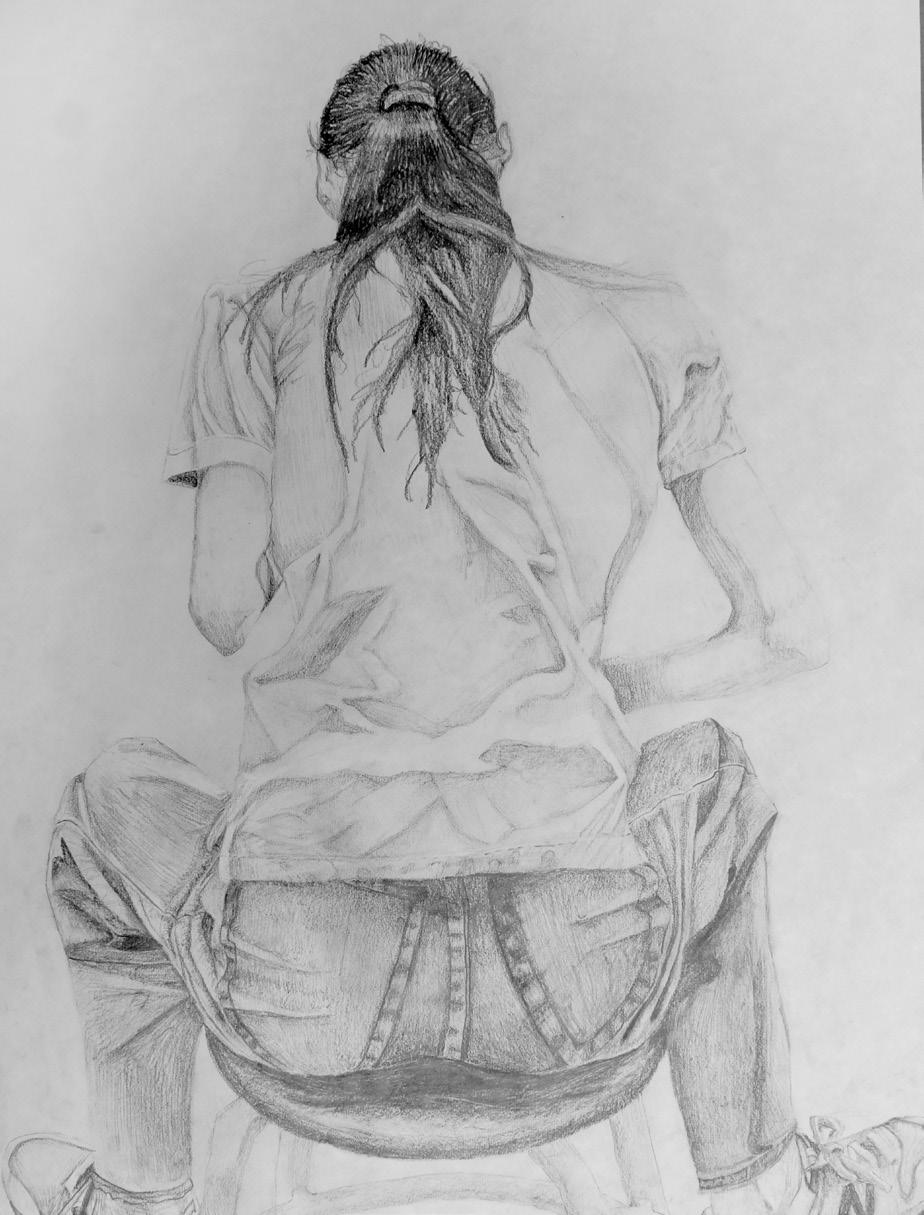
Frances Lawson
’27
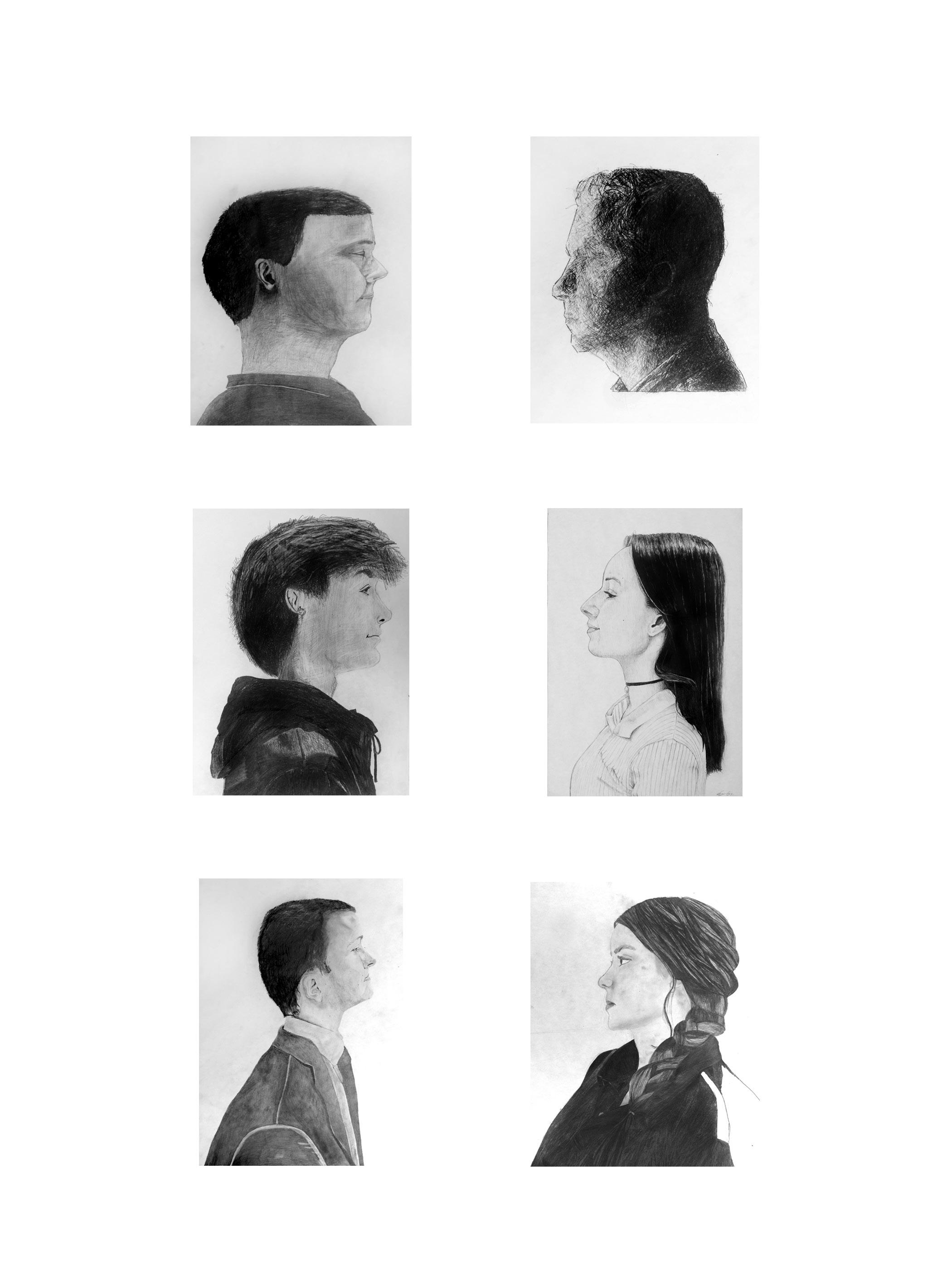
Sammy Gaughen ’28
Marley Biggs ’25
Ella Edelberg-Moore ’27
Ryan Henyon ’28
Colin Maher ’25
Tanner Davidson ’27
Remember - Spring
After Joy Harjo and Ada Limón Poetry and Artwork by Layla Welsch ’25
Remember to peer outside your window, to embrace the world as it returns.
Remember to recognize the change as one cautious crocus initiates the transformation – one brave blossom –and all else cautiously copies.
Remember to thank the sky, for it too enjoys spring and summer and prefers to extend its enjoyment of the sun on these shining days.
Remember to admire the vibrant petals, precious pinks and warmhearted whites, lining the branches as if decorations to welcome the season home.
Remember to listen to the birds, As they continuously sing their celebrations. They are reminding you to pay attention and be glad, for they are rejoicing in their survival.
Remember to care for the other animals, for they too must pause and smell the delightful daffodils, or watch as the petals dance to the dirt and the latest leaves take their place.
Remember to give gratitude to the evergreens, for they serve as the required reminder that this green will come again. It always does.
Remember the darkness, as the dullness must occur for us to be so appreciative of the enhancements.
Remember to take in the beauty. How we have missed the earth, embellished with exquisite signs of life.
Remember to treasure these fleeting gifts.
Remember.
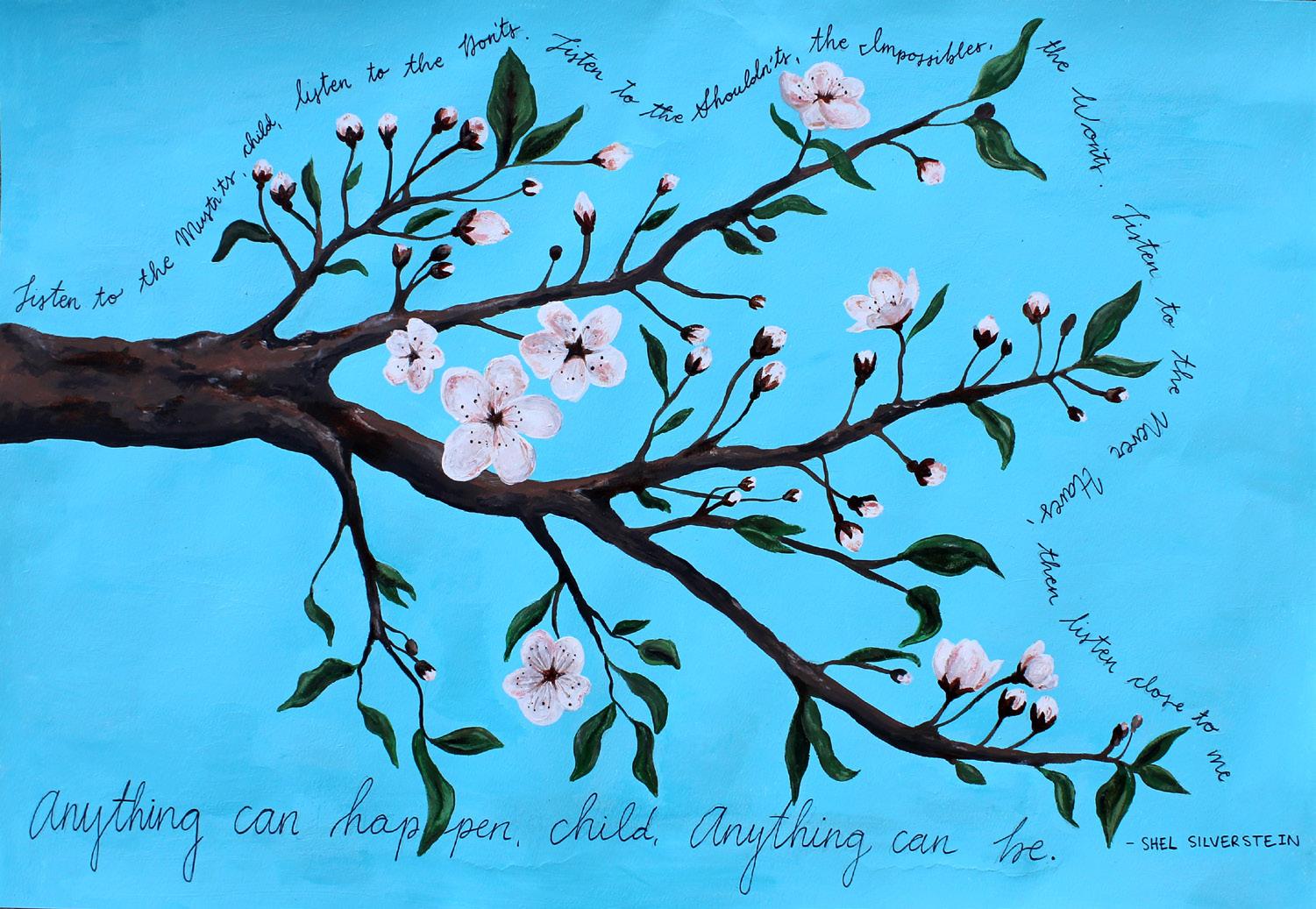
You ask me what I’m thinking about and the answer is everything.
Untitled
Quinn Humphreys ’27
I’m thinking about the first time I saw a dead deer on the side of the road, and how it looked so youthful.
I’m thinking about the way a person’s face lights up when they talk about something they love.
I’m thinking about how I want to be that something for somebody someday, but today I’m thinking about the chemistry homework that’s due tonight and the sweet strawberries I used to pick in the summers and all the friends I’ve gained and lost.
I’m thinking about change and about finding lucky pennies on the side of the road.
I’m thinking about poetry, about the ocean, about love and about forgiveness and about how maybe those things aren’t so different from each other.
I’m thinking about all of this as I reply, “nothing.”
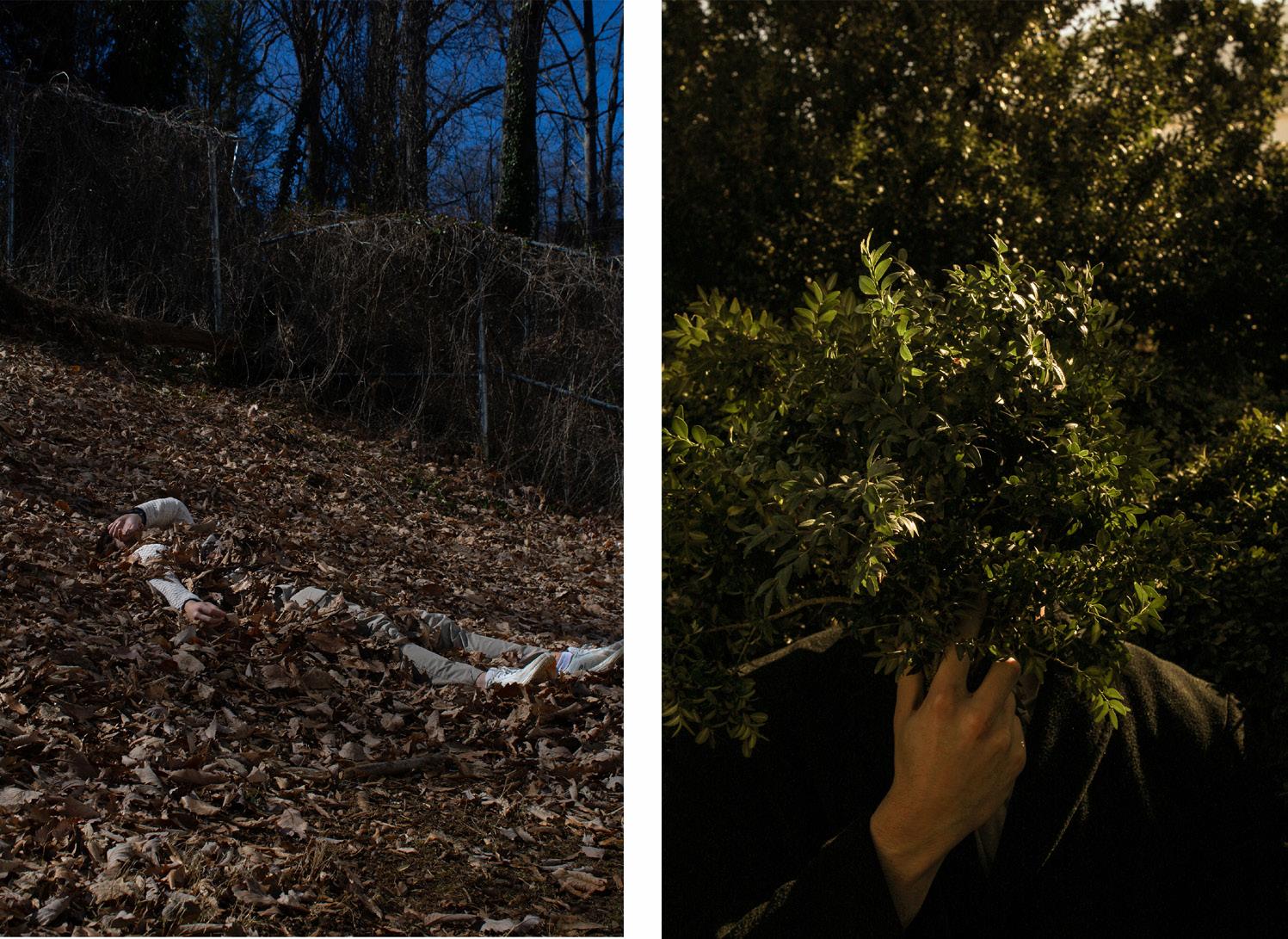
Blake Farnsworth ’26
Boarding Kids
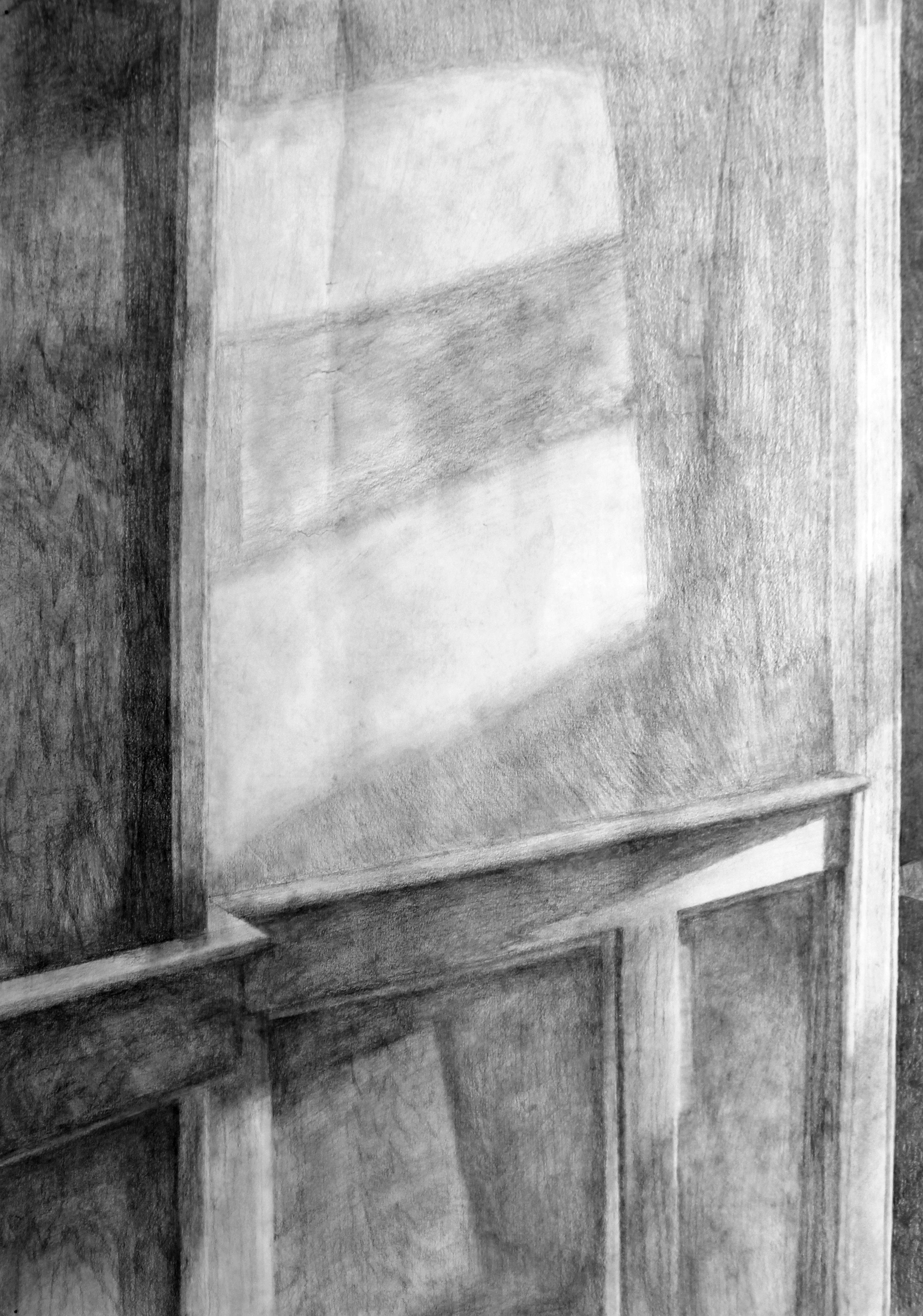
We real cool. We live school. We wake late. We run straight. We play chess. We take test. We study process. We almost success
After Gwendolyn Brooks
Poetry by Jember Tu ‘28
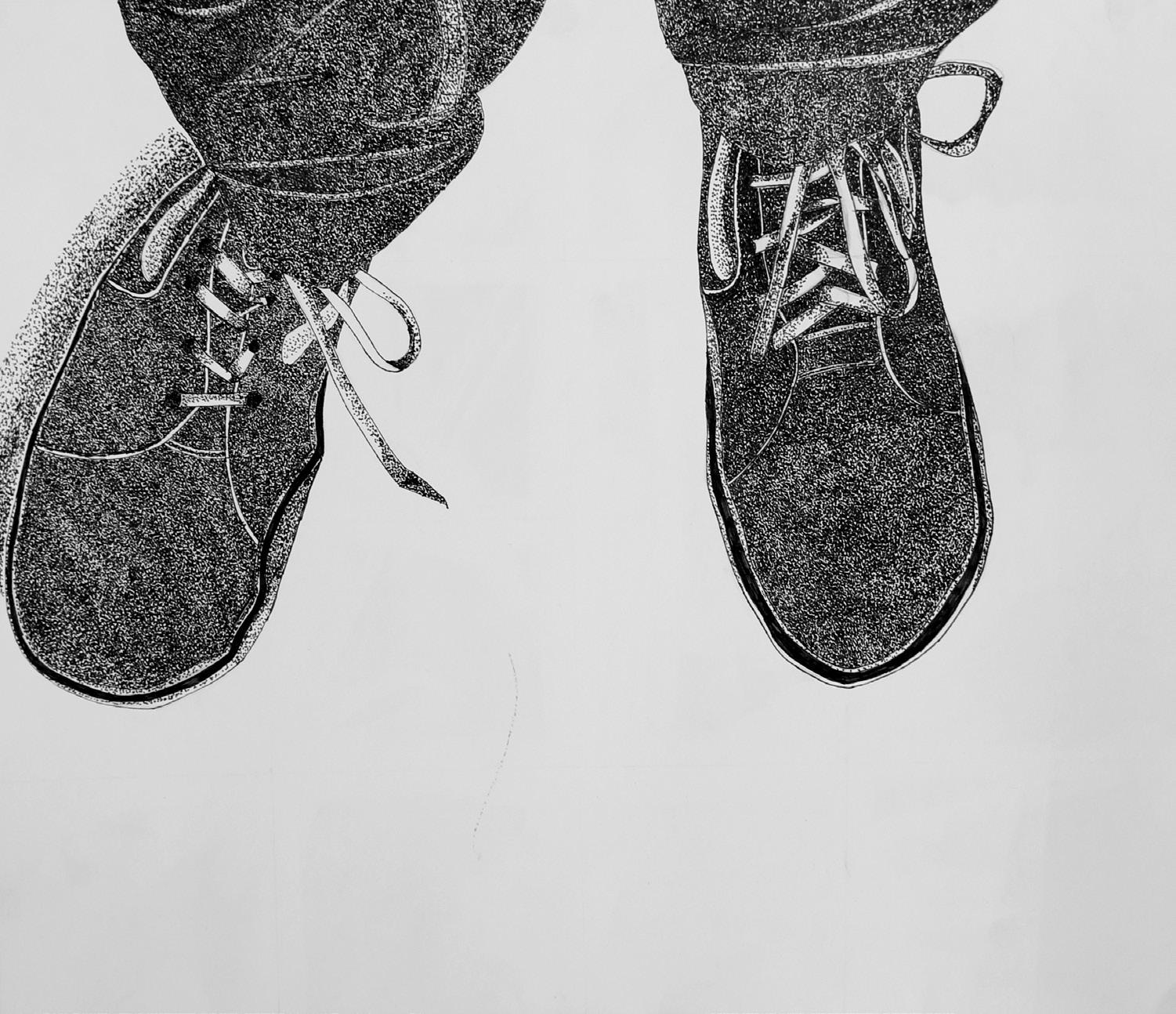
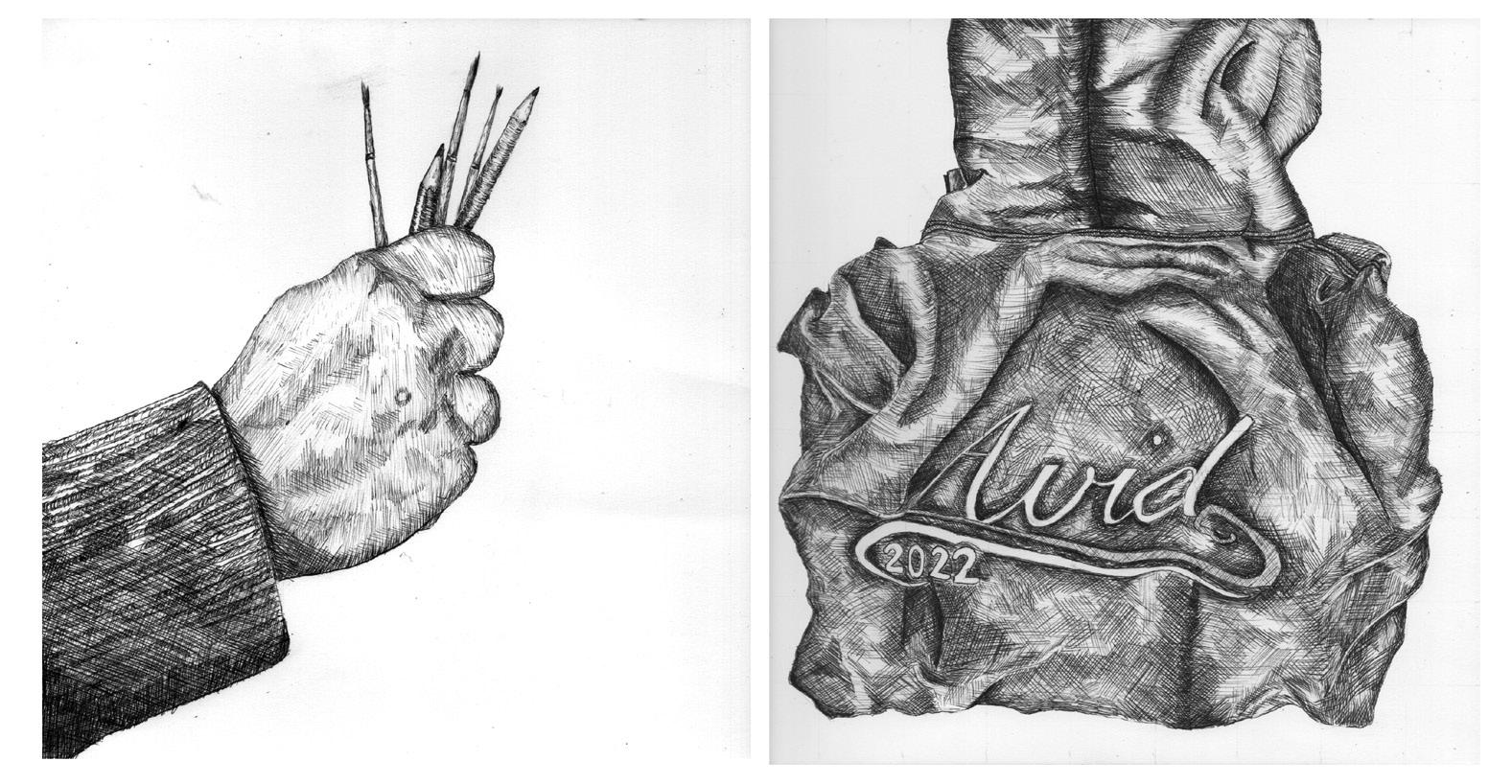
Opposite: Drawing by Miranda Del Angel Hernandez ’26
“Self Portrait 2 Ways” by Alaja Gough ’26
Oliver Moore ’27
Pollen
After Toi Derricotte
Anonymous
Peace and warmth grow day by day.
The sun shines brighter birds chirp louder, excited by the change. Slowly, the grass turns greener trees turn pink and purple, budding beautifully.
Soft whites, blush pinks, and rich lavender float to the ground, a soft blanket covering pavement.
Flowers pop suddenly from their buds.
The colors of easter fill well-loved gardens, bulbs planted intentionally months ago.
Bumblebees floating from one to another, flower to flower, picking up the yellow powder.
But quickly the pollen comes. Suddenly the bigger trees have small green buds, and I wake to yellow.
A yellow haze that covers everything, coming out of nowhere overnight.
The bees see it too, floating becomes frenzy in the haze.
Walking to my car, I can smell it.
Gently grabbing the door handle, I can feel it.
A yellow tint across the surface, I can see it.
Yellow ripples across pavement moved & shaped by the breeze, unique artwork, only in spring.
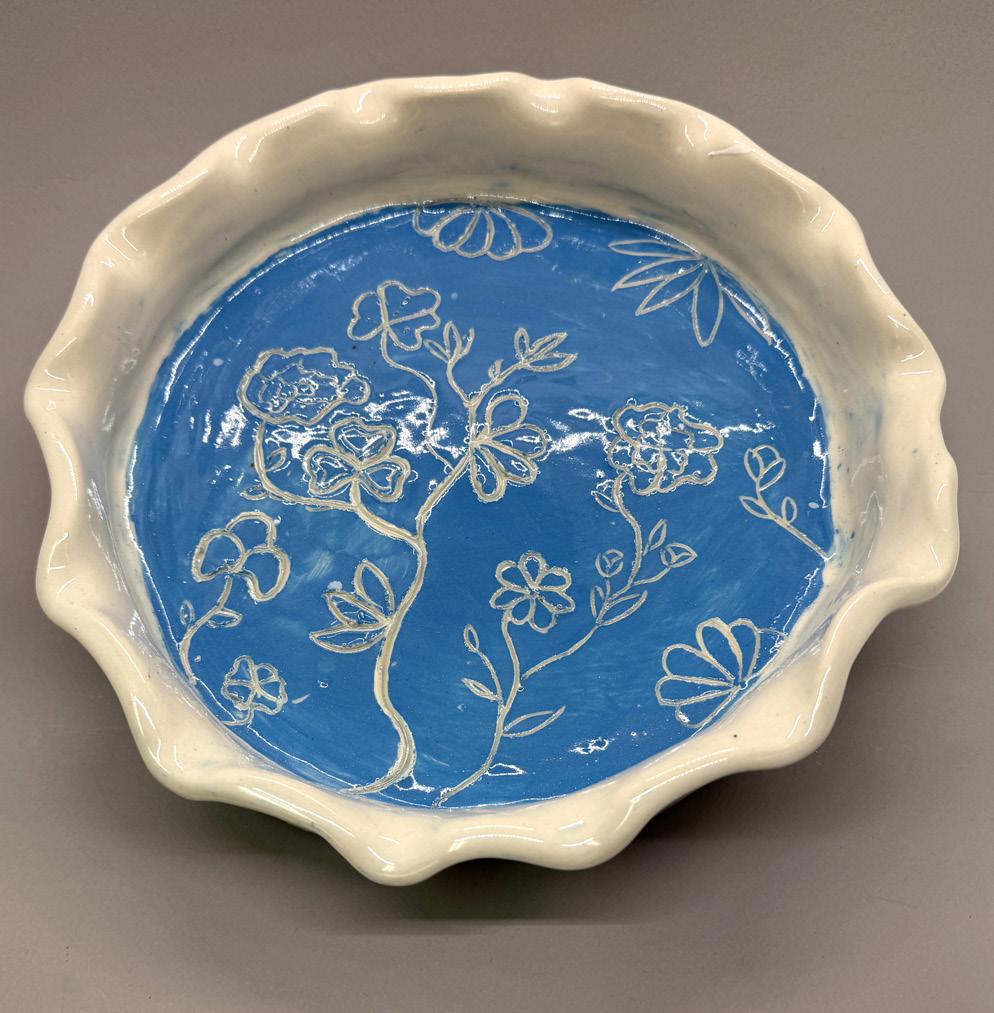
Bella Rannigan ’25
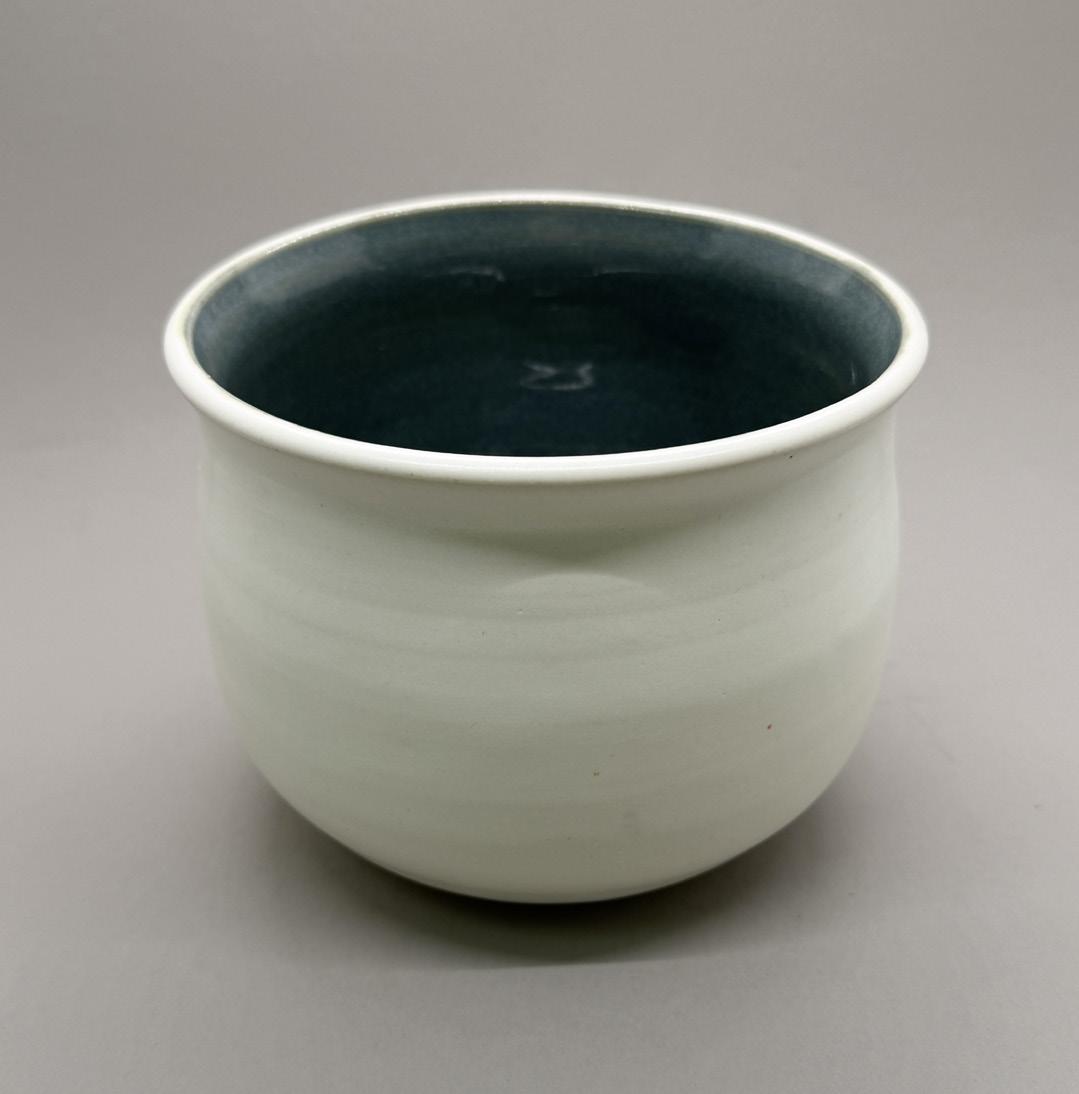
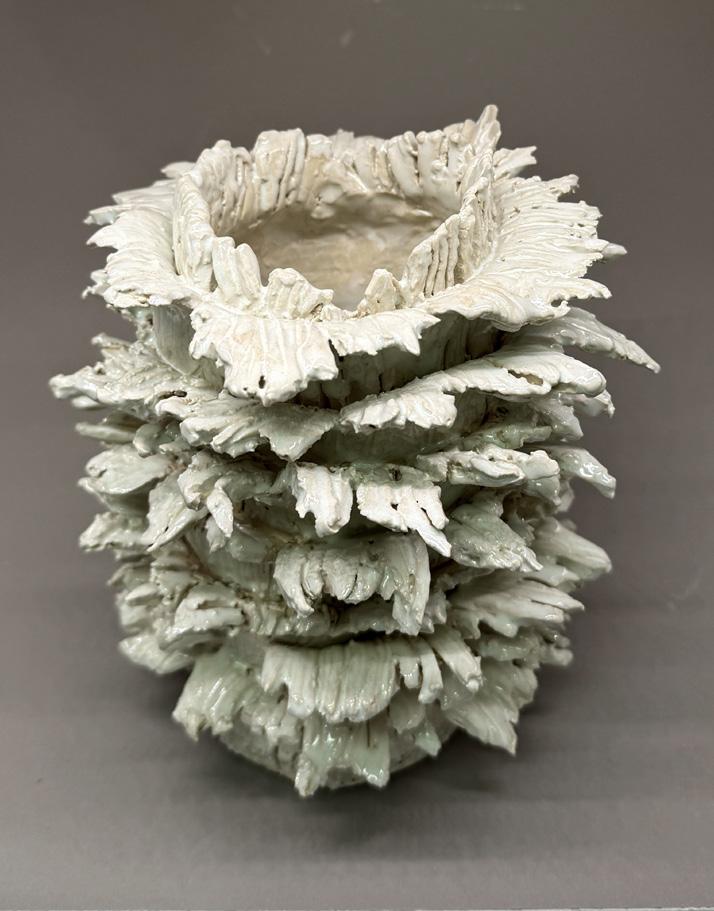
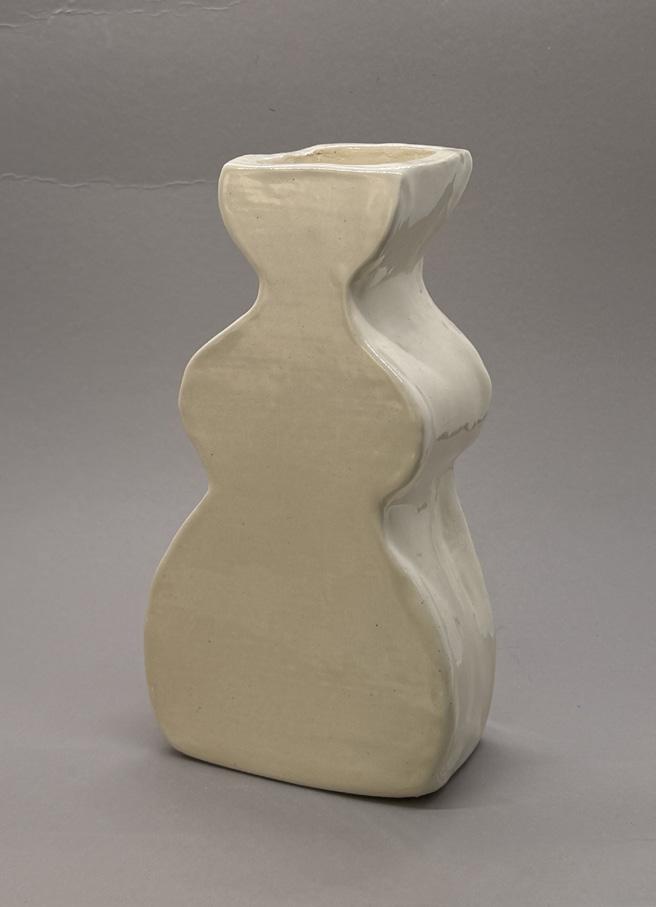
Diana Ismailova ’26
Lilly Sopata ’25
Chapin Smith ’26
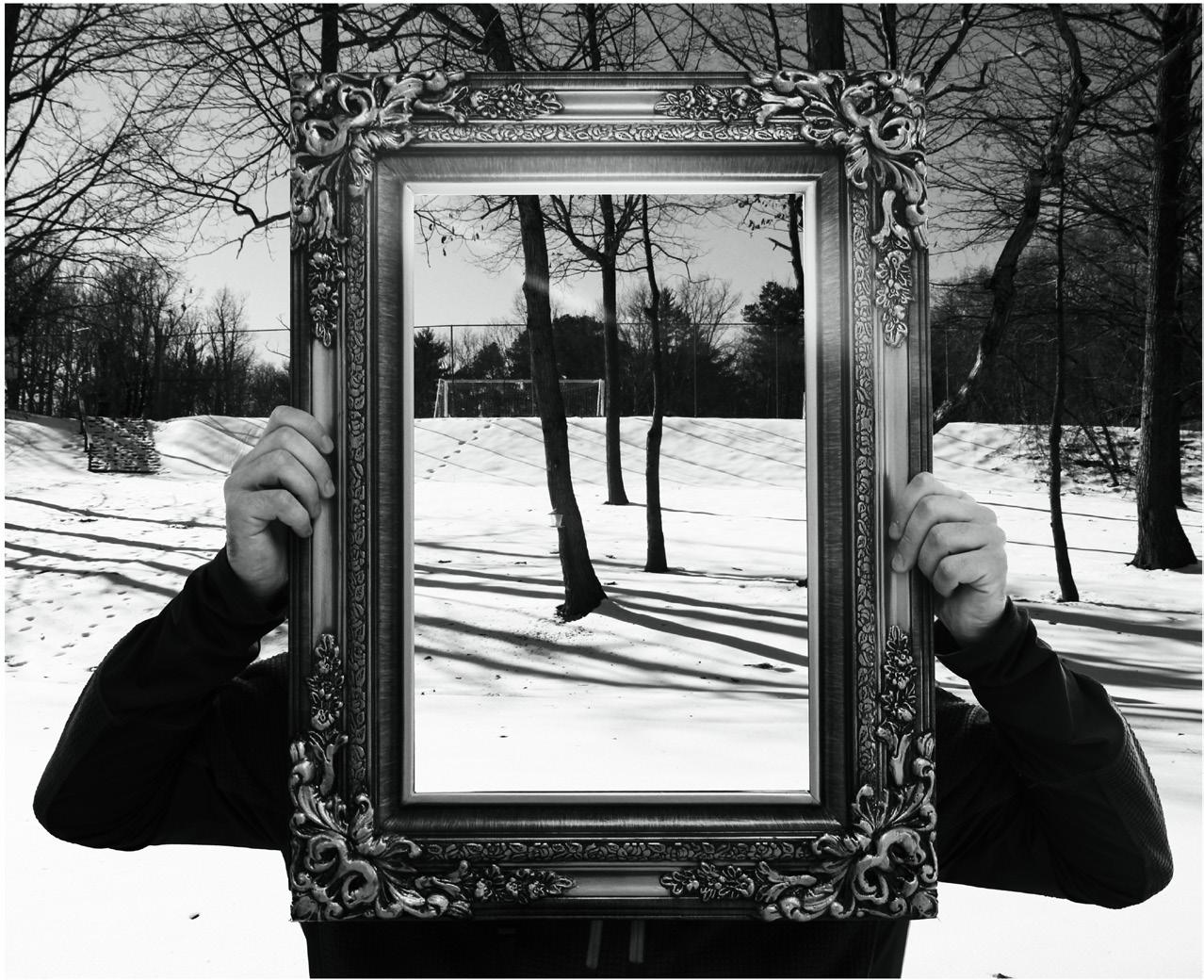
Hot Chocolate (Winter)
After David Whyte
Cadigan Perriello ’25
When the elaborate structures of white flurries begin to fall
My hands are warmed on a too-large mug
Swirling around, the merging of white and brown bodies
My mouth turns up at the sweetness emanating from under my nose
The cold months, my time of isolation, I found myself constantly
In this mug of comfort
The confines of my room, the arms of my mother, or the heat of a classroom
My season away from running explorations in the woods
My elation only sparked from the multicolored lights illuminating my neighborhood
I gave up on all other happiness
Anything and everything that did not center on the mission
Of finding joy in the midst of cold
And finding merriness in the form of hot chocolate
Photograph by Finn Parlee ’27
Opposite: Photograph by Waylon Ammons ’27
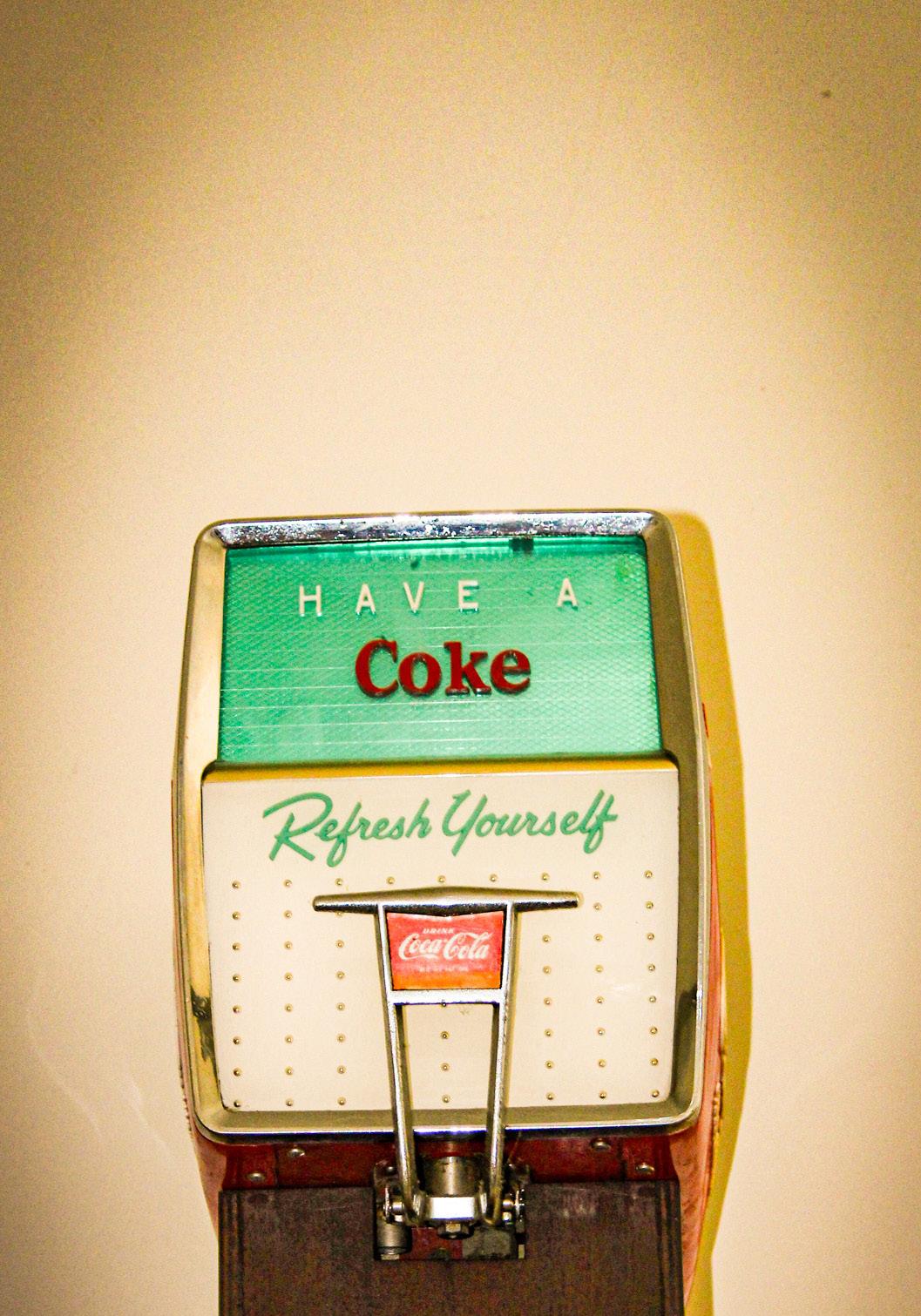
Burning Feet on Hot Sand (Summer)
After Alberto Ríos Cadigan Perriello ’25
The sun rises as the seagulls begin their morning song
The waves begin to ebb, more calming than vigorous, more peaceful than violent
Footprints begin to appear sporadically, showing all species of visitors
Six pairs of footprints step into view, two grown pairs trailing the four small
Carrying a plethora of supplies for the upcoming adventure
Sipping sodas, holding soggy pizza, calm but energetic
The footprints begin spacing out as the four race off Running towards the water and away from the sand burning under their feet
These prints grow bigger over the years, becoming even larger than the ones that used to trail
But they keep coming back, the twelve feet, their supplies, and the peaceful excitement
Hope, Beginning, and the Unknown (Spring)
After Ruth Awad
Cadigan Perriello ’25
Because if you can survive the cold of January, you have earned this, now
You have earned the flowers, showing their colors to bring out your color
You have earned the sun, illuminating your hard work, yet making the work harder
You have earned the beginnings, both the ones surrounding you and the ones inside of you
You have earned an openness, an opportunity to push yourself outside of the confines of your mind
But the spray of the heat from the sun begins to become unbearable
You remember the cold of before, and remain grateful
For all you have earned
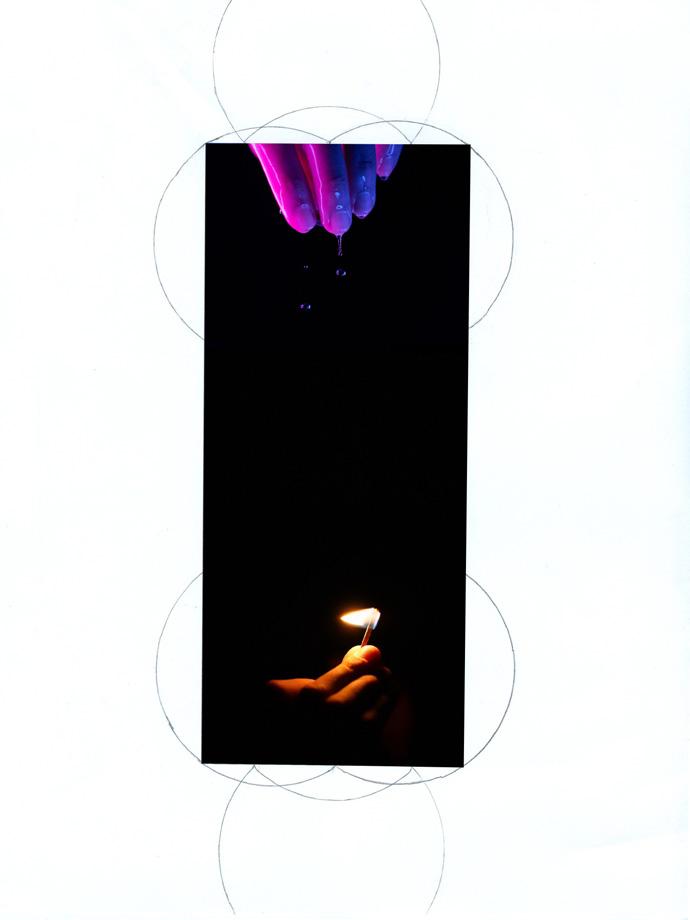

Anticipation (Fall)
After Mary Oliver
Cadigan
Perriello
’25
I worried a lot.
Will I find happiness, success, fear, guilt, redemption, expectations, in my year to come? Will my roots grow, will new ones form, will it all tumble down, or is this the year of strengthening?
Is there any way for me to know, any way for my anticipation to abate?
Was I right to pick this, to pick now, to pick myself?
Can I stand my ground, represent my morals, and be the human I was meant to be?
Are my questions answerable, will they expand, or are my questions simply questions? Begging to be answered, yet patient enough for their time.
Photograph by Holmes Cole ’27
Design by Finn Parlee ’27
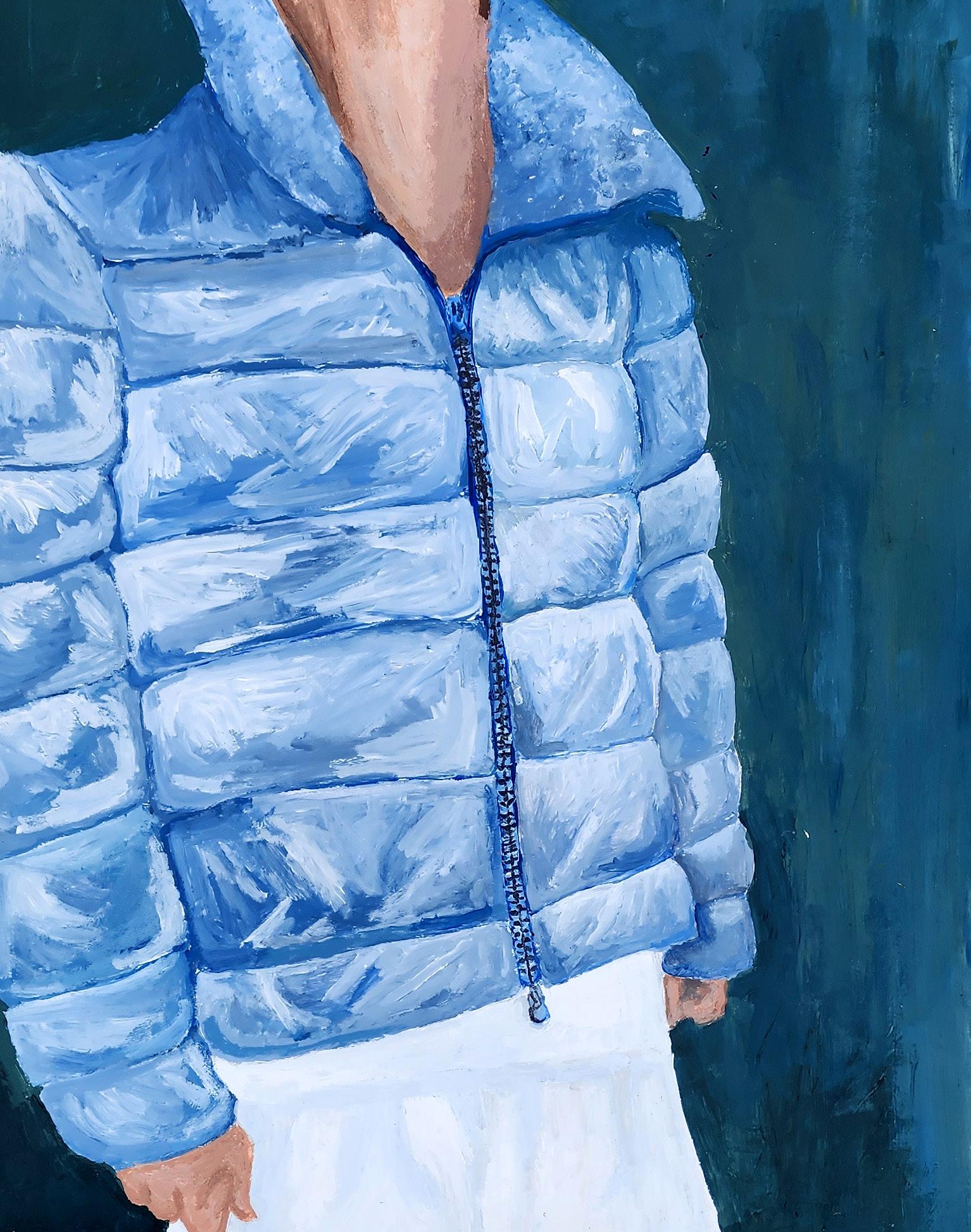
Darby Oakey ’27
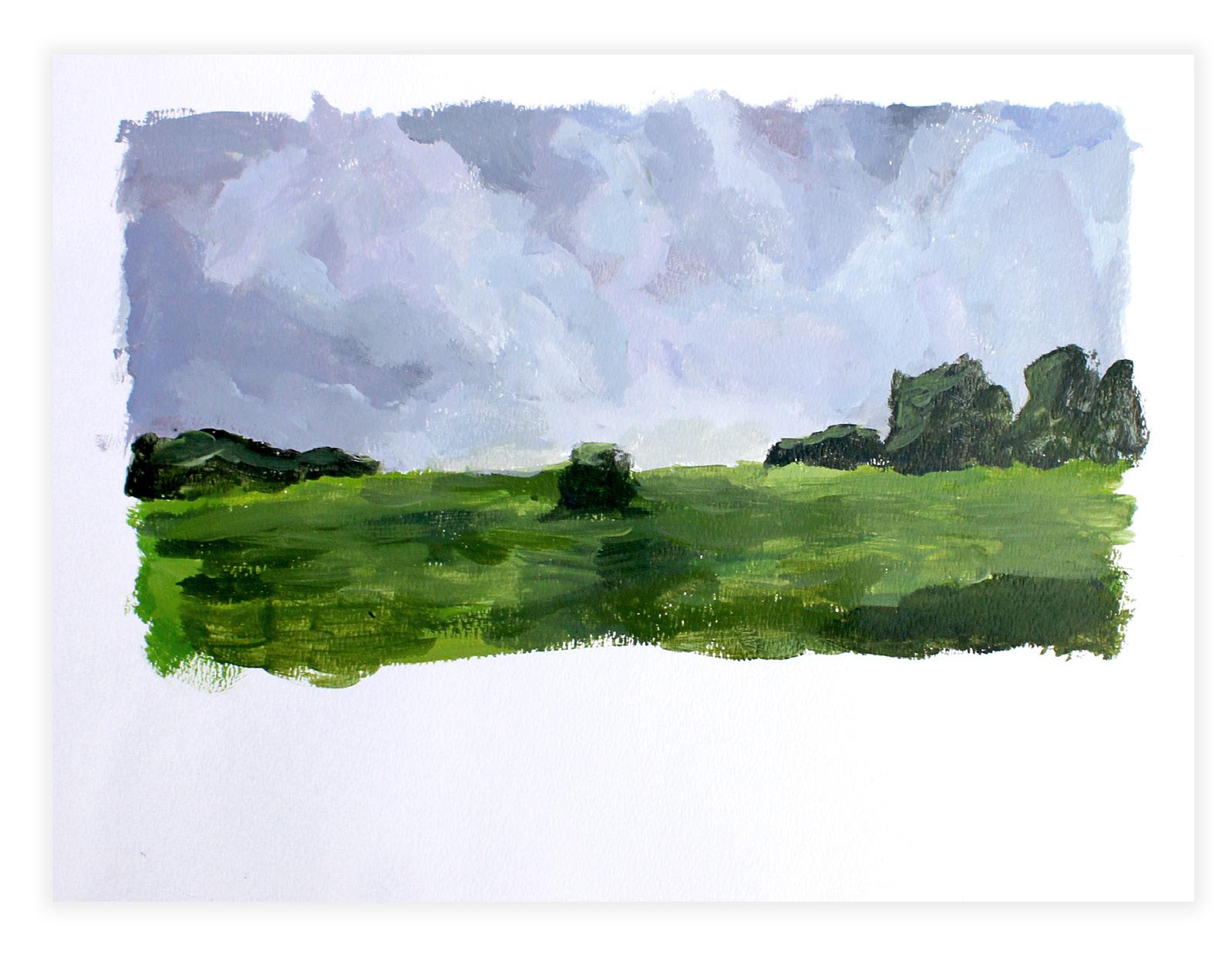
Painting by Ani Fairbanks ’26
It’s Raining Today
Violet Moore ‘28
It’s raining today
I imagine you’re next to me
Rocking back and forth in your chair
But even now your spot sits free
I picture you entering the front gate
But I know you’ll never be there
So I sit on my porch and wait
It’s raining today
My wishes decay my soul
A wish that you never got drafted
A wish that our love should have lasted
As you were always my soulmate
And part of me left with you that day
I sit on my porch and wait
It’s raining today
I count the days until I join you
When we’ll enter the gate with no fear
With delicate wishes that come true
We finally rock in our chairs forever
But until that day gets here
I’ll sit on my porch and wait.
There’s a Ghost in My House
Poem by Violet Moore ‘25
There’s a ghost in my house
She stands behind me in the mirror
My mind fills with doubts
That will never become clearer
She wears my clothes
And her voice sounds like mine
Her future wilts like a dying rose
But her memory stains like red wine
She sleeps in my bed
She screams in my dreams
I can’t control who spins life’s thread
Or who fastens the seams
Her wails fill my head
Like a thorned stem
I can’t save the dead
But I can help free them


Drawing by Brody Taylor ’25
He Waits, He Watches, Life Changes
Willow Pemberton ‘25
He just sits.
Watching Doomed Cities,
As the whole wide universe waits to be animated.
The oldest story in the world.
An old man,
No idea where he is, in real life
He just needs to make a living.
Steady work,
Wants only peace.
Waiting for life to do something interesting.
What hovers above you?
What floats over your head right now?
Life runs alongside, unseen. A chorus.
Listen, there’s something you need to hear.
He builds a tripod.
He assembles,
Precious little for his new enterprise.
Patient men tried by brutal seasons.
A year for long promises,
A boy lacking in imagination,
He makes up for in obedience.
Pure, dumb fate,
This isn’t life.
This isn’t life.
It takes something, Another last straw, He just needs to make a living.
He misses the half of it,
What time hides forever in plain sight, growth is invisible, A good answer,
An idea,
Steady, Honest, Right here, right next, Life.
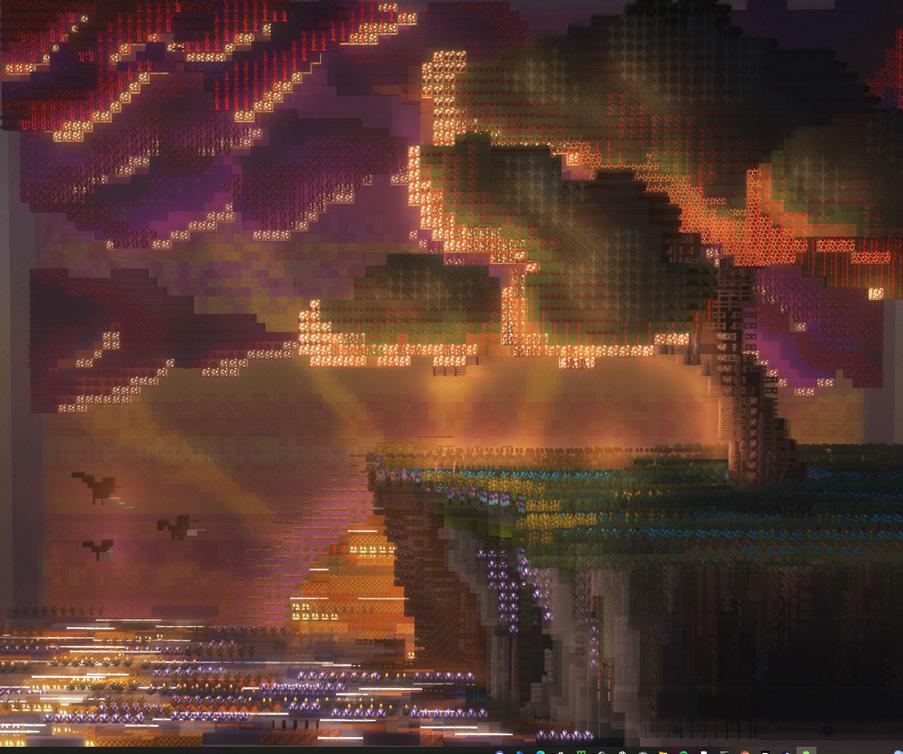
Listen, there’s something you need to hear, A chorus. Of change, of Life.
Image by Andrew Cottler ’26
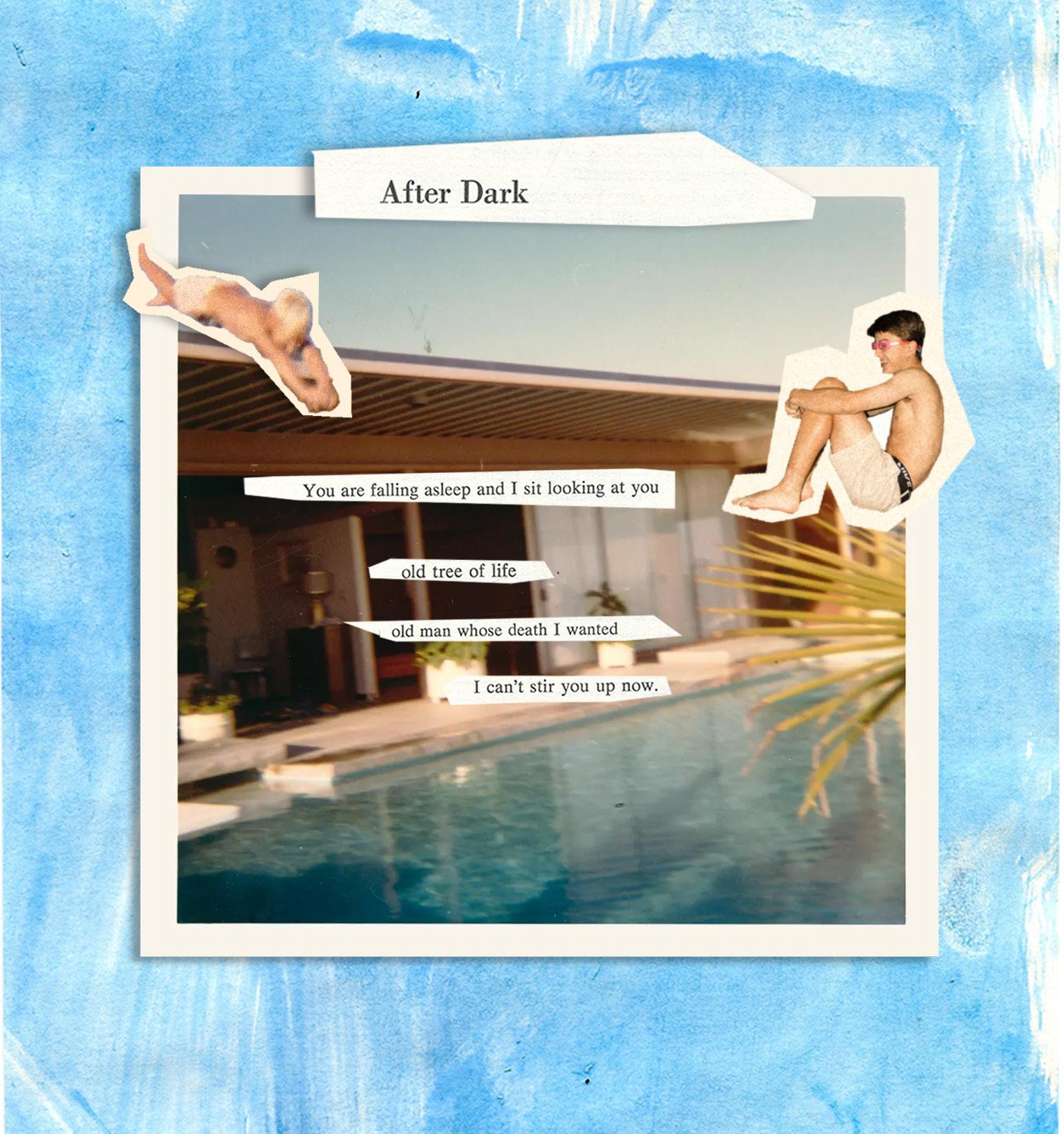
Three Haikus
Burke Gunther ‘25
Thoughts flow like a stream
What lies beneath this thin veil
Soft as memory
Art heals my old wound
Coping with the bitter truth
Life’s cruel harmony
If I dip my toe The current of fate pulls
Until I swim free
Caspar de Vink ’25
The Girl With Clipped Wings
Lochlyn Duncan ‘28
Seven years ago,
The river flowed; It had somewhere to go.
And if only she’d known
Where the river would flow, Maybe she would still be hereLying in her bed of grass
With her feet in the sand.
But maybe not.
Maybe it wasn’t meant to be. She had always had clipped wings
But if only she could see, She could see that her wings
Would carry her up
Too close to the sun.
So maybe this is for the best. But rivers lead to oceans And wings to the sky,
So maybe it needed to happen -
Maybe it’s right for the world.
So I try to forgive
And I try to forget-
‘Cause she’s already paid the price
And I don’t want to punish her.
But I know in my heart
That if I woke up
In a bed of grass
And saw her there
My life would be complete.
But she could only live
As the girl with clipped wings.
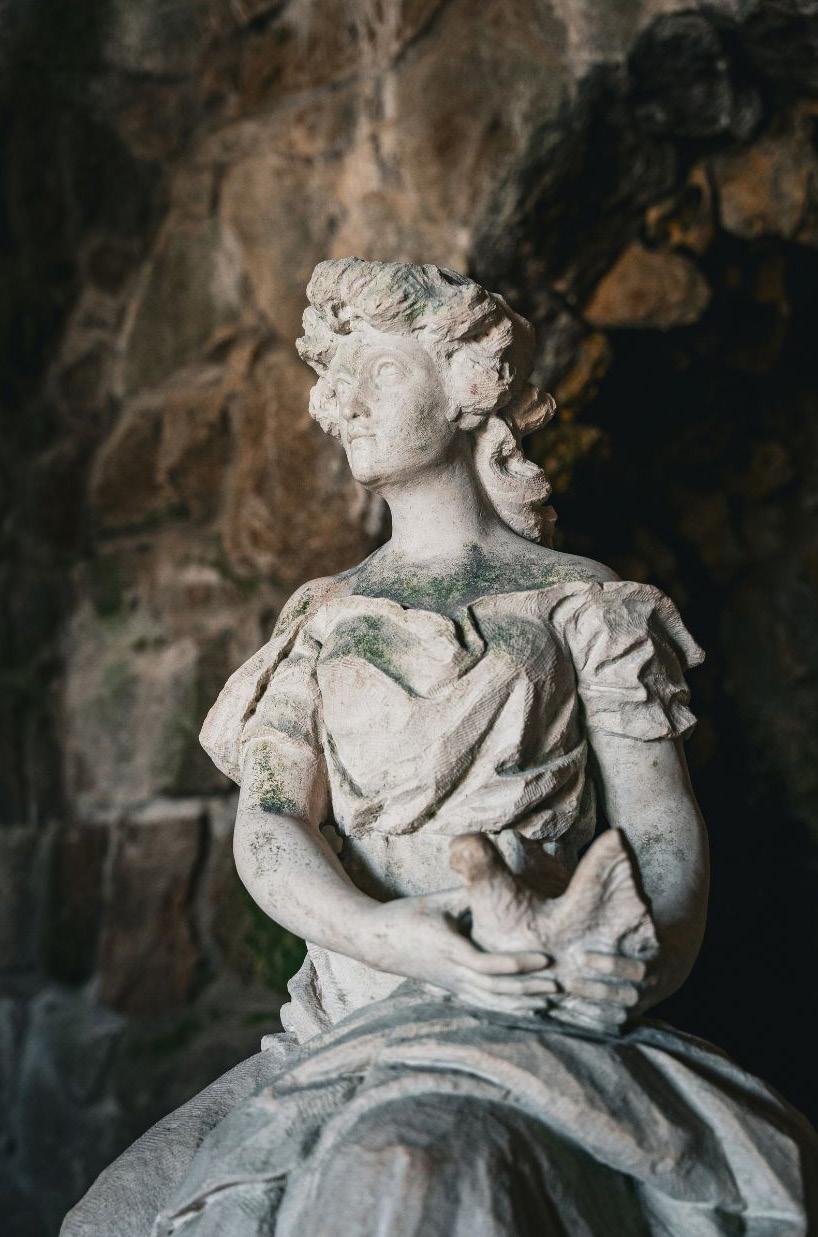
Image by Nori Carter ’26
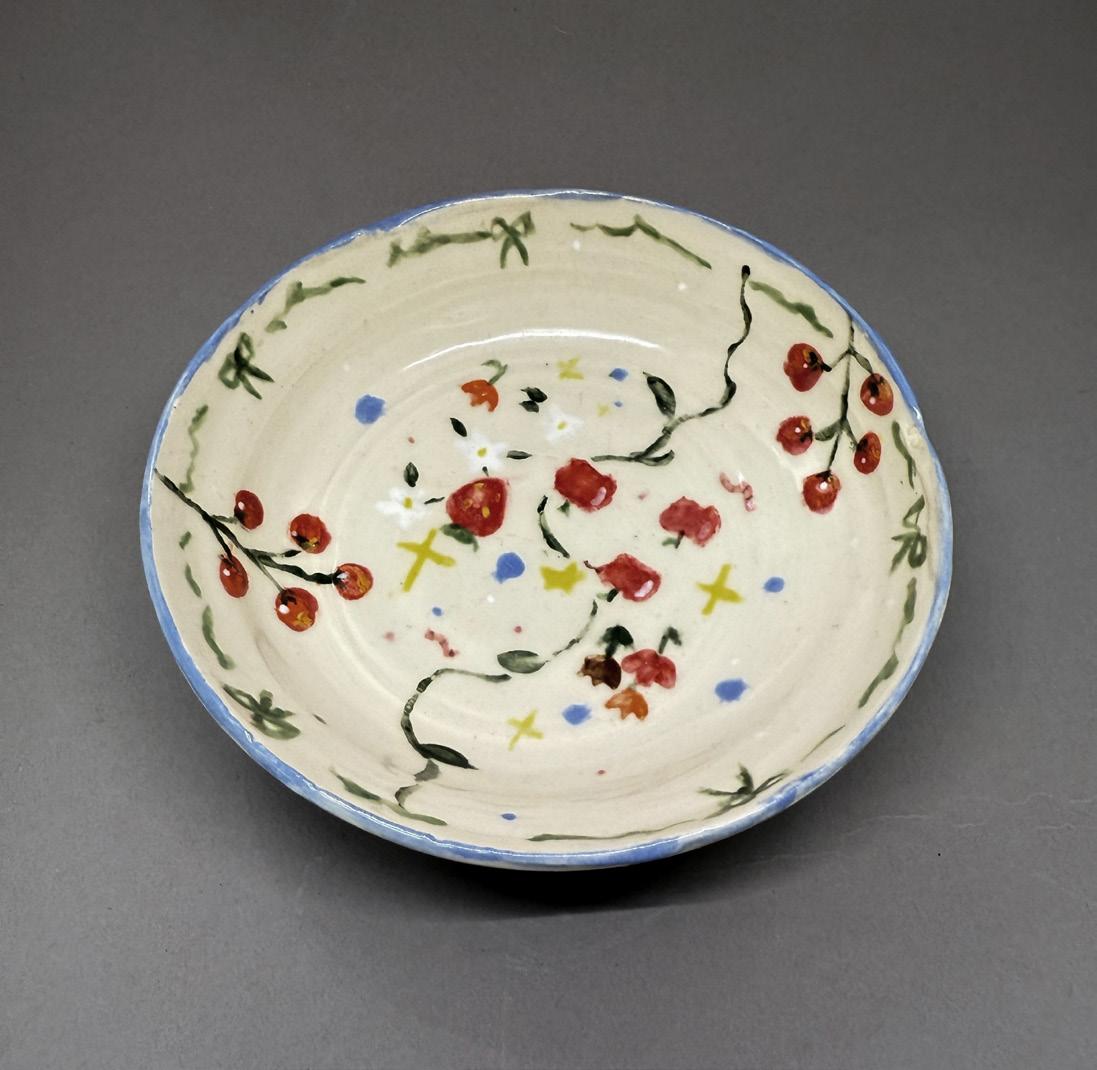
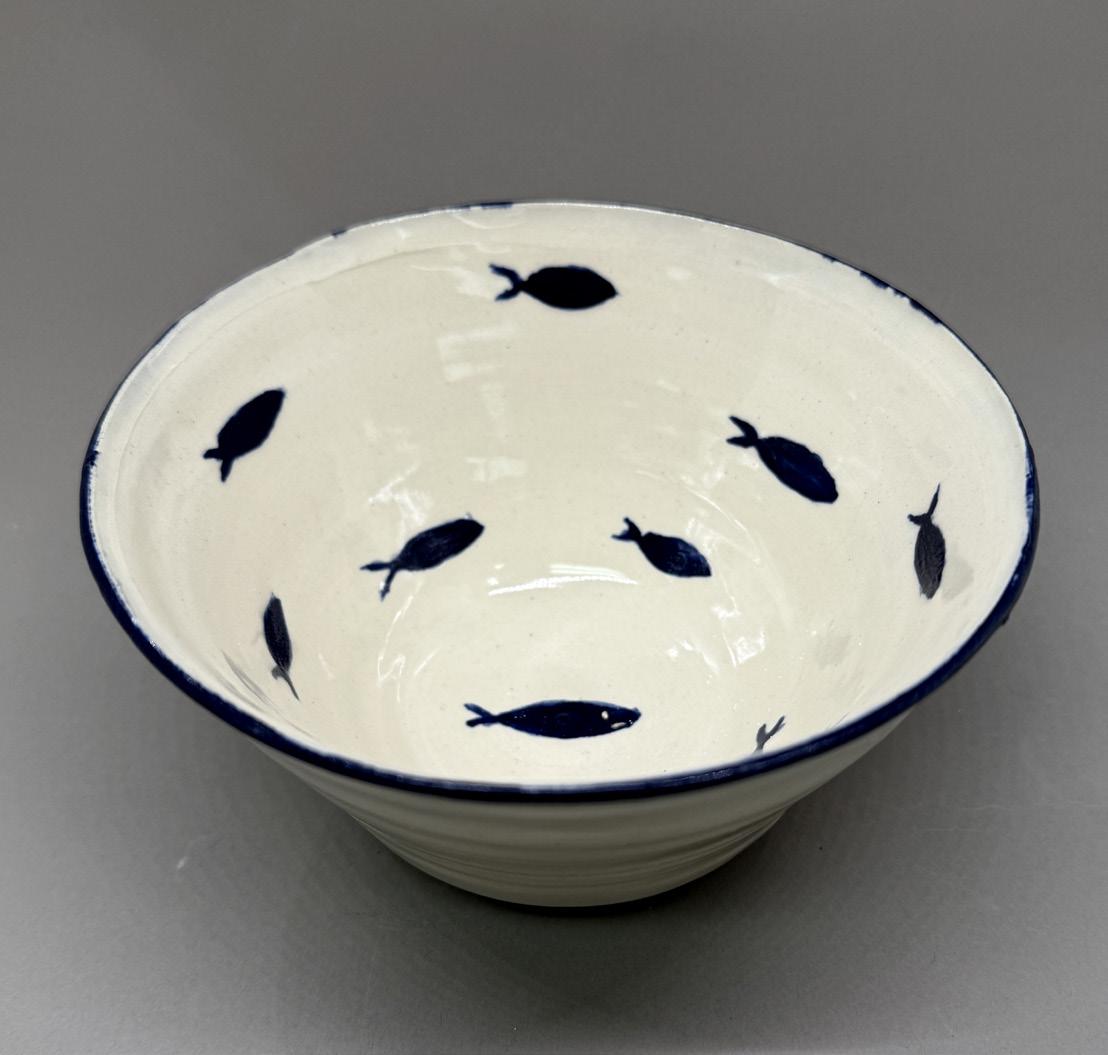
Alina Sheehy ’27
Anni Chen ’26
They say that everything is written
Everything is written in these stars
Even in these lives we’re hidden
Even this love behind bars
But are these words they preach
The solemnest charade? Is a serpent to sneak Under its honed blade?
Who We Are
Violet
Moore ‘28
O, what have we become? To follow them mindless How did we succumb To absolute blindness?
Tell me why we follow Just to fall upon our knees When they threaten tomorrow Yet we yearn to please
The nature of the beast Is to guard its stability And belligerently feast Upon others insecurity
We are too young for this Why do we clean the remains
While they get to live in bliss?
And we stay bound by chains
So I ask you as a brother
And I ask you as an equal And I ask you as a lover
How can we call ourselves people?
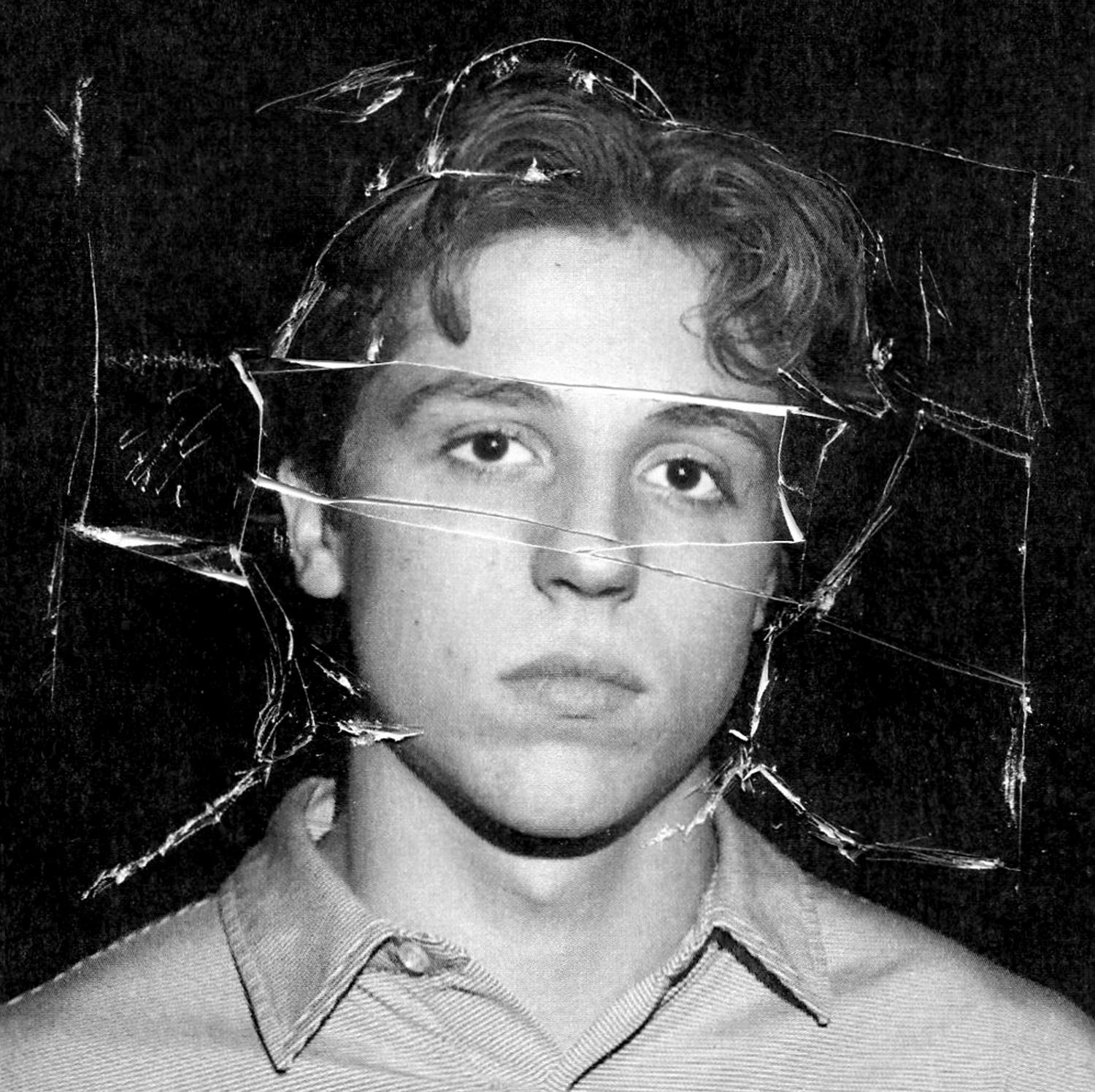
Image by Parker Ross ’25
Who Is That Staring Back At Me?
Dylan Fox ‘25
Within the frame I watch it loom… What am I supposed to see? Is this bold face a clue to whom it is I’m supposed to be?
Past skin and hair and cartilage, beyond my onyx eyes, what’s staring from my hermitage remains a grim surprise.
I am what I don’t say out loud, some warts are tucked away. I shrink my mind to show a crowd; truth won’t see the light of day.
When thoughts are tied around our tongue, I can’t define them all. So songs inside remain unsung. World too big—lives too small.
Remnants of myself delay; my psyche’s lost in space. If Earth had spun the other way, I’d see a different face.
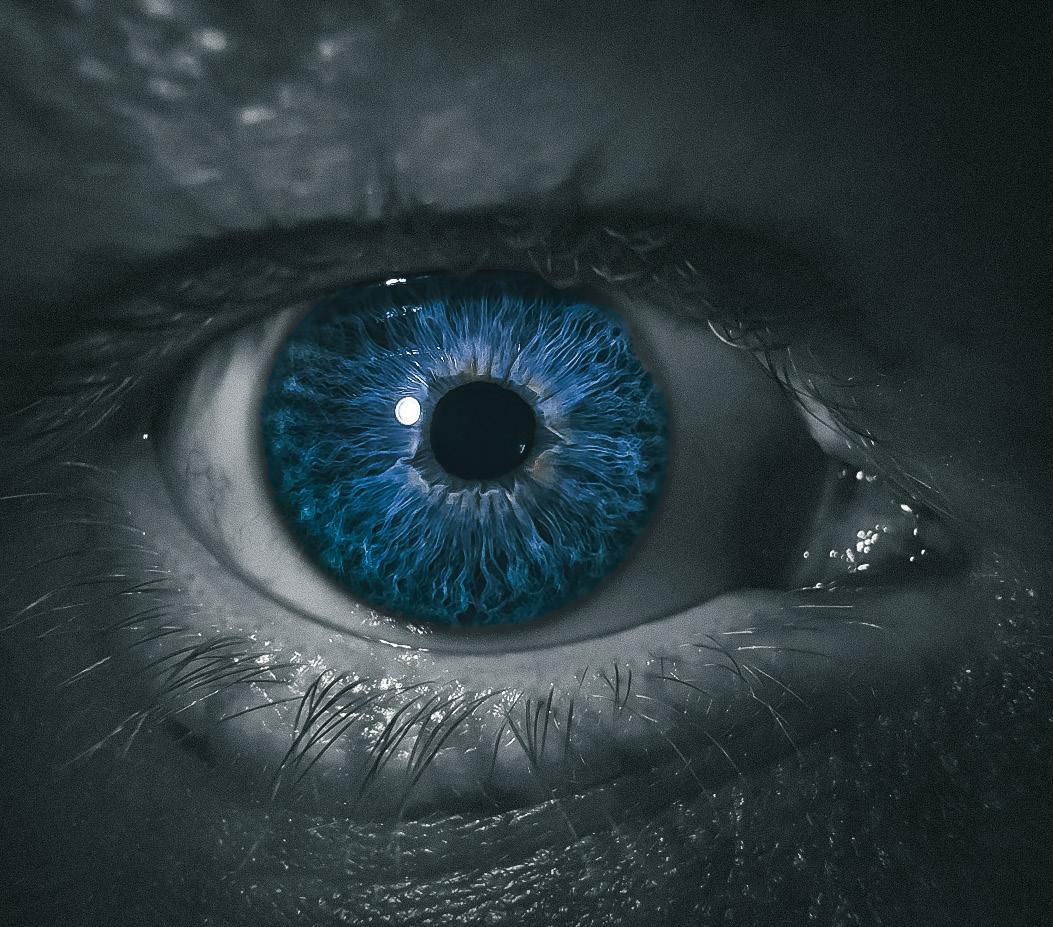
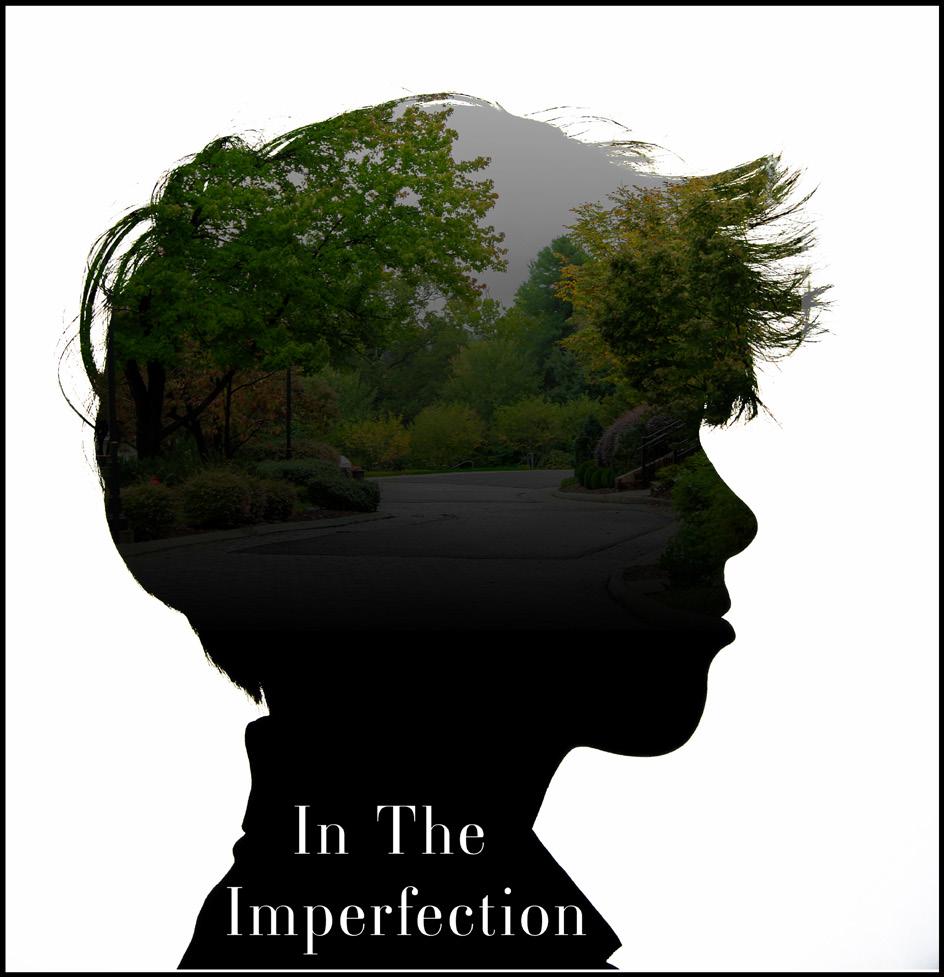
Image by Josh Matula ’27
Branch Ellis ’28
Beneath the Weeping Willow
by Jelena Conn ’25
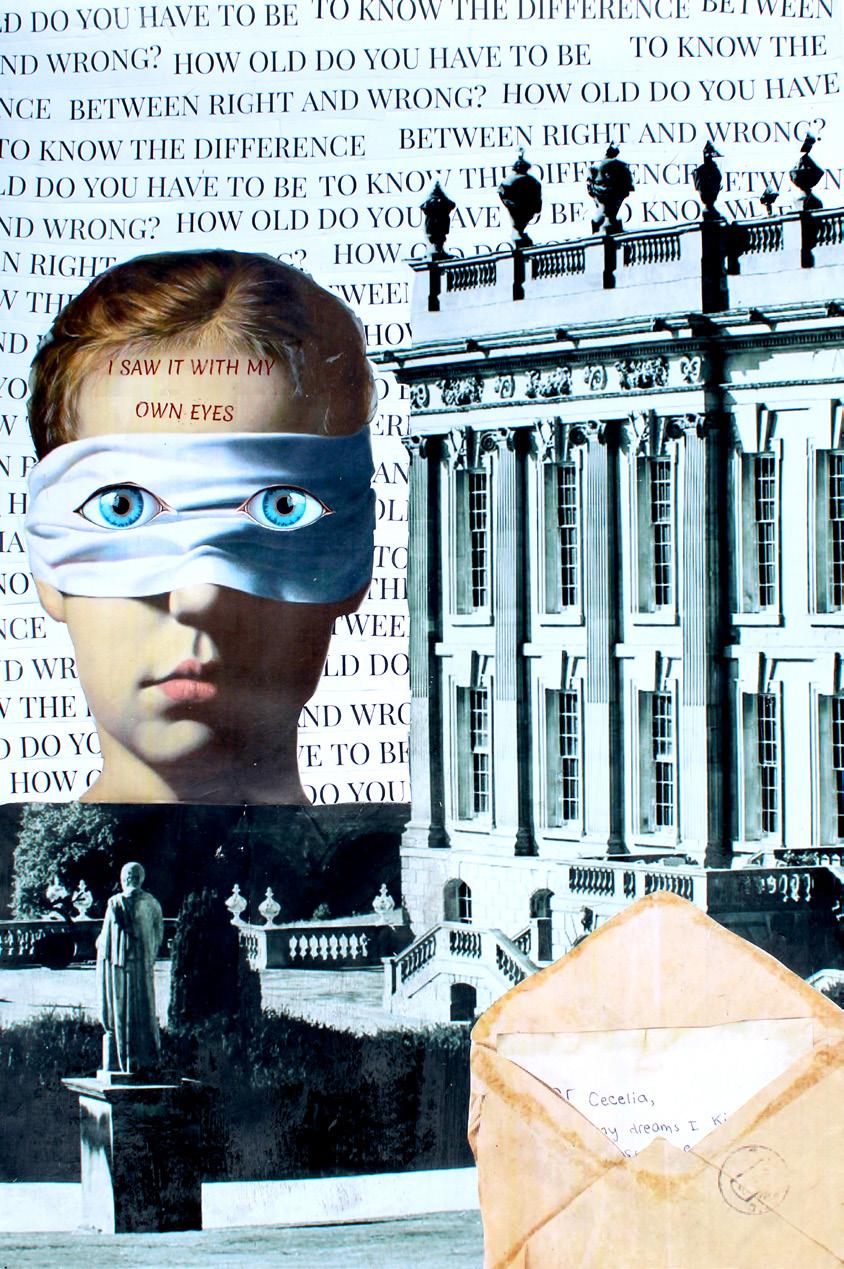
Once upon a time, in a faraway land, there was a princess. She was a thimble princess with plum skin. The darkest skin in the land. That’s why people adored her - envied her even. She lived in a big castle, constantly surrounded by ghostly guards. The guards never moved unless commanded by the princess. In this fairytale, the princess ruled the land. She was the youngest and perhaps most responsible of six brothers. Her parents, the Queen and King, were destined years and years ago to only have sons. For generations before the King was born, there had only been sons, and it could be presumed the same would be true for the King himself. When the Princess was born, the royal family was in awe of her fea-
tures. What stood out the most was her skin. Nobody in the town resembled her. Her beauty was beyond comparison. As she got older, the townsmen yearned for her hand in marriage while the townswomen envied her. Her name was Ayla.
Per the King’s request, Ayla was not to step foot outside the castle walls. For sixteen years, Ayla thought of what life outside the castle was like. Ayla pleaded:
“Father, how come Lucas and Adrian can go into the town but I can’t?”
“Look in the mirror, my dear,” her father said as she looked at her reflection in the mirror, her eyes wandered to the family image hanging on the wall. She was reminded
Collage by Frances Lawson ’27
of her differences.
“This is to protect you, Ayla, you are my only daughter. You have no idea what people would do to be you. Your brothers are strong men and will help me with my affairs. What good will you do to me?”
The princess interrupted, “What affair do you have?”
“Never mind that, you are beautiful beyond comparison. That’s why townsmen rally outside the castle gates in the hope of getting a glimpse of you sitting in your windowsill.”
Unhappy with her father’s response, Ayla daydreamed of the outside world.
“I wonder what the outside world is like. The boys. The freedom. The air.”
Ayla had never been around boys other than her brothers. After watching her brothers leave to go into town, she noticed how they’d always dress up. Dressing up was no option for the princess. Ayla’s closet was filled with the finest linens, the highest heels, and the most mesmerizing capes.
Ayla decided to sneak out of her castle. Once the clock struck ten and the castle was quiet, magically, vines climbed up to her room. They gently rested on her windowsill, waiting for her step.
“Forgive me, Father.”
Ayla trekked to the town. By the time the princess made it to he town, it had entered its nightlife. All the creatures had come out to play. Fortune tellers promoted people’s futures while fairies took the night off. Ayla was completely shocked. She had never been so exposed to people like this. People who were different. What also shocked her was that nobody recognized her.
“Maybe they think I’m one of them.” Suddenly, Ayla was pulled into a dark alley lit by a cluster of lightning bugs.
“What are you doing here? It’s not safe. Do you know what they’ll do to you?”
“Get your hand off of me, who are you?” Ayla responded.
“Hurry, princess, you mustn’t get caught here.”
The tall, cloaked man began dragging the princess through the crowd.
“Keep your head down.”
“Let go of me at once.”
Once through the crowd, the townsman revealed himself to the princess. She was shocked. He looked just like her.
“How could this be?”
“No time to explain! This way, princess.”
The two ventured off deep into the woods. Getting farther and farther away from what was familiar, the princess became worried. Rustling through brown and yellow leaves, they climbed up a weeping willow. The townsman let her go. Leaving her in the middle. Looking up, the princess saw eyes looking down at her.
She thought to herself, “How can I be so stupid. I just left my home, where I was safe and protected, ignoring the King’s warning. What is wrong with me? I don’t even know him or where I am.”
“Welcome, Princess. To the land of your true people.”
“What? My true people?”
One by one, human-like creatures descended from the tree. All resembling the Princess.
“You’re safe here, my Princess.”
“These are your people. The King and Queen took you from us and kept you hidden away in the castle. He never let you leave because he knew you were destined to return to us. The Queen had always wanted a daughter, but she knew the male prophecy lurked behind her. So she came to us, the Handlers. We have special gifts that allow us to change people’s futures in the blink of an eye. When your Queen came to us wanting to change her future, there you were. A baby Handler in your cradle. As Handlers, we are one with the land, therefore, the land aids us in our ability to change the future. When our Papa went to gather the herbs for the Queen, she took you from your cradle and ran. Your beauty captured her presence. You were too hard to resist. Your power is too strong. These are your people. We invite you to stay, but you’re not limited to. I brought you here to lead your people. To free you from the chains of the King and Queen. Welcome home, sister.

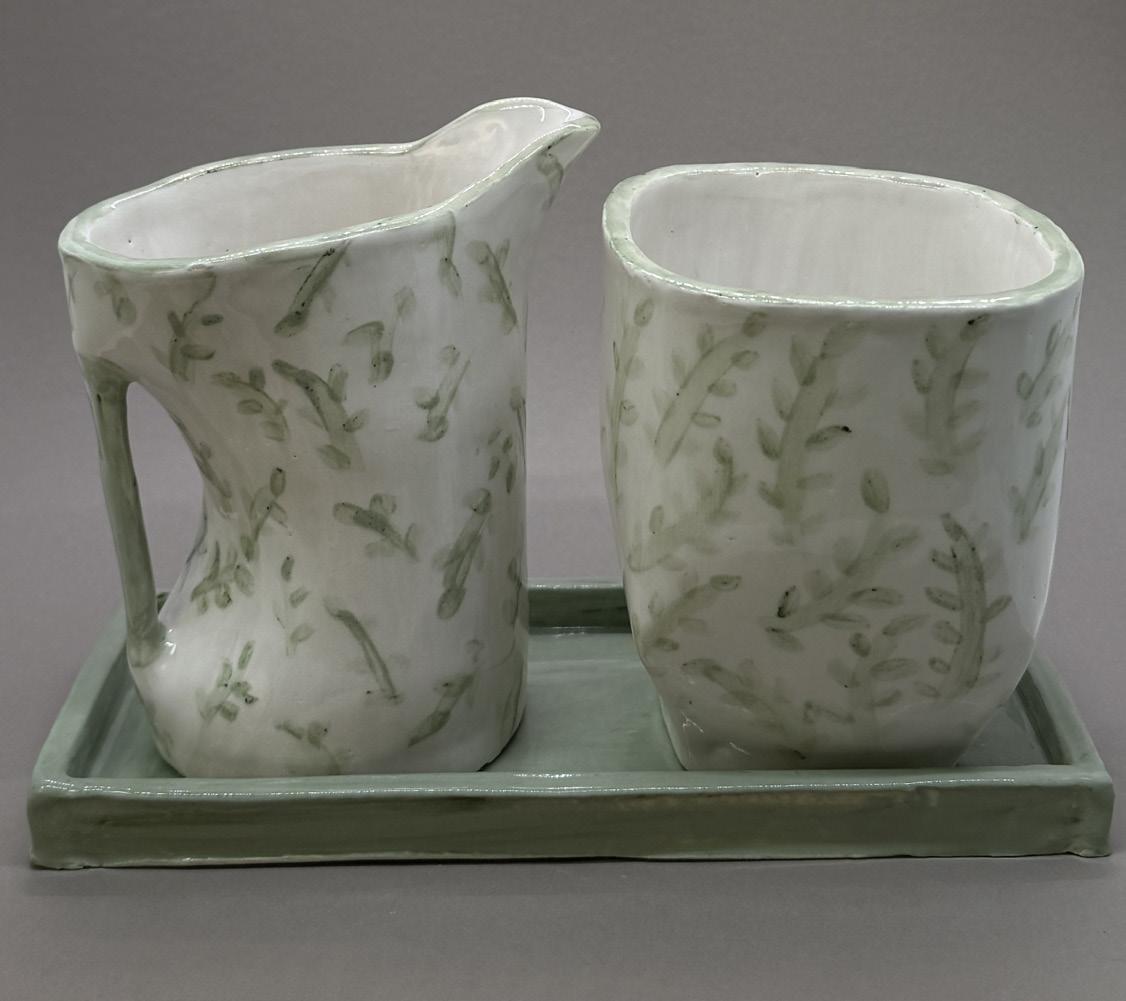
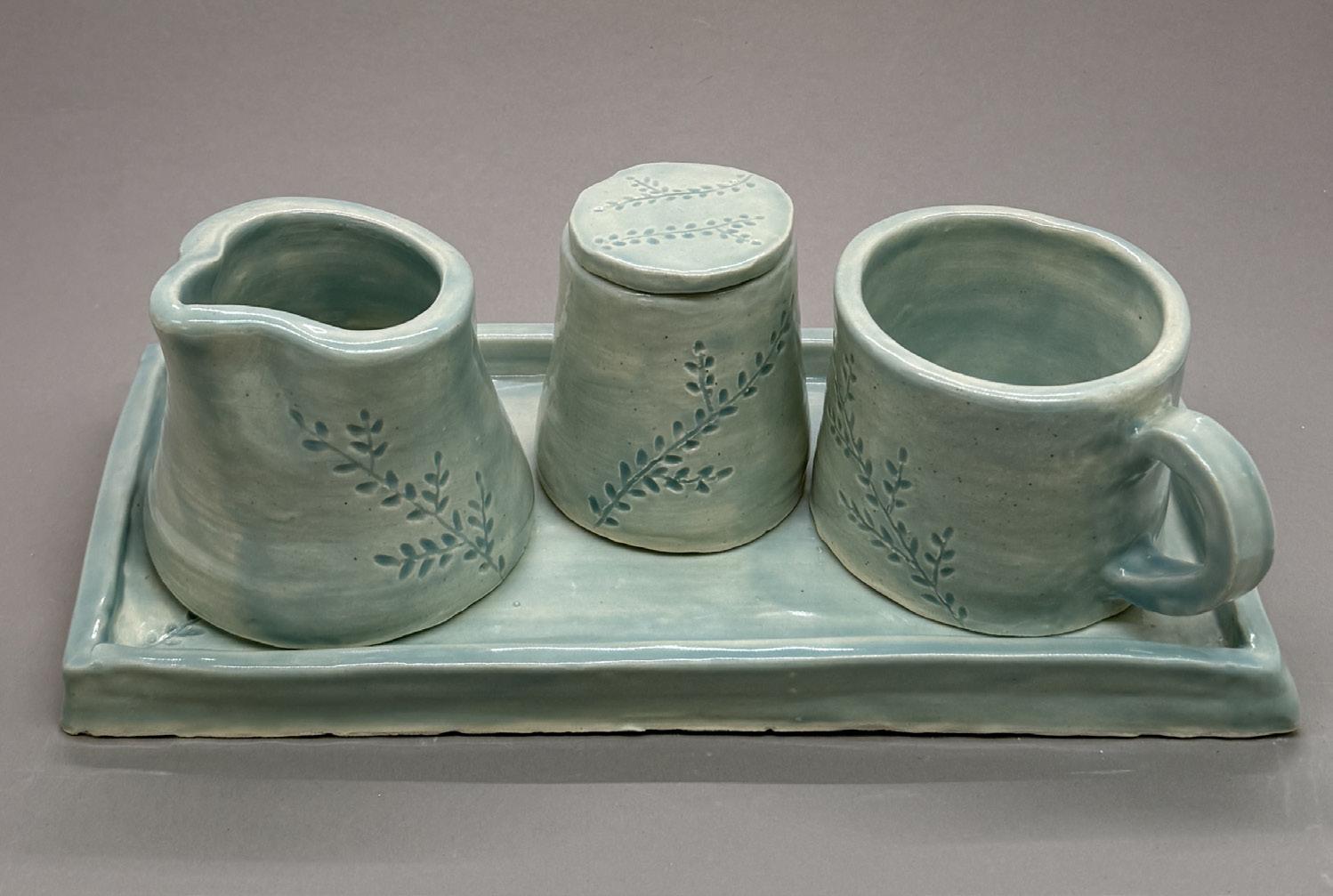
Olivia Tennery ’26
Coco Balette ’27


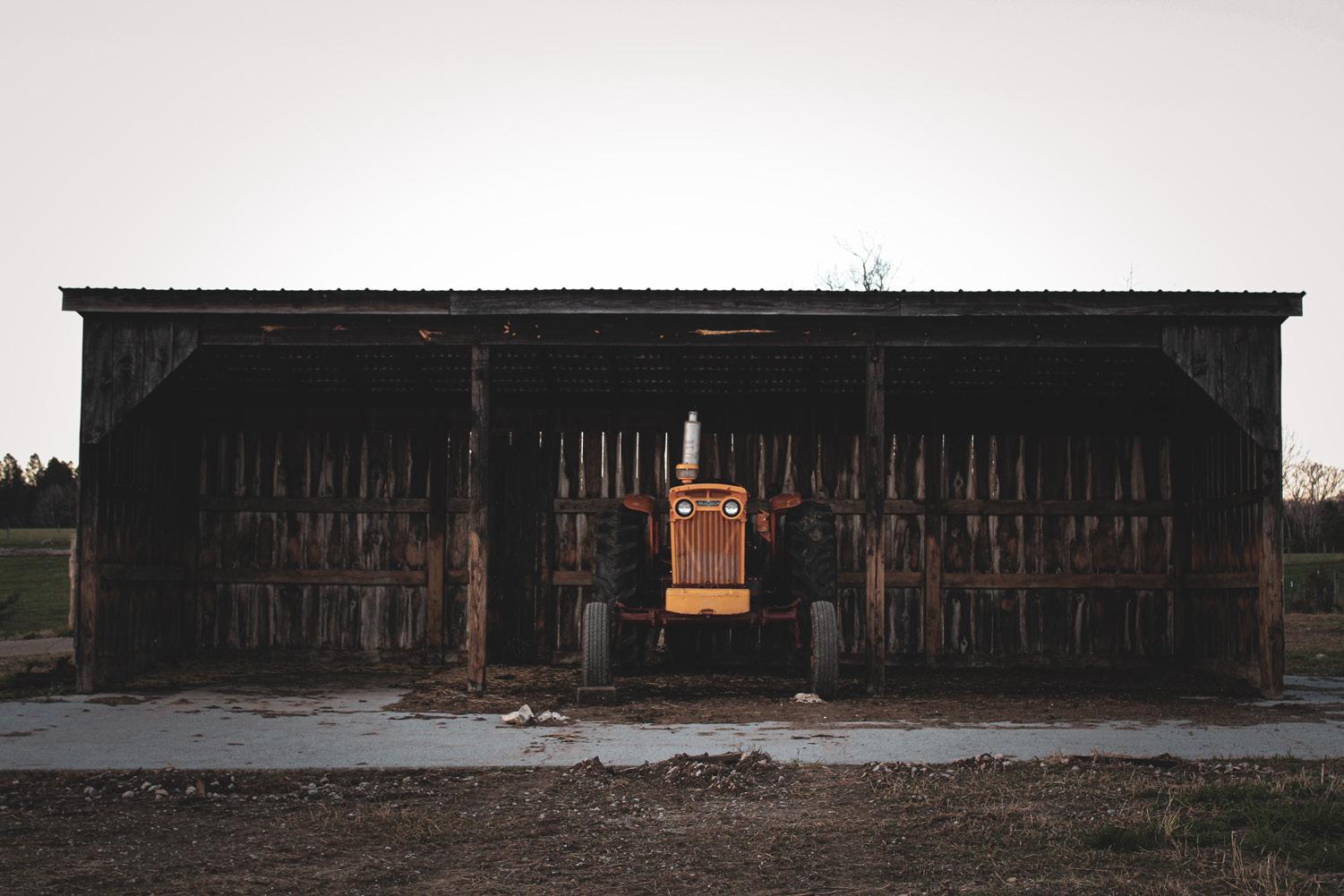
Dax Villines ’27
Michael Brimacombe ’28
Ari Kastello ’27
The Price of Time
by Lyla Jenkins ’28

Photograph by Leni Sommer ’27
Anyone who says “Money can’t buy time” doesn’t have enough money. This is what Dan Madden, the richest man in the world, said to everyone before he left. He was only 35 and had been diagnosed with Lung Cancer. He was going to die. The doctor gave him 5 years max. The richest, most successful, and influential man was going to die.
After word got out, many people came forward claiming to be distant family or longlost children. All con-artists, trying to get their name in Mr. Madden’s will. He had no family, no children, and no close friends. He was a man of solitude who sat in his office and processed the world’s problems. It’s how he got so rich. He started multiple billion-dollar companies and nonprofits that benefited the world. One, Ecosphere, a company that single-handedly stopped and reversed global warming and pollution. Another is Equitopia, which worked to help underdeveloped and 3rd world countries. This man single-handedly solved some of the world’s most
puzzling problems.
One day, while sitting in his office, processing the fact that he was going to die, he started thinking. He thought way back to a conversation he had had with an astrophysicist and how he had mentioned that time moves slower when near things with a lot of mass. He sat with this idea for a while: How could he live forever? How could he prevent his dreadful fate? It couldn’t be possible, could it?
“Amy,” he said, referring to his assistant, “Could you get NASA on the phone for me, please?”
“Sir, it’s quite late,” she questioned.
“This is urgent, my life is on the line.”
“I’ll get them as soon as possible,” she complied, leaving the room, cell phone in hand. Not long after, Amy entered, holding the cell phone out to Mr. Madden.
“Hello,” he said into the phone.
“Yes….. yes I know……. but I have an idea…... if we just had me fly around a black hole and back
to Earth—”
“What!” Amy exclaimed, “Shhh!” he said, waving his hand to swat down her comment
“Yes…. no…. a meeting at 9:00…. no 10:00 is too late… 9:00 am…… all right, good night.” He hung up the phone and placed it on the desk.
“You’re going to fling yourself around a black hole?!” Amy said, her tone getting more concerned by the second.
“It sounds much worse than it actually is,” he said. “Albert Einstein’s theory of special relativity says that the closer you are to something with more mass, the slower time moves. Think about it, we shoot me up in a rocket ship, have me fly around a black hole, and for me it may only feel like 3 years, but everybody back on Earth it will be like 300.”
“What does that have to do with you?” Amy’s face was twisted with confusion and uneasiness.
“We could send me out in space, and by the time I get back, hopefully, there will be a cure.”
“That’s crazy! How would—”
“Ah, no questioning my theories,” He held his hand up to silence her. Amy obliged and walked towards the door to leave.
“What if you come back and there still isn’t a cure?” she questioned slowly, turning back towards him. There was a long pause, and it allowed the question to hang in the air.
“Then I die,” he answered coldly.
One year passed, and Mr. Madden’s plan had finally come together. He donated funds to every single cancer research facility, took astronaut training courses, and worked with engineers, physicists, and mathematicians from around the globe. The whole world knew his story. One news article read, “Madden, more like Mad Man.” Nobody believed he could do it and survive. Many believed that he was defying the laws of nature, but in actuality, he was simply bending the laws of physics.
“Aren’t you worried?” asked the reporter, three days before the launch.
“No, I am not,” he said plainly. The problem is that he should have been. Anything and everything could go wrong. Something could blow up during the launch, something could break, the spaceship could get hit, or he could run out of food or water or air, or fuel. He could accidentally get sucked in by the black hole.
And even if everything goes smoothly, there is a chance he will return to Earth, and there is still no cure.
“What about everyone here on Earth? You will outlive all of us,” the reporter said. “To be honest, I have no one I will truly miss.” Those are some last words for someone who is about to outlive eight billion people.
Launch day finally came, and there wasn’t a single person who wasn’t watching. People crowded in the observation area to see a man possibly kill himself to save himself from death.
The spaceship was quite nice and one of a kind. It looked like something straight out of a sci-fi movie. The whole ship had a sleek, clean, futuristic look. The ship was equipped with a king-size bed, a modified smart kitchen, and a bidet. The mission was set to last 200 years on Earth, and would only feel like four years for him. The spaceship would be going so fast it could travel around the world five times in seconds.
Everyone held their breaths as the countdown began. 5….4….3….2….1. BOOM!!!!
The ground shook and everyone gasped as Dan Madden shot up and into the galaxy.
Eventually, the spaceship was so far that Earth lost connection, and Mr. Madden was now all alone in a massive galaxy. He had anticipated boredom, seeing that the ship was mainly able to run on autopilot for the majority of the journey. He had brought books of all kinds and music of all genres. But after a while, you can read so much.
So Dan Madden did what he always did. Think. He began thinking about his trip and how much was left. He thought about how much water drinking and how much food he was eating. He thought about Earth and wondered how much progress they were making. He thought about all the people who had come to watch the launch. And most importantly he thought about dying and how it could happen at any moment.
Death is such a weird thing to wrap your mind around. Did I do enough? Did I really build a legacy? He thought to himself. In the grand scheme of things, yes, he has a great legacy and helped millions of people. But something that really bothered him was how he had no one to share it with. He was alone. He was alone on Earth. He was alone on this ship. He was alone in this universe. And that in itself is scarier than death.
Two years had passed, and the solitude of the spaceship was driving Mr. Madden crazy. But he had to stay focused. He would soon have to steer around a black hole.
When the black hole was finally visible. His eyes were wide with awe. All he could do was stare at the sheer greatness of the thing as he orbited. He felt insignificant next to it. He gripped the controls tightly and hit the engine. He was instantly pinned to the back of his chair by the force of the acceleration. This Black Hole did not care who Mr. Madden was or what did, it was going to do everything it could to suck him in. Please, Please, Please, He thought to himself, barely able to breathe with how much force was pulling him back. This was the first time he felt scared for his life. He gasped when the engines began to sputter. He truly thought all of it was coming to an end. Then he felt it, the grip of the black hole was slowly but surely loosening. He had beaten a black hole in a game of tug-of-war. He felt utterly relieved as he began to catch his breath.
The rest of the mission went smoothly to Mr. Madden’s relief. All he could think about was getting home and getting off this spaceship. In the back of his mind the thought that his whole mission was for nothing haunted him. What if there is no cure and all of this was nothing? He thought. Eventually he came to accept that it was out of his control and had still proven something.
Soon, he regained contact with Earth. And for the first time in 200 years, the world would know if Dan Madden survived. His hands were sweaty as he went to turn on the radio. He was nervous. “Hello?” he spoke into the radio in his most steady voice. “Is anyone there?” He began to panic at the thought of no one answering. “Hello? Can you hear me?” he repeated. Finally, after a long pause, the radio answered:
“Mr. Madden, we’ve been waiting for you. Welcome Home.” A wave of relief hit Mr. Madden and he let out an exasperated sigh. When he finally splash-landed on the coast of California he was immediately taken aback by the new technology. Everything was self-driving, clothing was waterproof and fireproof, and instead of phones people had what he learned was called a holo, short for hologram. A small thin bracelet that had all the upgraded purposes of a smartphone.
The second Mr. Madden’s feet touched
solid ground for the first time in 200 years, he turned to the man next to him and asked: “Was it all in vain? Is there a cure?” The man’s eyes darkened.
“I’m sorry.” That was all he had to say for Mr. Madden to know. He was still going to die. Even after all that, he was still going to die. He shook his head in disbelief.
“Oh my god,” a tone of regret rising in his voice. “It was all for nothing.”
“Maybe,” the guy said, “But look how many people came to welcome you home.” The guy opened his holo to show a 3D image of thousands of people standing outside his house. And sure enough, when Mr. Madden went home and saw all of these people. All there to welcome him. For the first time in a long time, he finally didn’t feel alone. Even though he died five months later, he finally felt that he was no longer alone and that his legacy was being shared with the world.

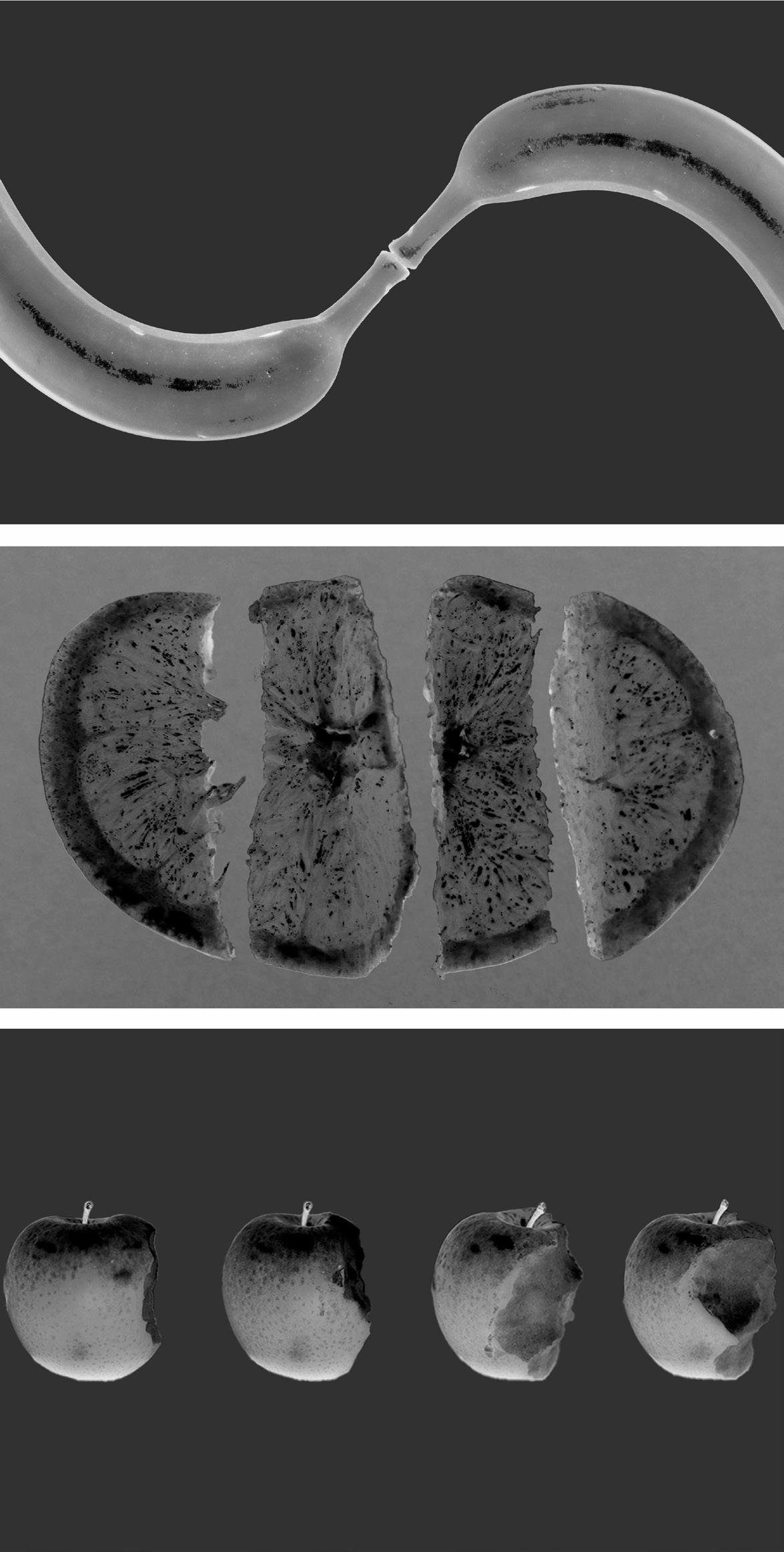
Will Jiao ’26

Liam Welsh ’27
Opposite: Sally Fleming ’27

The Thirteenth Gift
by Marin Halstead ’25
Once upon a time, there was a royal family who lived in a beautiful castle. The world this kingdom was located in consisted of many magical creatures, such as talking dolls. One day, the king and queen had a daughter, and they named her Perdita. Queen Harriet, in particular, wanted to throw a grand party to celebrate the birth of her daughter, and so the royal family invited twelve magical dolls to bestow her with gifts. These gifts were characteristics such as kindness, bravery, generosity, and other wonderful qualities fit for a princess.
However, they neglected to invite the thirteenth magical creature, a reclusive changeling, Gretel, who rarely showed herself or interacted with anyone. The royal parents figured she would not attend regardless of an invitation, so they never bothered to send her one. However, this angered the changeling so much that she appeared at the celebration unannounced, in a puff of green and black smoke. As soon as she appeared, all the torches in the castle extinguished simultaneously, flooding the ballroom with darkness. The only light in the entire room came from the dull green glow emanating from the changeling’s body. In a low, raspy voice, the changeling spoke,
“Why did I not receive an invitation to this celebration?”
The entire room was completely silent. Not even the slightest exhale could be heard: Gretel’s question stunned all the attendees into terrified silence.
“Speak.” Gretel extended her finger and aimed it directly at the king and queen. Queen Harriet took a shaky step forward.
“Well… we assumed you wouldn’t want to attend, since we don’t see you very often…” the queen anxiously trailed off.
“What a bold assumption!” Gretel scoffed. “Honestly, I’m more taken aback at
your sheer audacity than anything.”
Gretel slowly approached the queen. Despite her fear, Queen Harriet stood her ground and kept her eyes locked onto the changeling. The twelve magical dolls stared frozen in fear by the cradle where the princess lay fast asleep. They were in the process of blessing the baby with their magical gifts when Gretel arrived, and only one doll had yet to give her gift.
Gretel turned her cold stare away from Queen Harriet and directed it at baby Perdita, peacefully nestled in her cradle. Gretel once again extended her finger, but this time she aimed it directly at Perdita.
“Well, regardless of whether I was invited or not, I’m feeling generous enough to give the sweet little princess a gift of my own.” As she spoke, green light seeped throughout every corner of the room. Everyone gasped and looked around wildly, frozen in terror.
“Now I shall gift you with something fitting of the situation… You are cursed to eat a piece of poisoned gingerbread and fall asleep for all eternity on the dawn of your sixteenth birthday!”
The second the words left Gretel’s sneering lips, all the green light in the room sped toward Perdita’s tiny body, and lingered around her for a moment before disappearing into her. With a cackle, Gretel disappeared into a cloud of dark smoke. As the crowd began to recover from the shock of the experience, everyone began to sob with despair. Queen Harriet fell to her knees and wailed uncontrollably as the king stared in utter disbelief at his still-sleeping infant daughter. Just as everyone had given up hope, the last doll, who was called Lollipop, stepped forward.
“I have not yet given my gift. I may still be able to reduce the effect of the curse,”
Lollipop said softly, as she approached the crib. She closed her eyes and stretched her palms toward Perdita, her eyes scrunched in pure focus. As she did, a sparkling pink light emanated from her hands and absorbed into Perdita’s body.
“Unfortunately, the curse was too strong for me to fully remove it. However, I was able to reduce its potency. Instead of being asleep forever, she will be asleep for 100 years. It’s the best I could do.”
While still devastated, the kingdom gained a glimmer of hope from this. Their beloved princess would awaken after 100 years instead of sleeping forever, and for that, they were grateful.
In the meantime, the kingdom turned its attention to the poisoned gingerbread that would serve as the catalyst for this catastrophe. Immediately, the king and queen banned anything and everything pertaining to gingerbread. Bakeries were stripped of their ingredients, sellers of gingerbread merchandise were raided, and notices were placed on every available surface to remind the kingdom’s subjects that gingerbread was strictly forbidden. Any baking of gingerbread would result in immediate and permanent banishment from the kingdom. Luckily, all the villagers diligently adhered to this rule, so banishment was never necessary.
As Perdita grew older, she lived a carefree and happy life. She still had all the positive traits given to her by the dolls, so she treated everyone with kindness and generosity, and everyone loved her dearly for it. She was never allowed to leave the castle grounds, for fear of her interacting with
gingerbread, and she was always under the watchful eye of Queen Harriet. Everything continued like this until the day before her sixteenth birthday.
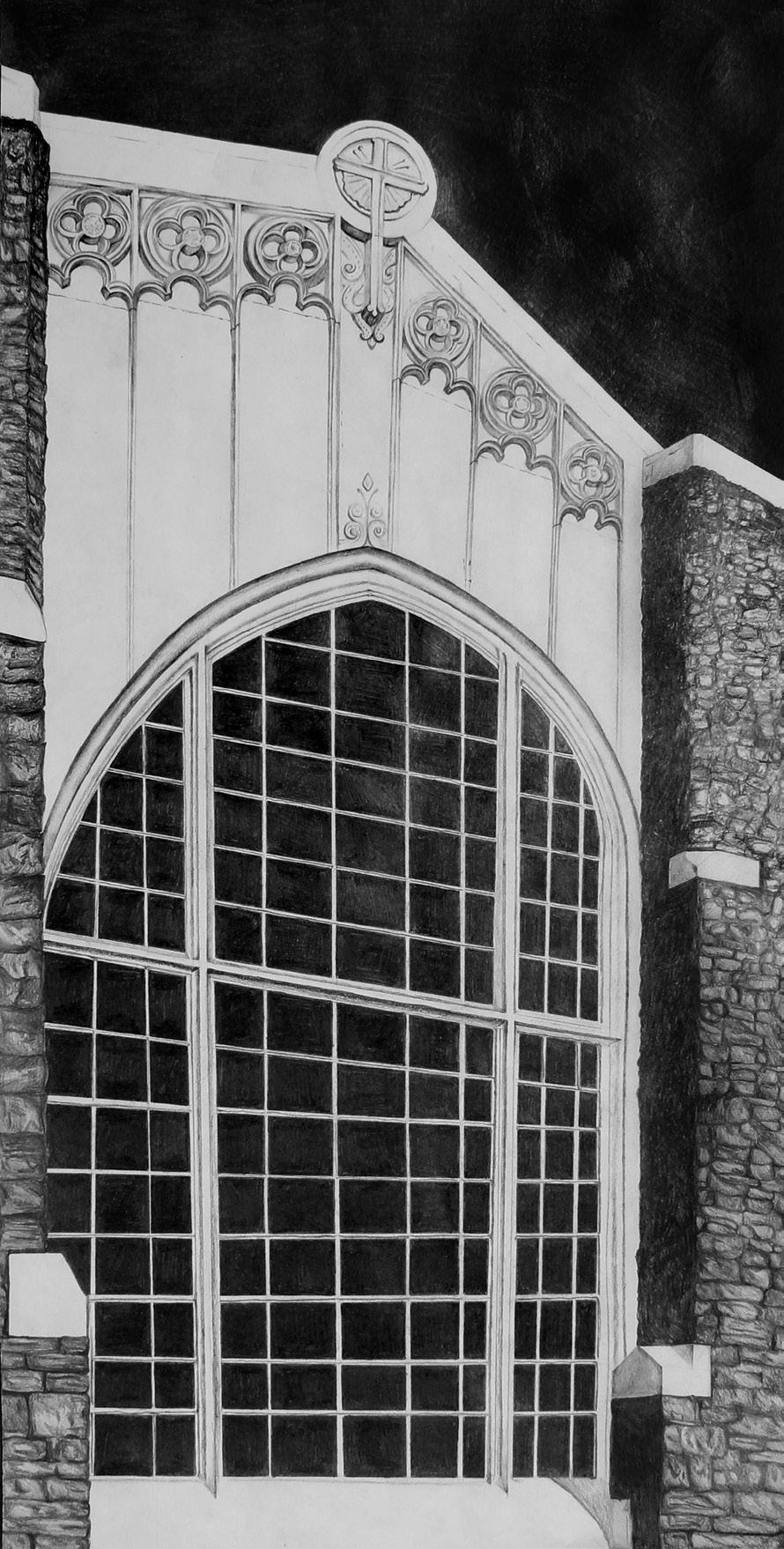
On this day, everyone was particularly anxious about Perdita. Queen Harriet even locked her in her room and forbade her from leaving. She also stationed a guard
Drawing by Anastasiia Pestova ’27
at the door to ensure Perdita couldn’t sneak out. Naturally, this annoyed the young princess greatly. She had grown increasingly restless with her restrictions and had begun to find her own ways of escaping reality. One of these methods was a hidden escape tunnel she had painstakingly dug out in the wall, using a painting to hide the hole.
Perdita decided to use the tunnel to sneak out of the room she was confined in. She quietly removed the painting from the wall and crawled her way out into the night. As she reached the outside world, she saw the first rays of the sunrise peeking from behind the rolling hills in the distance. Just as she was taking in the beautiful sight, someone tapped her shoulder.
“Excuse me, young lady, but would you like to try some of my gingerbread? I baked it just now, and I need someone to taste test it.”
When Perdita turned around, she saw an innocent-looking old woman standing there, a plate full of fresh gingerbread in her hand. She peered at it curiously; she had never even heard of gingerbread, let alone seen it in real life. It looked and smelled delicious, so despite her thinking it was a bit odd that this old woman was baking in the middle of the night, she decided to try some.
“Oh my, it looks amazing! I would love to try some, thank you so much!” Perdita beamed as she took a bite of the gingerbread. The second she swallowed, her knees buckled, and she collapsed to the ground. The last thing Perdita saw before losing consciousness was the old woman cackling as she transformed into her true form: Gretel the Changeling.
“Hahaha, stupid fool! I didn’t think it would be that easy, but that idiot fell right into my trap!” Gretel began to transform into a cloud of smoke and escape when a voice rang out.
“Stop right there, Gretel. I’m afraid you won’t be getting away so easily.”
Gretel paused and turned to face
the voice. Standing there was Lollipop, the doll who had lessened Perdita’s curse and saved her from an eternity of sleep. Before Gretel could even raise her finger to curse Lollipop, the doll raised her hands and shot a beam of pink light directly at Gretel. The second it hit the changeling, it pierced right through her body, leaving a gaping hole right in the middle of Gretel’s torso. She looked down at her wound in disbelief and quickly attempted to repair the damage, but it was too late. Lollipop had spent the last 15 years and 364 days honing her magic skills to prepare for the moment when Gretel would attack Perdita. Her training had paid off, as Gretel watched the hole in her body rapidly spread to her legs, arms, and neck. She screamed desperately, trying to stop it with her finger, but her hands were quickly consumed as well. The hole eventually reached her mouth, her terrified eyes, and the top of her head. With that, Gretel was no more.
The moment the spell passed over Gretel’s entire body, Perdita began to stir on the ground. She sleepily rubbed her eyes and looked up at Lollipop in confusion.
“What happened?” She asked, slowly acclimating to her surroundings.
Lollipop smiled. “Nothing you need to worry about, Princess. Now come along, you have a birthday to celebrate.”
Lollipop helped Perdita to her feet, and the pair went into the castle. A glorious party was held, and this time Queen Harriet did not need to worry about a thirteenth uninvited guest making an appearance. Instead, the entire kingdom celebrated the lovely Princess Perdita, and they all shared non-poisoned gingerbread together at long last.

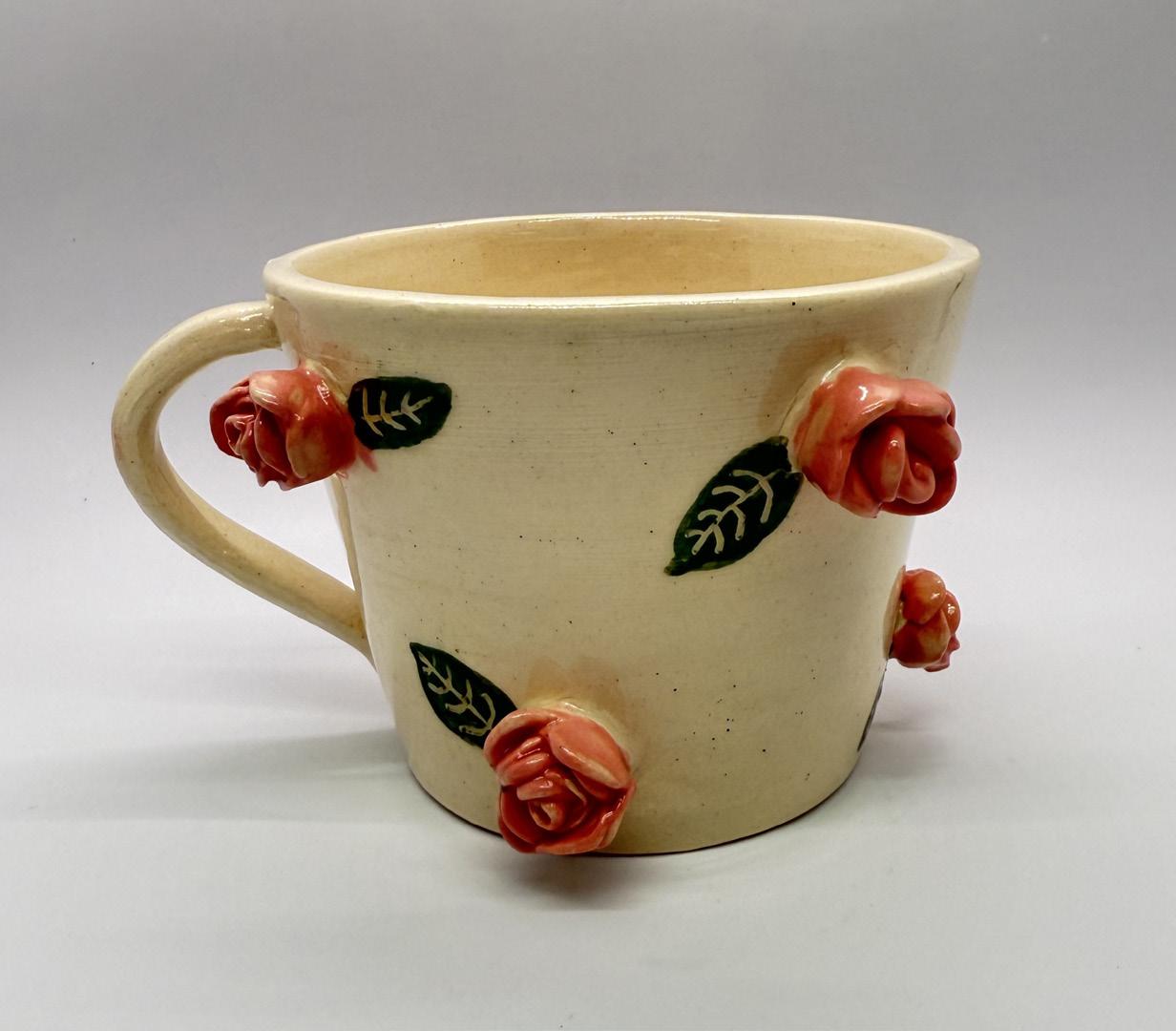

Chance Mallory ’25
Caroline Lang ’25
The Dance of Life
After David Whyte Willow Pemberton ’25
When the wind blows, It breathes life.
When the rain falls, It replenishes.
Leaves grow green again And flowers bloom.
The grey and white of winter, Desolate but somehow beautiful all the same, Gives way to the shades of spring.
The grass ripples with the breeze, Dancing, joyful to be alive.
The raindrops bounce off newly formed petals, Just barely born, yet vibrant with life.
Colors romp across the sky, the fields, the trees, In the shapes of spring, birds with new feathers and blossoms with new hues.
The world awakens from its slumber, shaking off its grogginess, Ready to live.
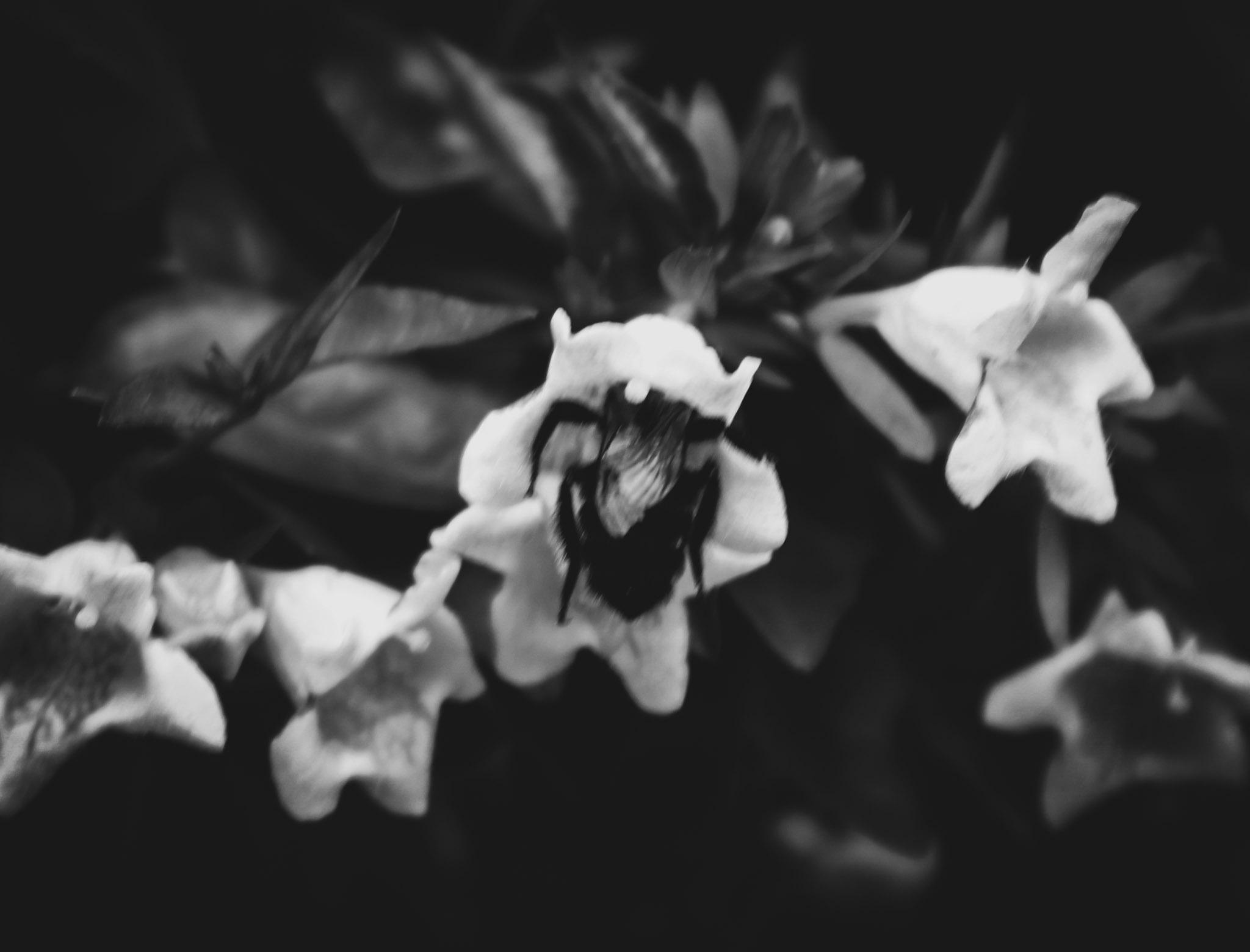
Evelyn Hancock ’28
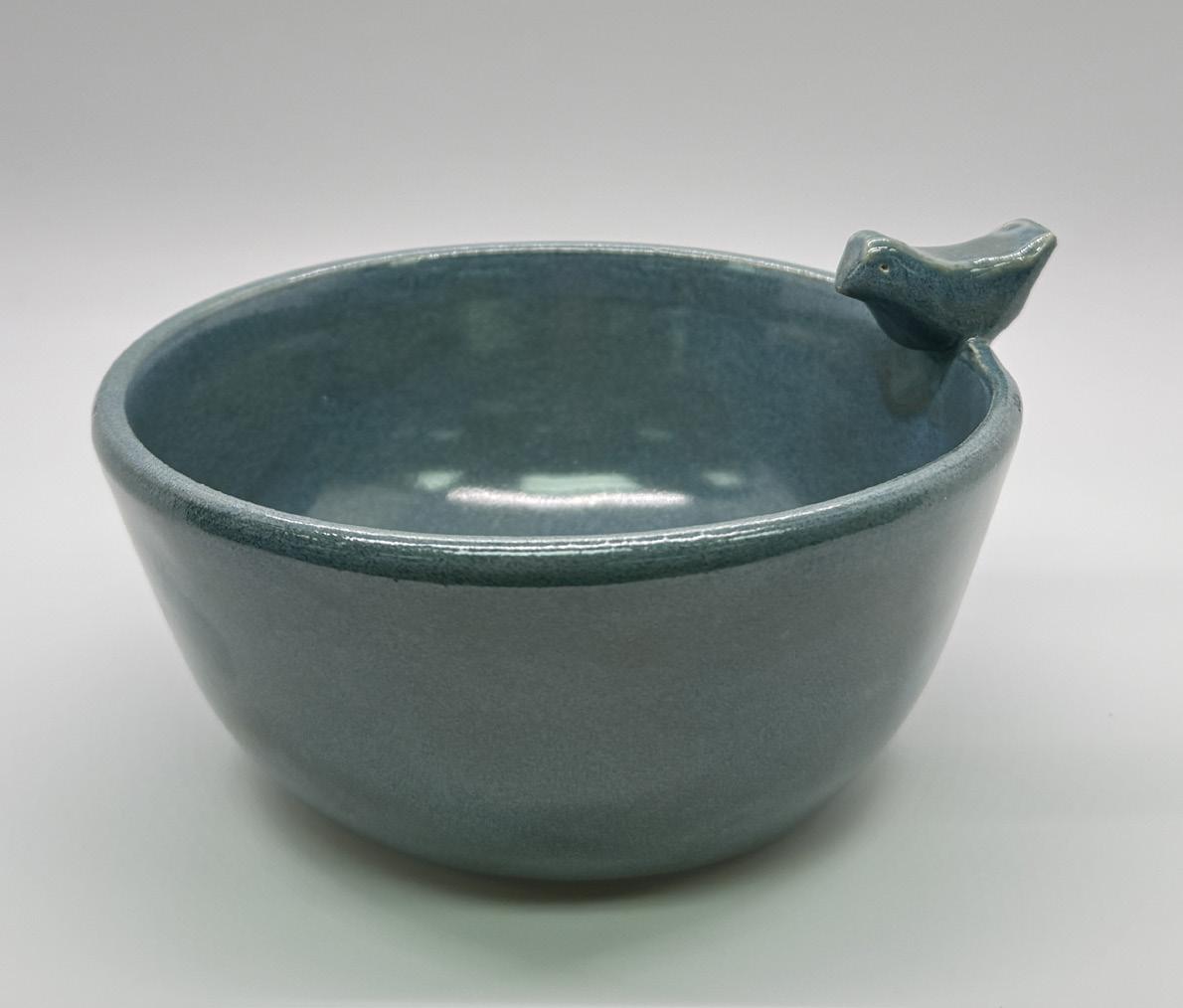
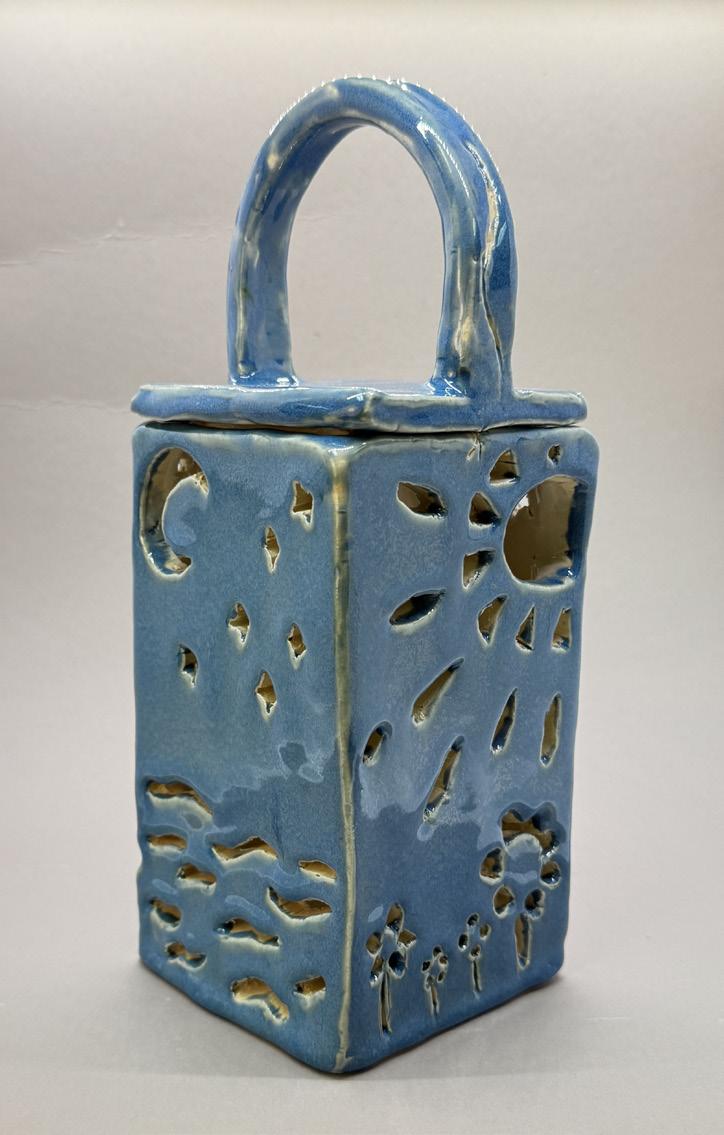
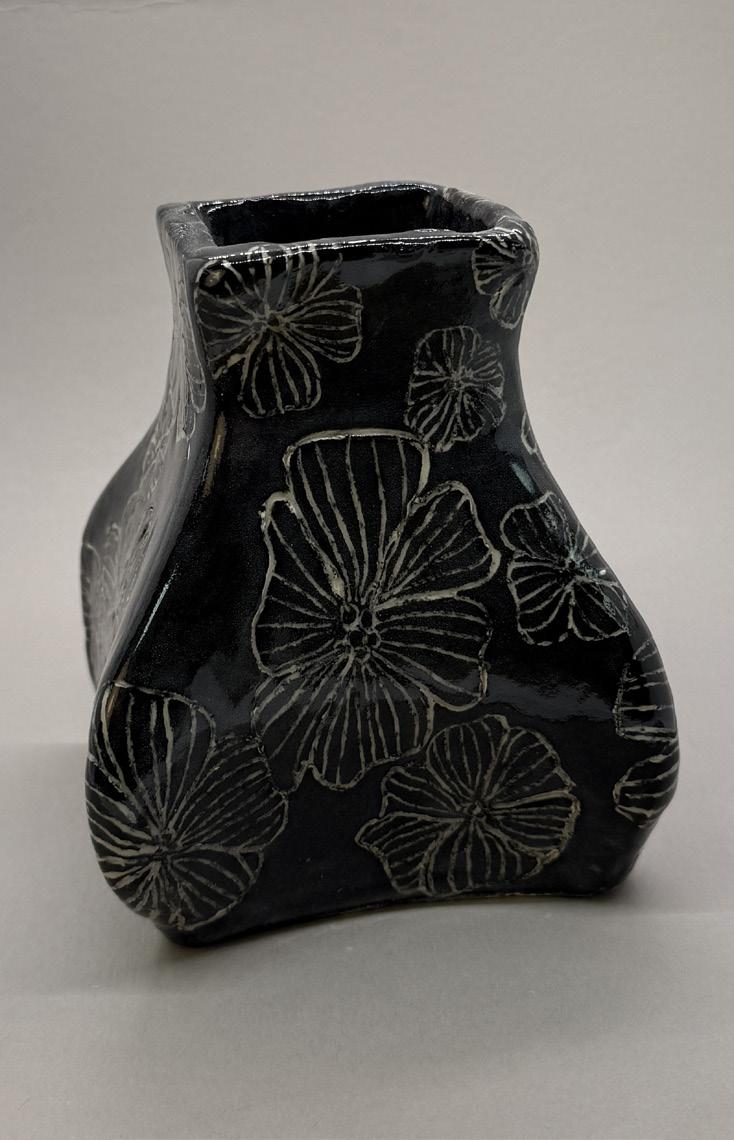
Margaret Hanley ’27
Mia Pisani ’25
Caroline Lang ’25
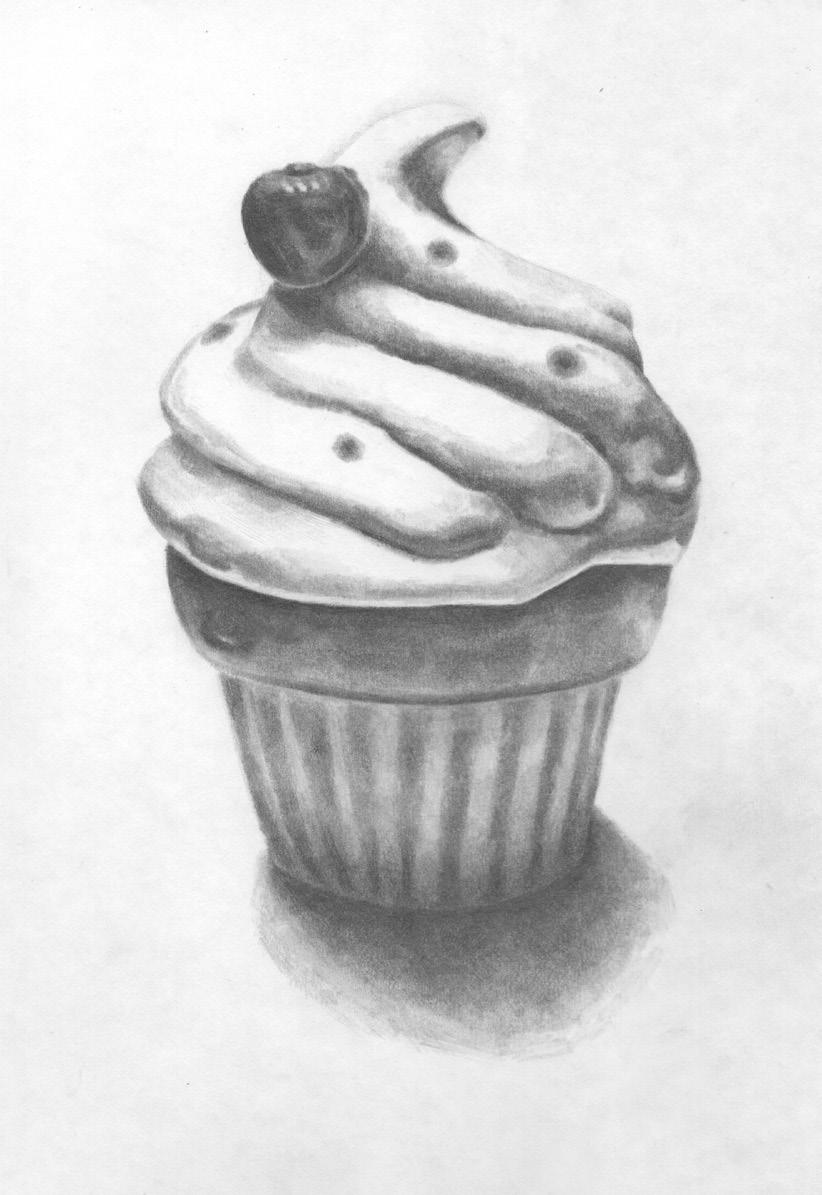
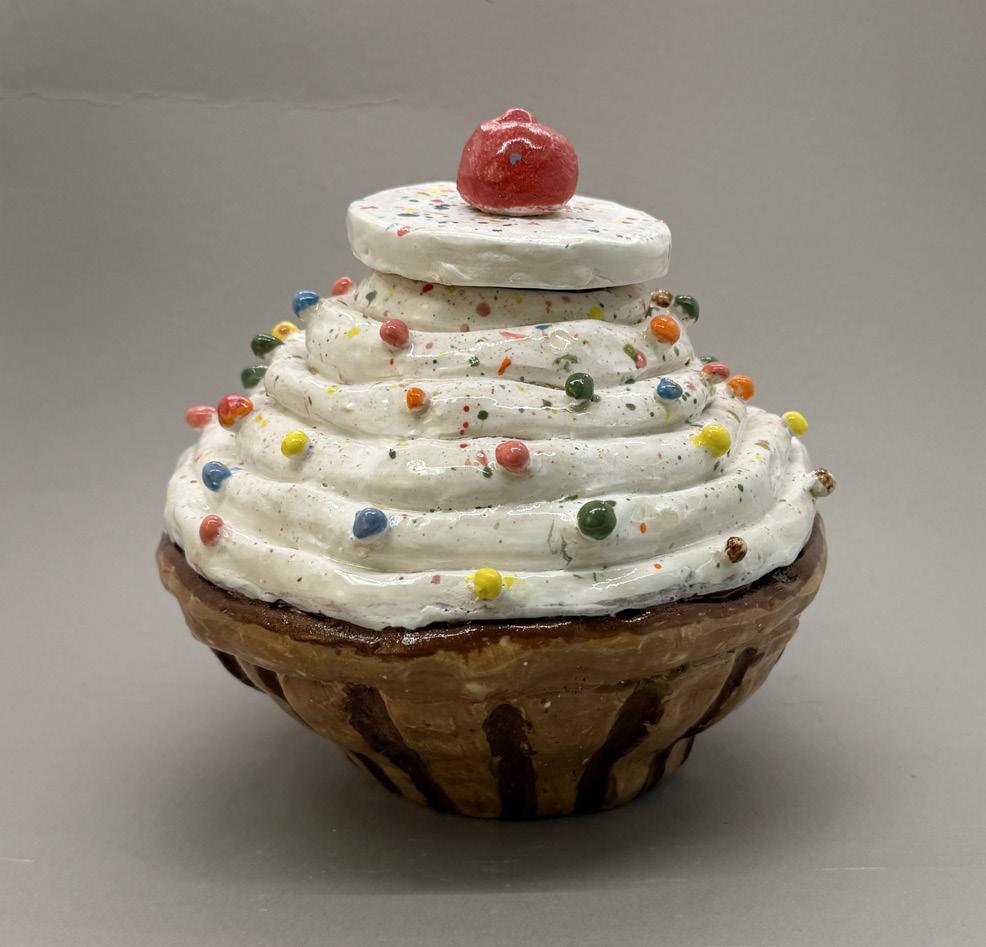
Marin Halstead ’25
Julieta Perez Veiga ’26
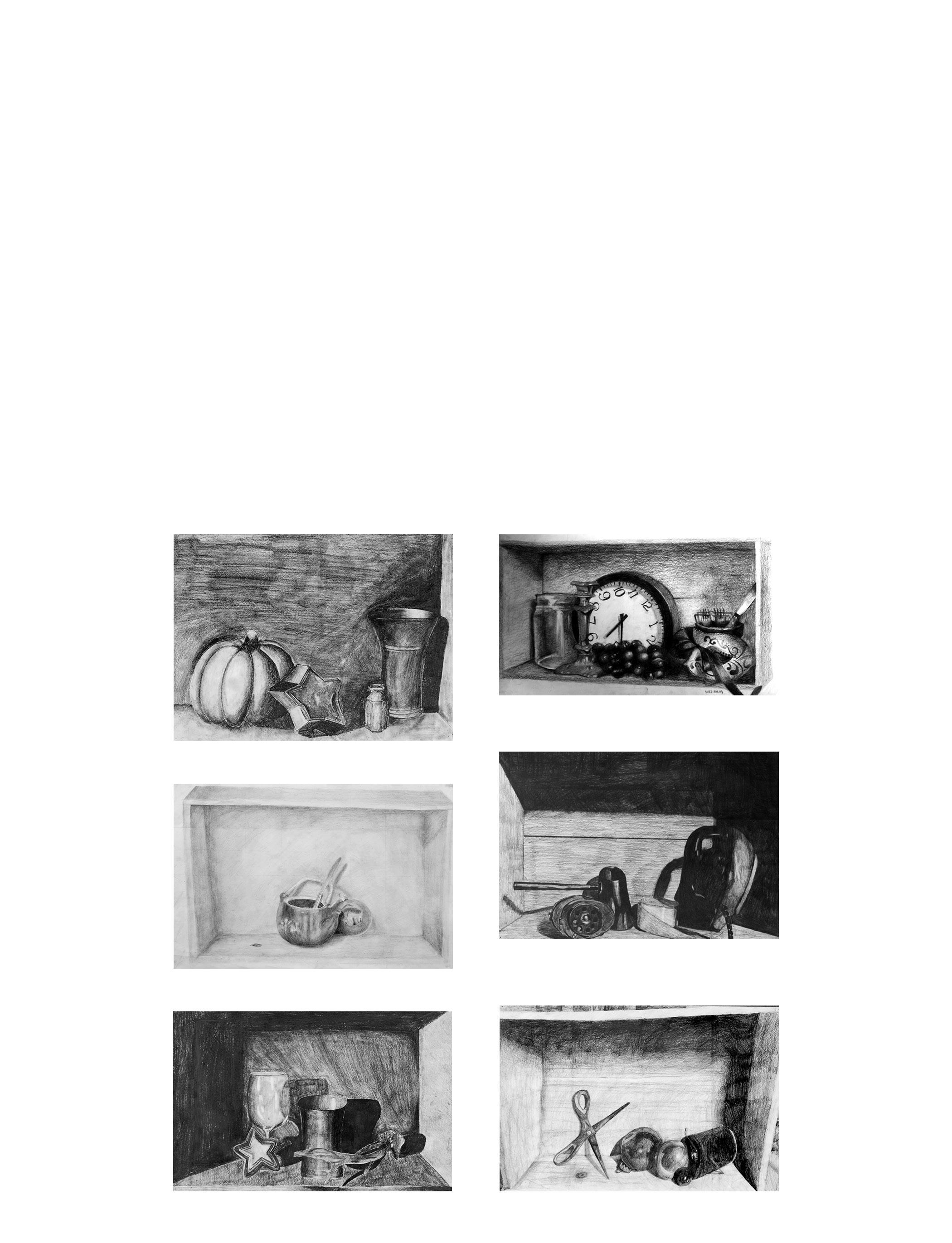
What’s In the Crate?
DRAWING 1
The French words “trompe l’oeil” translate to: deceive the eye. The phrase is associated with a movement where artists create work so precisely executed, viewers question the subject’s two-dimensional existence. The hyper-realism invites viewers into a composition from the perimeter, with edges that bridge the space between the outside and inside of an artwork. Once transported, the observer can investigate its believability (or unbelievability).
In the final project for Drawing 1, students were given a crate to fill with objects that interested them. What objects they selected, where they were placed, and how they were and lit, was wholly unique to each artist. They staged quiet, yet dramatic scenes which elevated ordinary objects to extraordinary environments.
The crate operates as a container, but also as a trompe l’oeil frame; it leads you into the world of the objects. And just like the Masters’ depictions of still life and their materiality, our students have challenged themselves to represent their drawings with photorealism; they worked using a grid technique to establish accurate proportions, and then employed the varied rendering skills learned during this foundational course.
Violet Moore ’28
Bella Duke ’27
Townes Peper ’25
Nori Zhang ’27
Austin George ’28
Miranda Del Angel Hernandez ’26

Today you remember
Charlotte Miller ‘27
I hope today you remember that the sky is not humiliated by its vastness and the mountains remain unashamed of their height. The clouds don’t conclude that they clutter the above
Mother Earth and her oceans are not afraid of their size And the sun not concerned if someone has to squint their eyes— she will shine and she will not apologize for her light.
And like the lily ponds teach us, it’s ok to froth over as seasons change and blossom back into life I hope today that nature teaches us to be kind.
I hope that we don’t dim. or shrink or fold into crevices far too tight. Yes, today I hope you remember this. I hope you hold yourself and you are kind.
Photograph by Chase Miller ’28
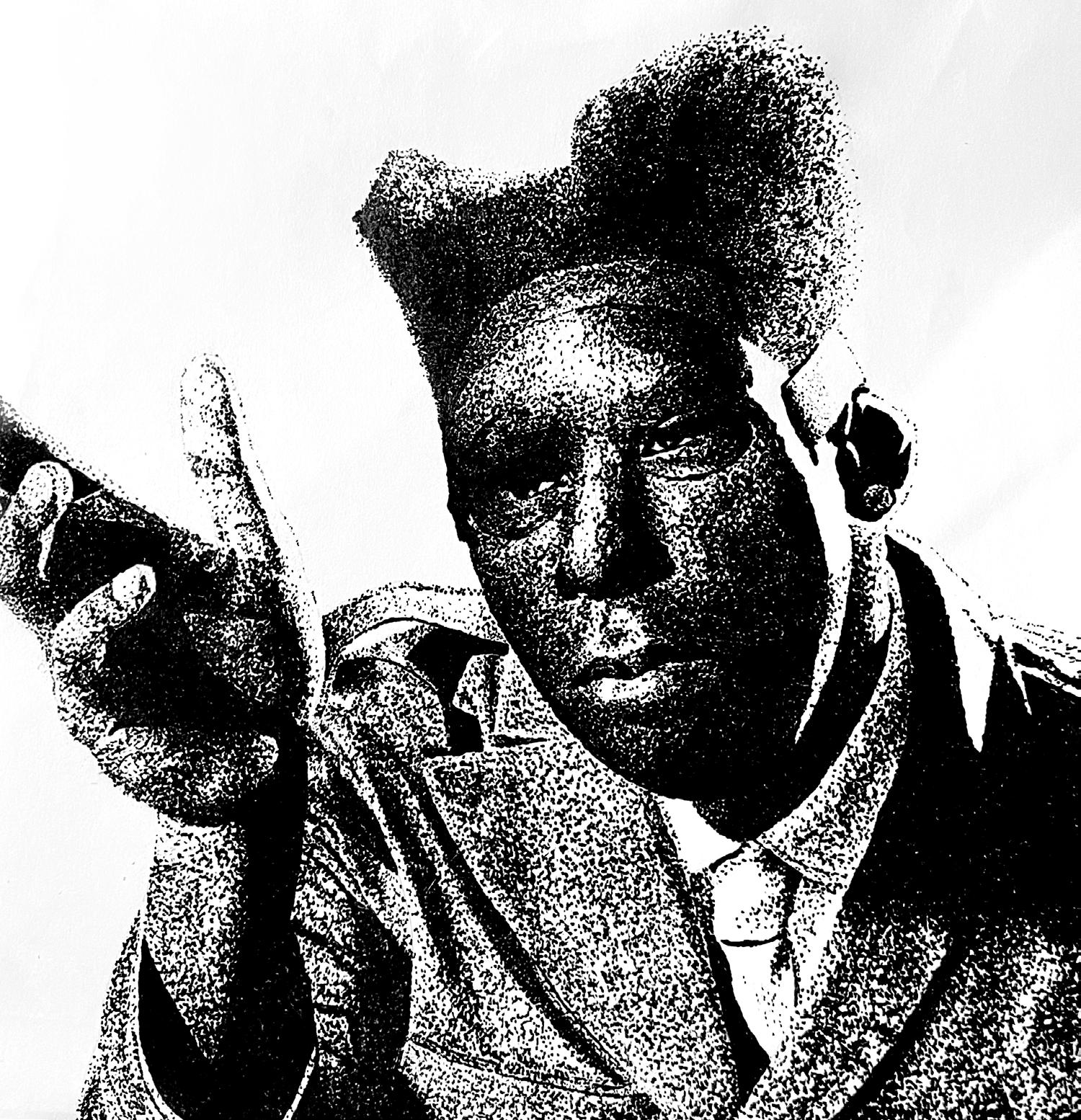
Matthew Cottler ’28
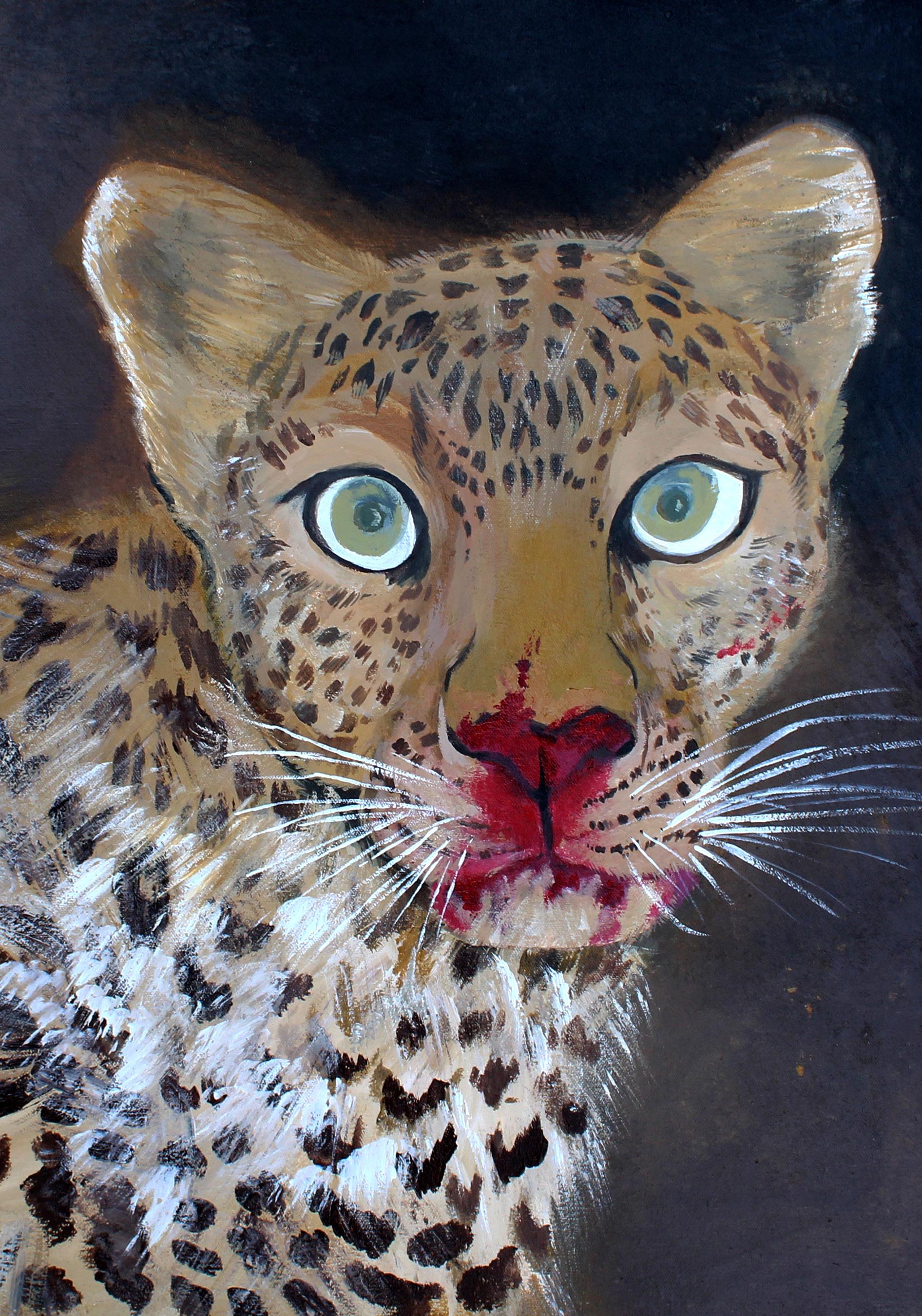
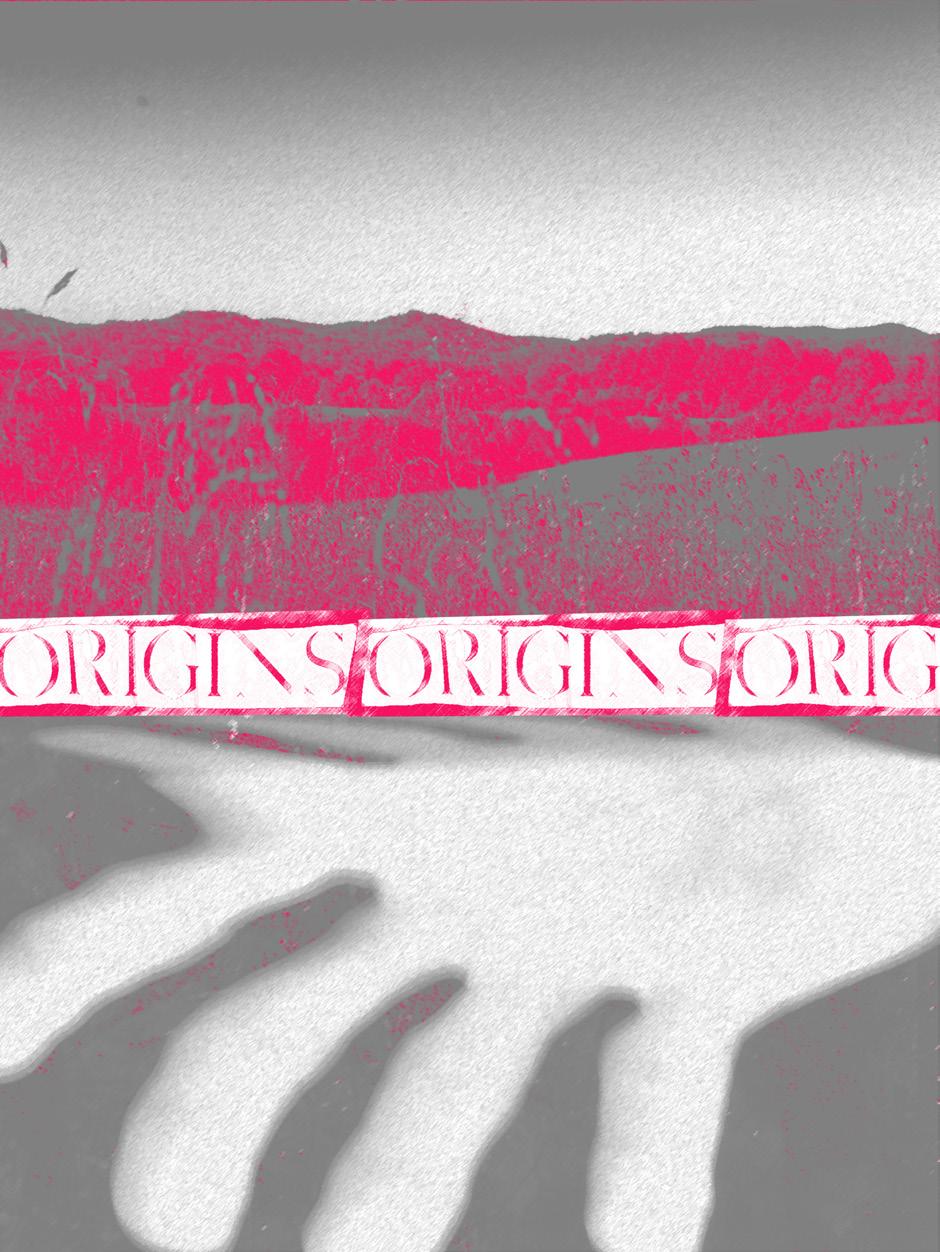
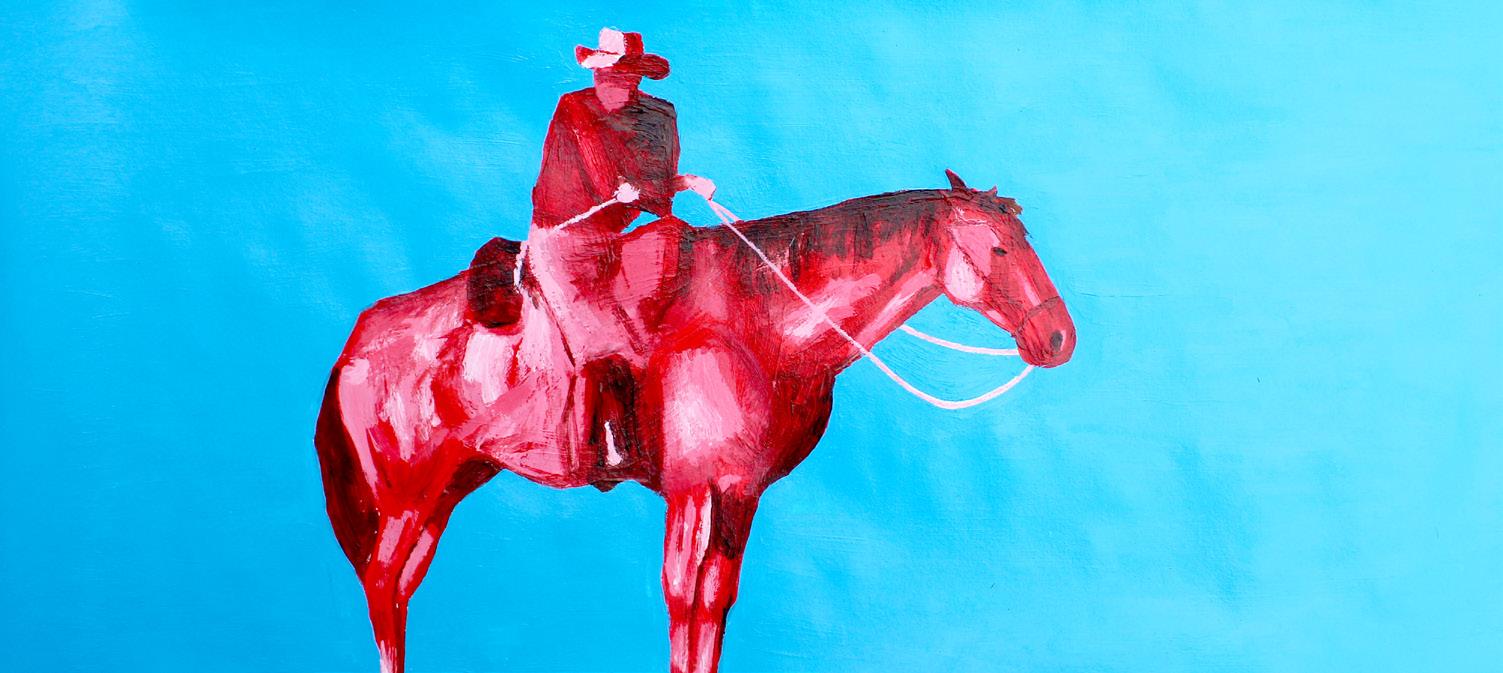
Opposite: Josephine Carter ’27
Joaquin Gatt ’26
Eva Hightower ’25
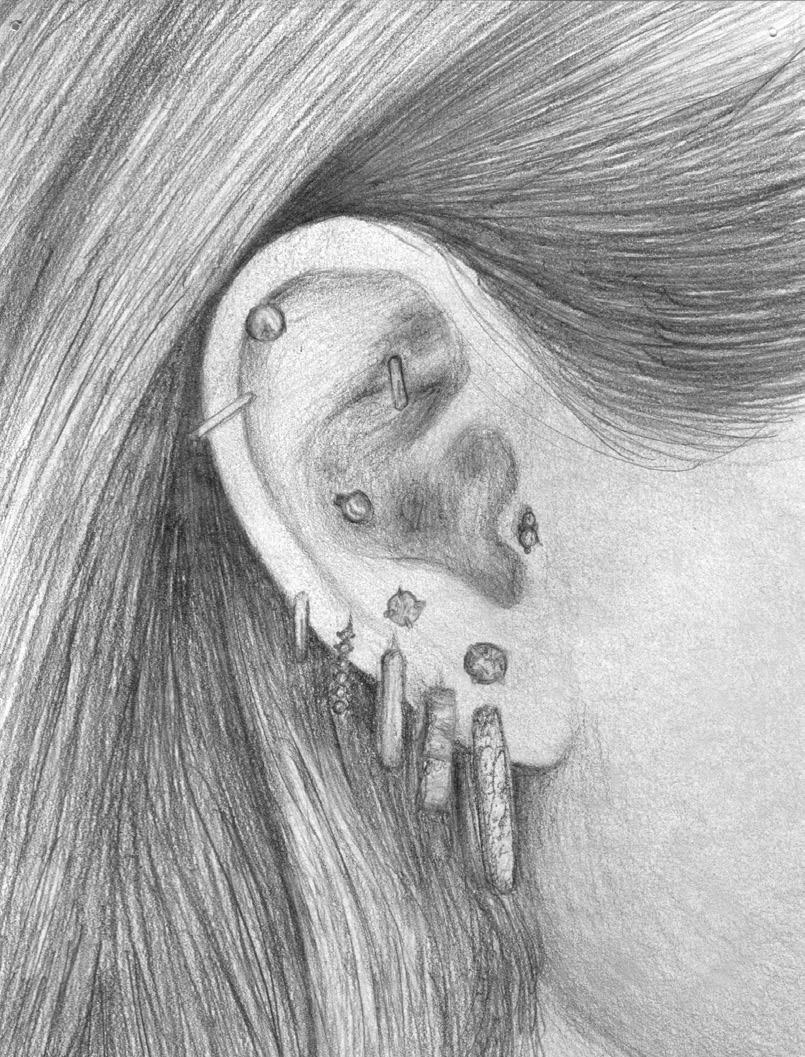
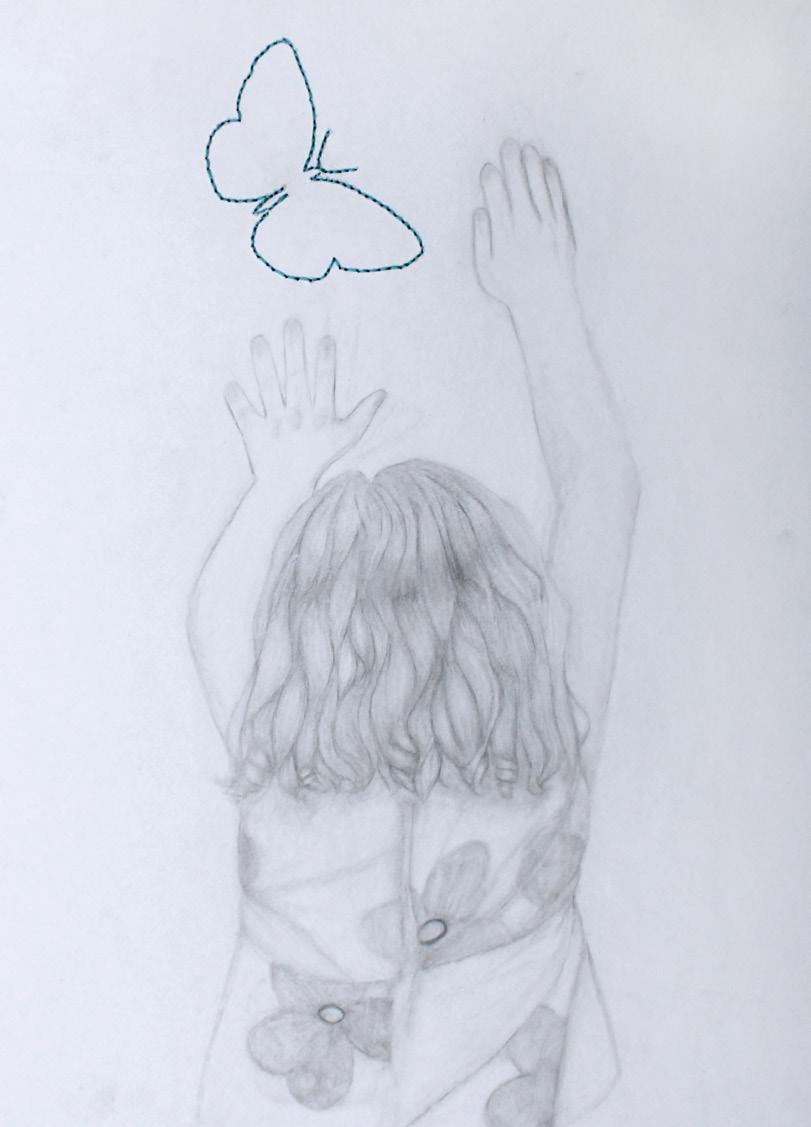
Chaney Stewart ’26
Kate Wilber ’25
ACCOLADES
Work from our students doesn’t just live within the walls of our buildings; many students have had their pieces selected to be hung in the McGuffey Art Center among the art of other outstanding students from schools in our area. Works by our student body have also been a part of film festivals and the Scholastic Art & Writing Competition, with pieces enjoyed all over the country. The following pages celebrate these outstanding artists.
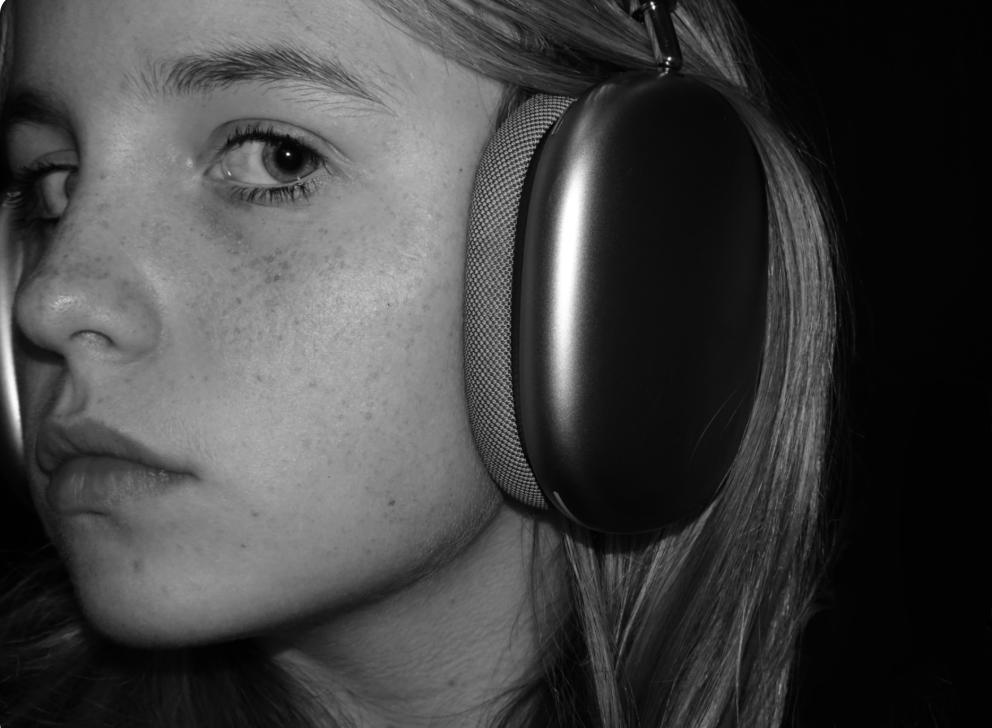


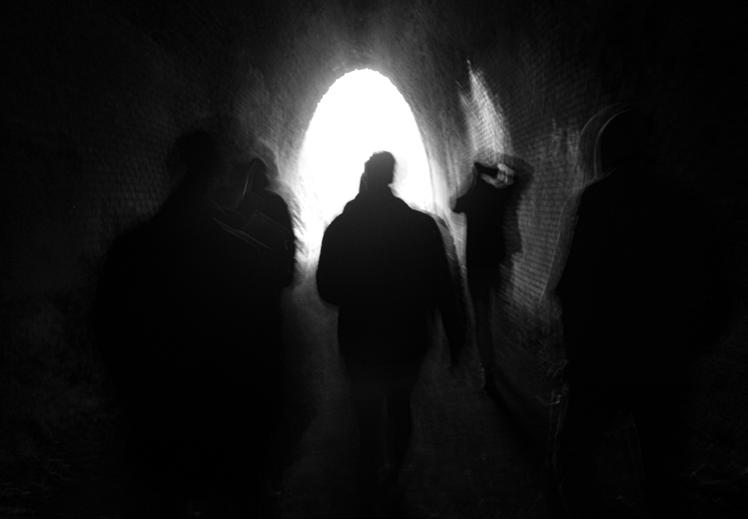

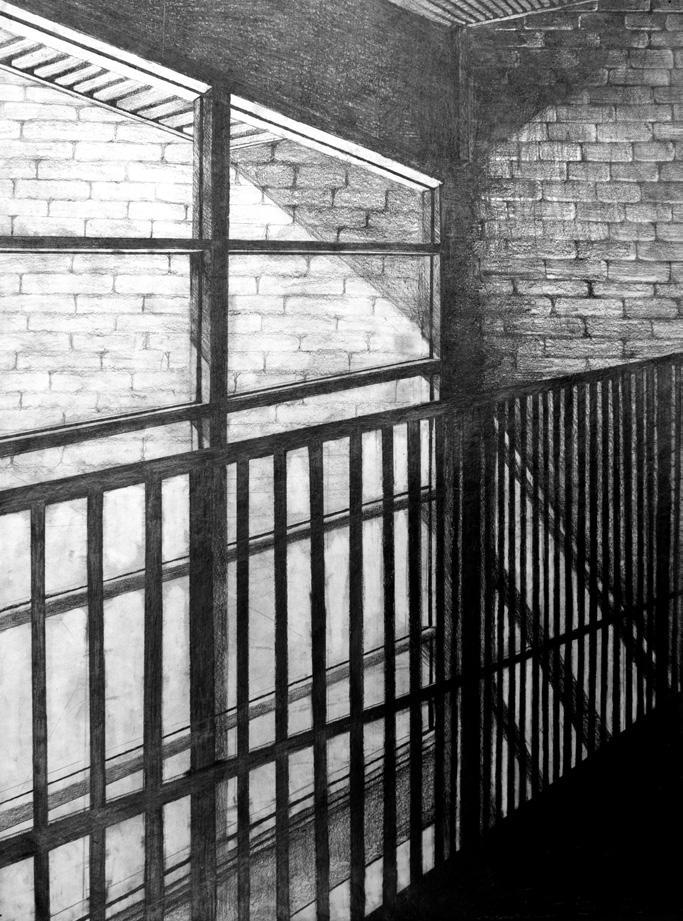

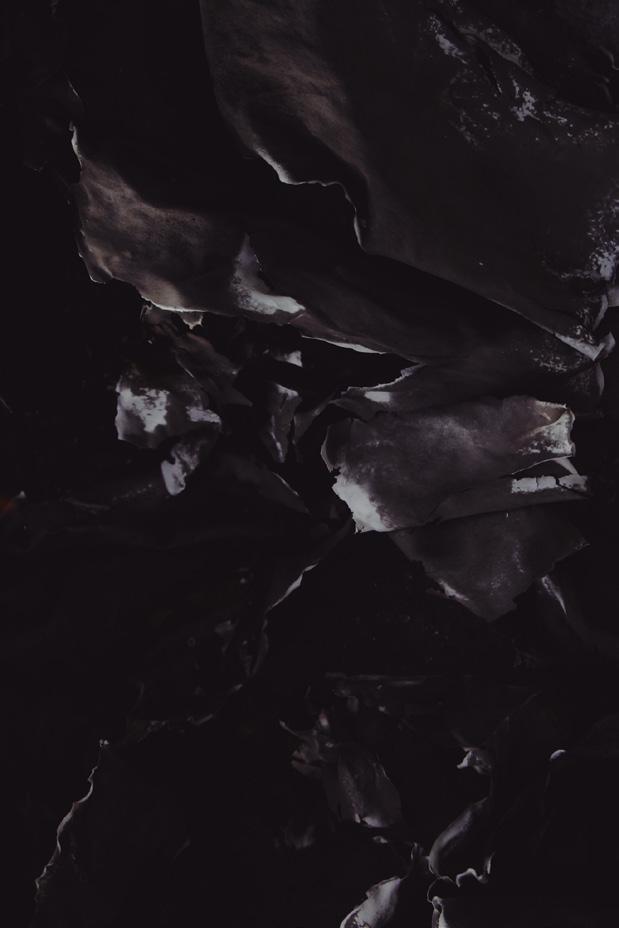

Caspar deVink ’25 McGuffey Selection
Caroline Reilly ’26
Regional Gold Key (pictured)
Regional Silver Key (not pictured) DC Independent Film Festival Selection
Nori Zhang ’27 McGuffey Selection
Jiao Zuck ’26 McGuffey Selection
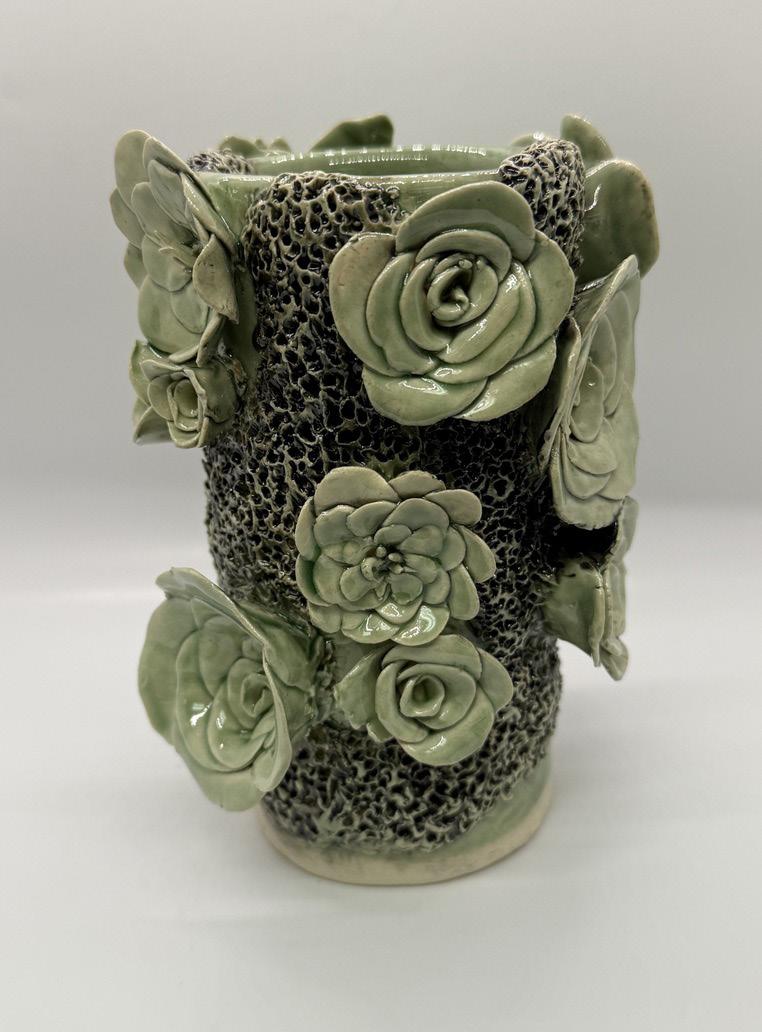

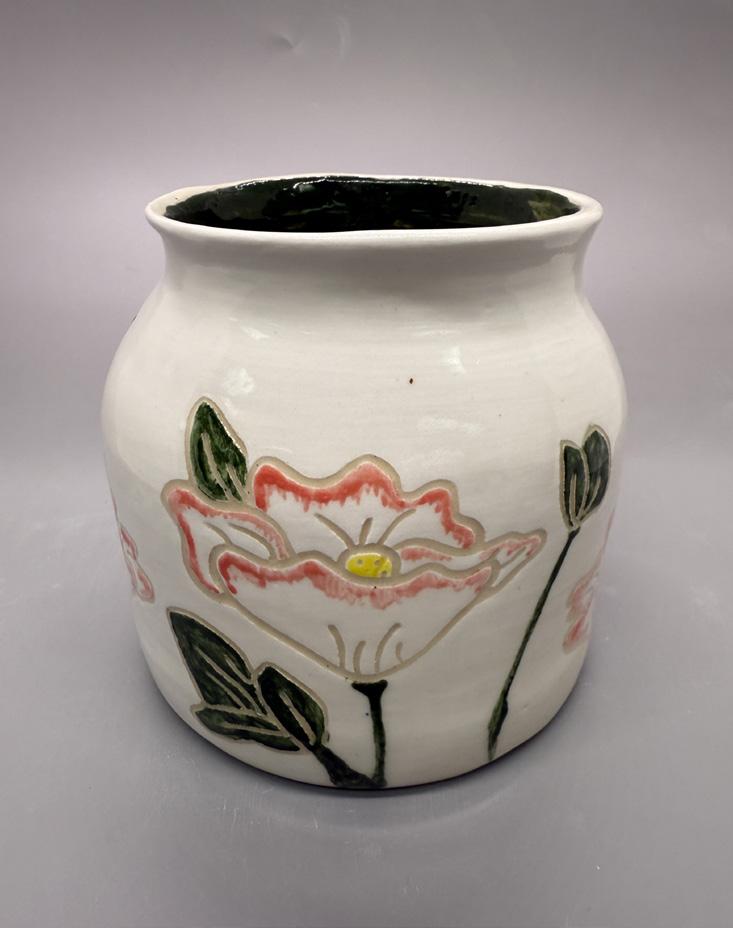

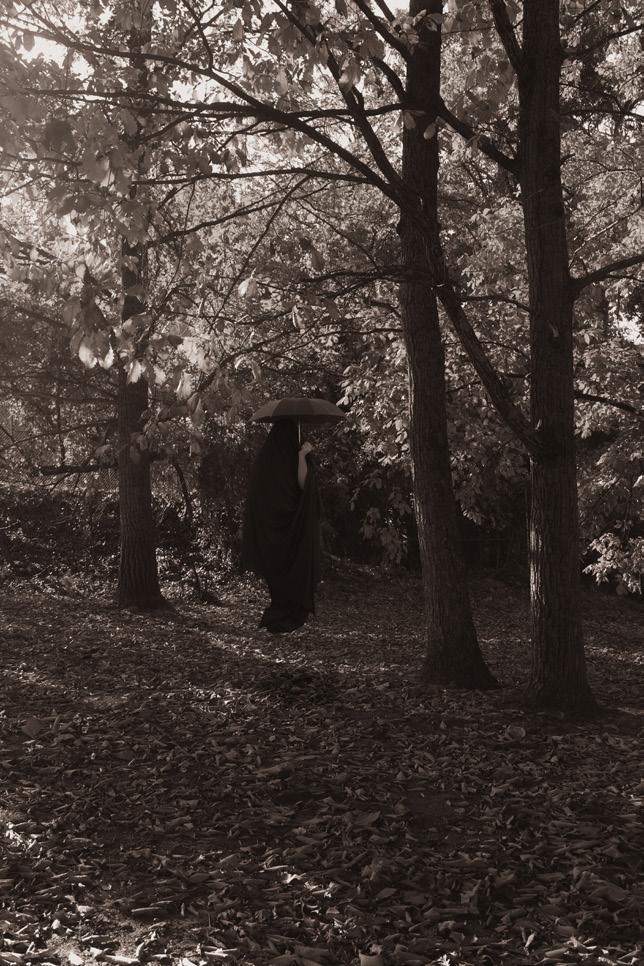

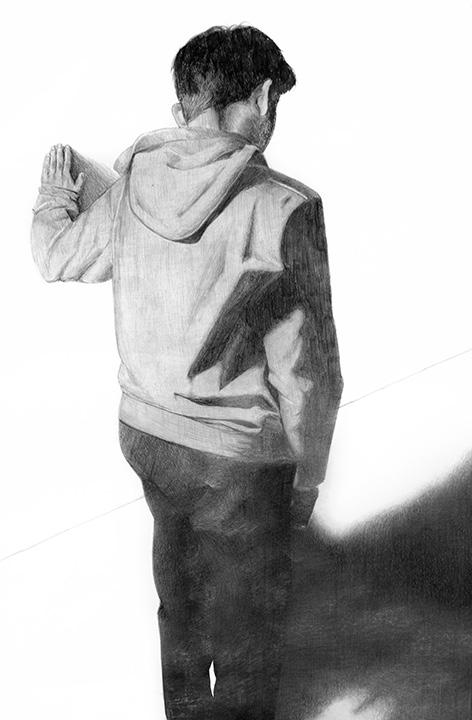

Wes Martin ’25 McGuffey Selection
Sammy Gaughen ’28 McGuffey Selection
Caroline Lang ’25 McGuffey Selection
Willow Pemberton ’25 McGuffey Selection
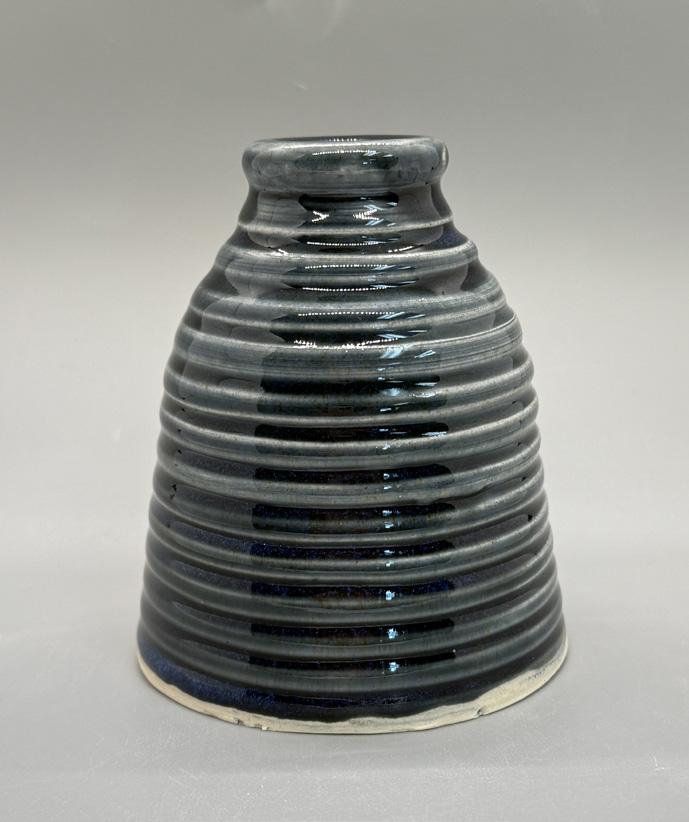

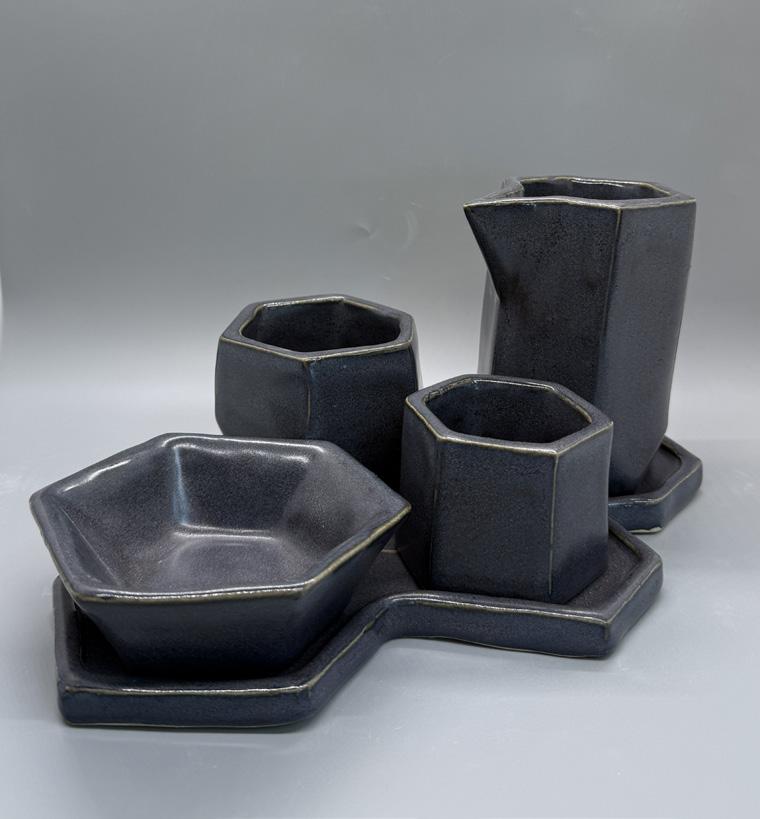

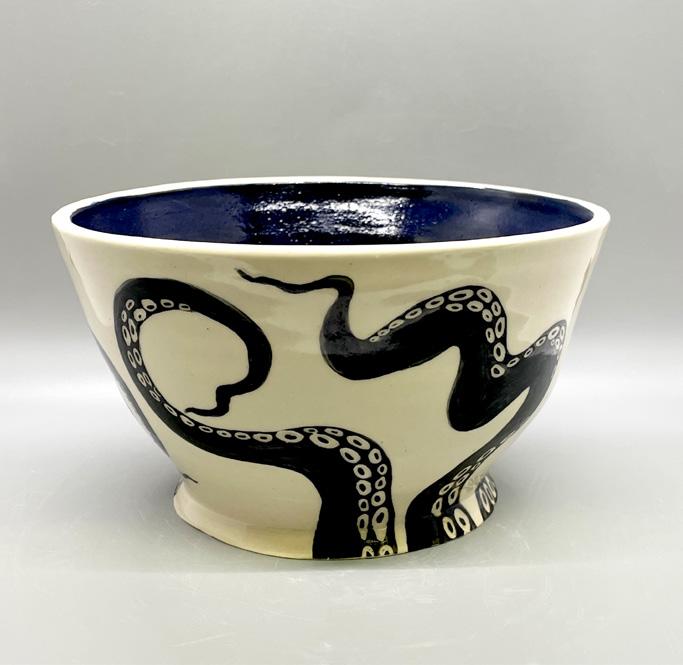

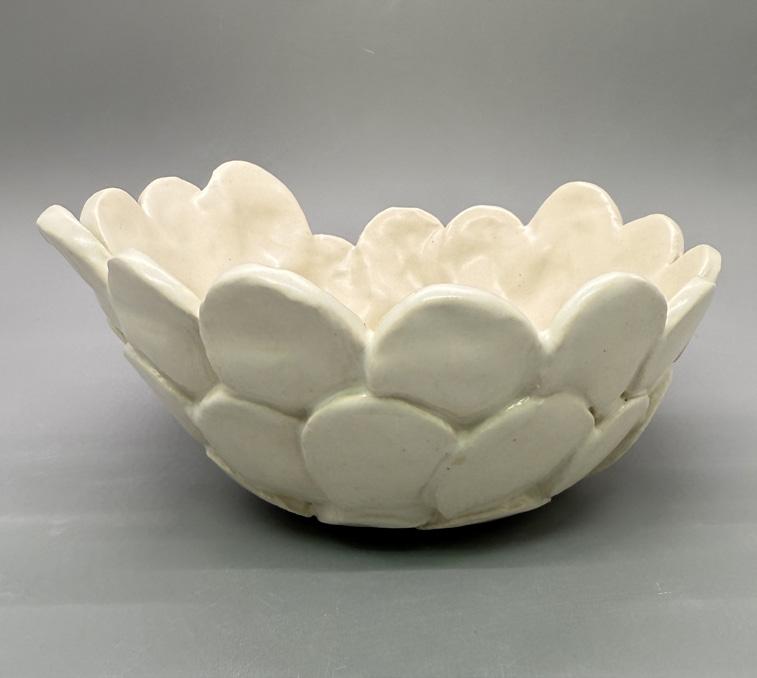

Layla Welsch ’25
Regional Gold Key (Portfolio)
Anna Kelly ’25 McGuffey Selection
Kate Wilber ’25 McGuffey Selection
Lainey Kushkin ’25 McGuffey Selection
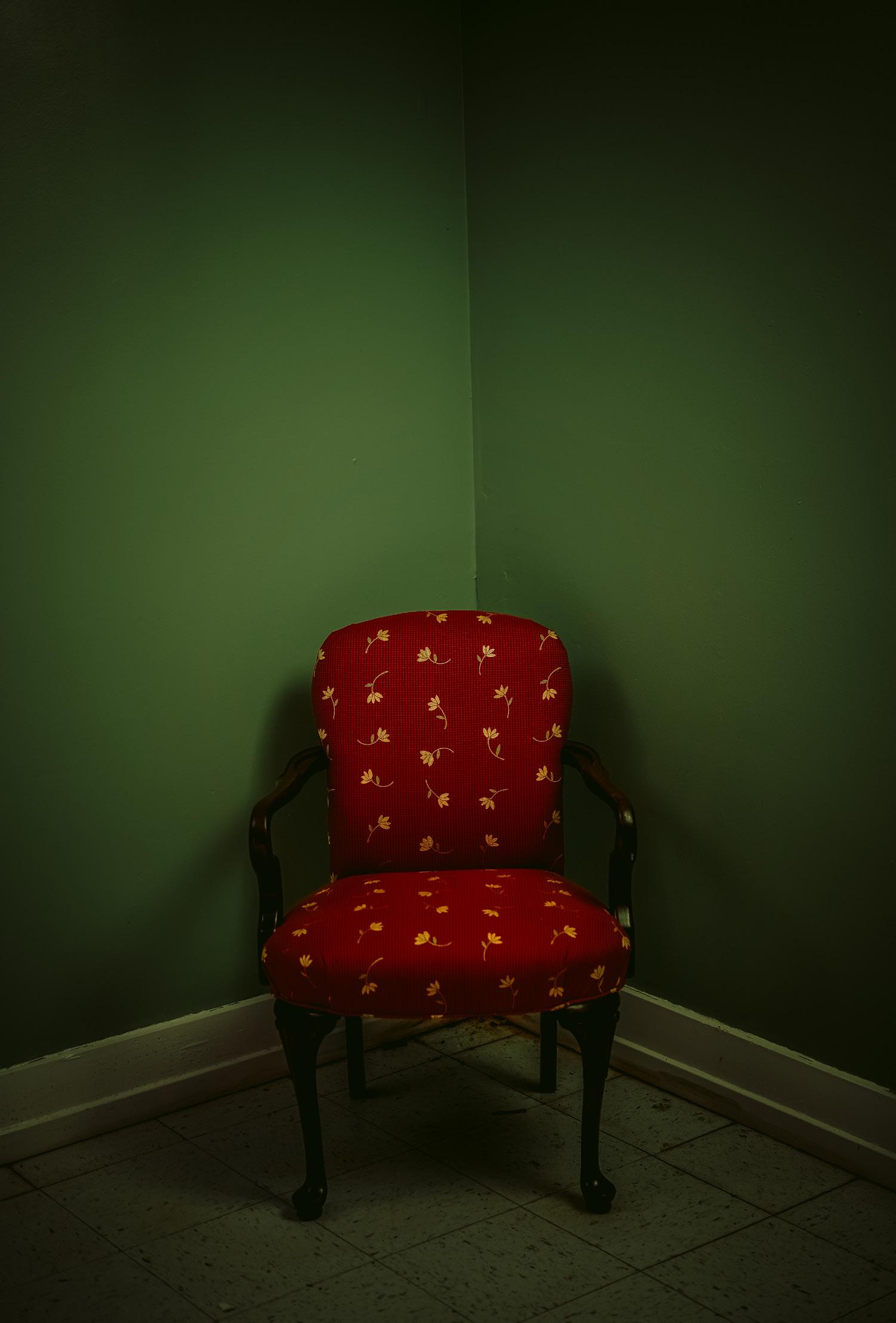



Alex Ashby ’26
Regional Gold Key
National Silver Key
McGuffey Selection
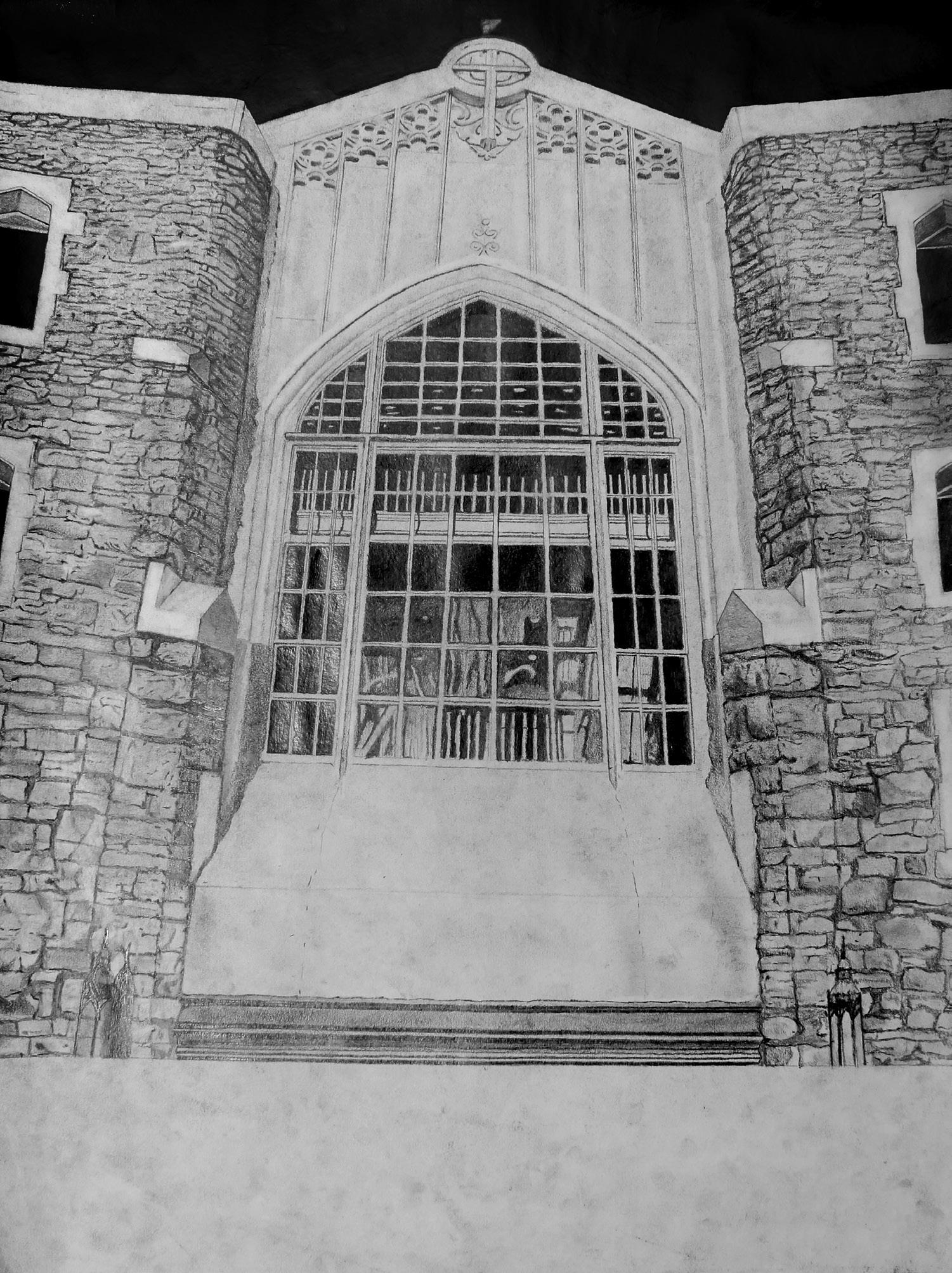

Colin Maher ’25 McGuffey Selection
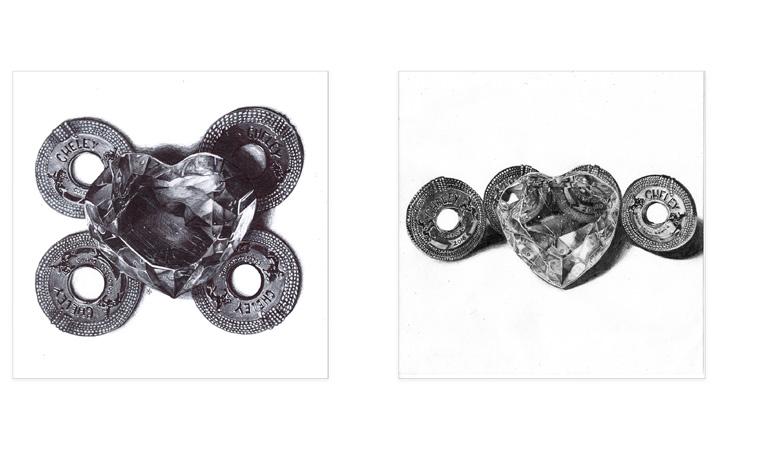

Honorable Mention (Portfolio)

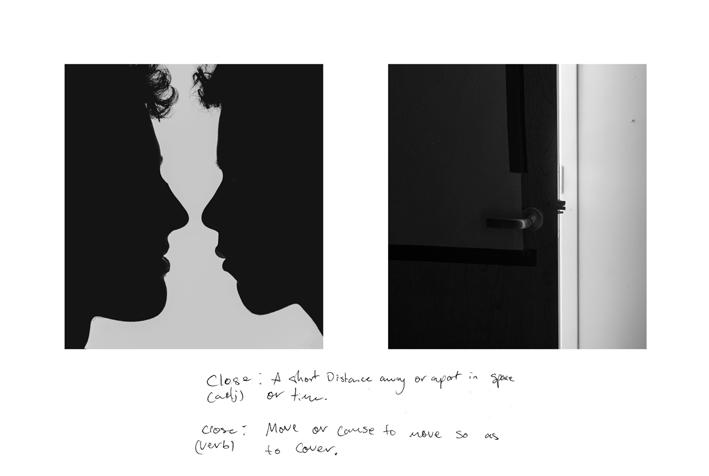

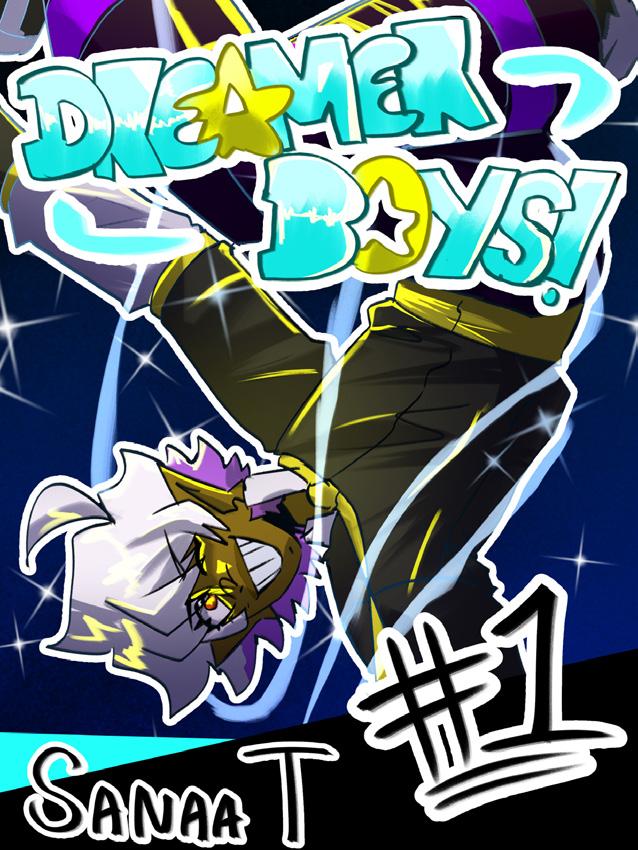

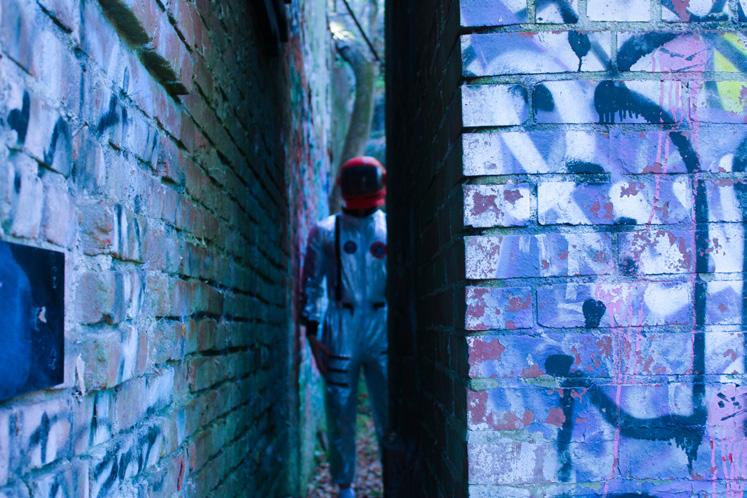


Blake Farnsworth ’26 Regional Gold Key McGuffey Selection
Kade Pratt ’25
McGuffey Selection
Sanaa Thomas ’25 McGuffey Selection
Oscar Hickey ’26 Regional Silver Key
CAPSTONES
Investigations in Creativity
Seniors had the option of pursuing a Capstone, which offers the opportunity to explore deeply a topic with an academic field of their choice. The following represent areas that touched upon visual or literary art.
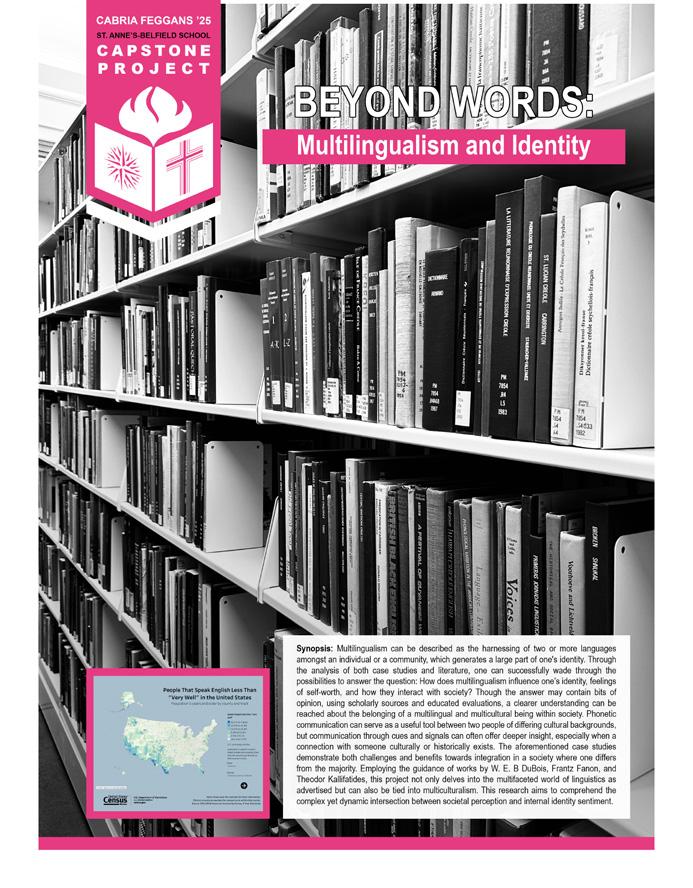
Beyond Words: Multilingualism and Identity
Cabria Feggans ’25
Multilingualism can be described as the harnessing of two or more languages amongst an individual or a community, which generates a large part of one’s identity. Through the analysis of both case studies and literature, one can successfully wade through the possibilities to answer the question: How does multilingualism influence one’s identity, feelings of self-worth, and how they interact with society? Though the answer may contain bits of opinion, using scholarly sources and educated evaluations, a clearer understanding can be reached about the belonging of a multilingual and multicultural being within society. Phonetic communication can serve as a useful tool between two people of differing cultural backgrounds, but communication through cues and signals can often offer deeper insight, especially when a connection with someone culturally or historically exists. The aforementioned case studies demonstrate both challenges and benefits towards integration in a society where one differs from the majority. Employing the guidance of works by W. E. B DuBois, Frantz Fanon, and Theodor Kallifatides, this project not only delves into the multifaceted world of linguistics as advertised but can also be tied into multiculturalism. This research aims to comprehend the complex yet dynamic intersection between societal perception and internal identity sentiment.

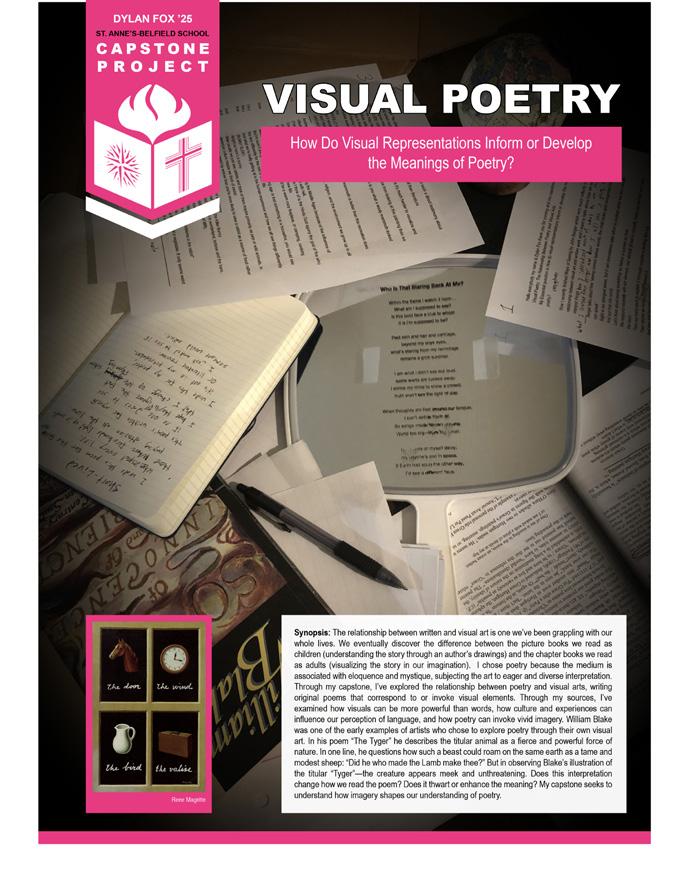
Visual Poetry
Dylan Fox ’25
The relationship between written and visual art is one we’ve been grappling with our whole lives. We eventually discover the difference between the picture books we read as children (understanding the story through an author’s drawings) and the chapter books we read as adults (visualizing the story in our imagination). I chose poetry because the medium is associated with eloquence and mystique, subjecting the art to eager and diverse interpretation. Through my capstone, I’ve explored the relationship between poetry and visual arts, writing original poems that correspond to or invoke visual elements. Through my sources, I’ve examined how visuals can be more powerful than words, how culture and experiences can influence our perception of language, and how poetry can invoke vivid imagery. William Blake was one of the early examples of artists who chose to explore poetry through their own visual art. In his poem “The Tyger” he describes the titular animal as a fierce and powerful force of nature. In one line, he questions how such a beast could roam on the same earth as a tame and modest sheep: “Did he who made the Lamb make thee?” But in observing Blake’s illustration of the titular “Tyger”—the creature appears meek and unthreatening. Does this interpretation change how we read the poem? Does it thwart or enhance the meaning? My capstone seeks to understand how imagery shapes our understanding of poetry.
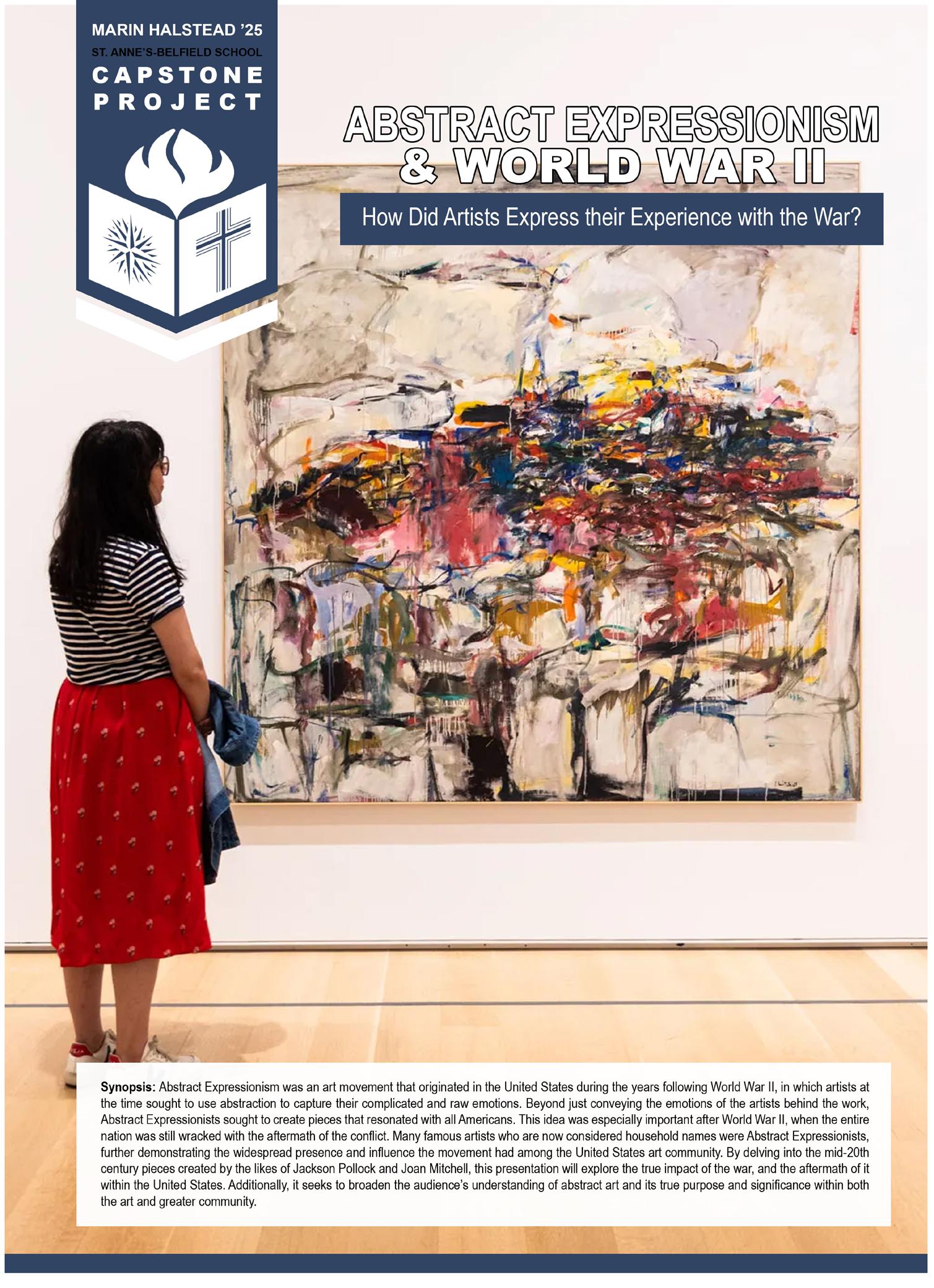
Abstract Expressionism and World War II Art Marin Halstead ’25 Click the QR Code to read the Capstone Paper.

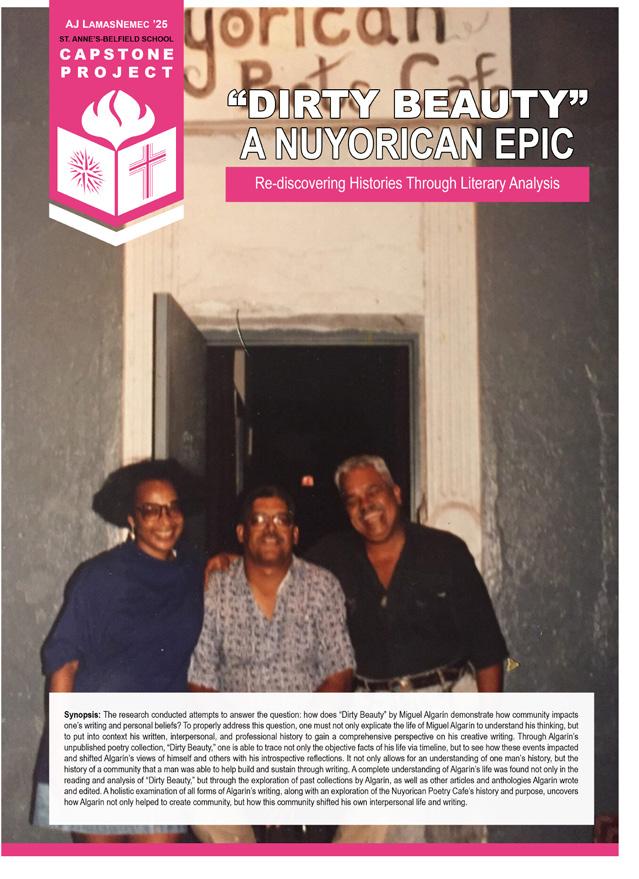
Dirty Beauty: A Nuyorican Epic
AJ Lamas-Nemec ’25
The research conducted attempts to answer the question: how does “Dirty Beauty” by Miguel Algarín demonstrate how community impacts one’s writing and personal beliefs? To properly address this question, one must not only explicate the life of Miguel Algarín to understand his thinking, but to put into context his written, interpersonal, and professional history to gain a comprehensive perspective on his creative writing. Through Algarín’s unpublished poetry collection, “Dirty Beauty,” one is able to trace not only the objective facts of his life via timeline, but to see how these events impacted and shifted Algarín’s views of himself and others with his introspective reflections. It not only allows for an understanding of one man’s history, but the history of a community that a man was able to help build and sustain through writing. A complete understanding of Algarín’s life was found not only in the reading and analysis of “Dirty Beauty,” but through the exploration of past collections by Algarín, as well as other articles and anthologies Algarín wrote and edited. A holistic examination of all forms of Algarín’s writing, along with an exploration of the Nuyorican Poetry Cafe’s history and purpose, uncovers how Algarín not only helped to create community, but how this community shifted his own interpersonal life and writing.

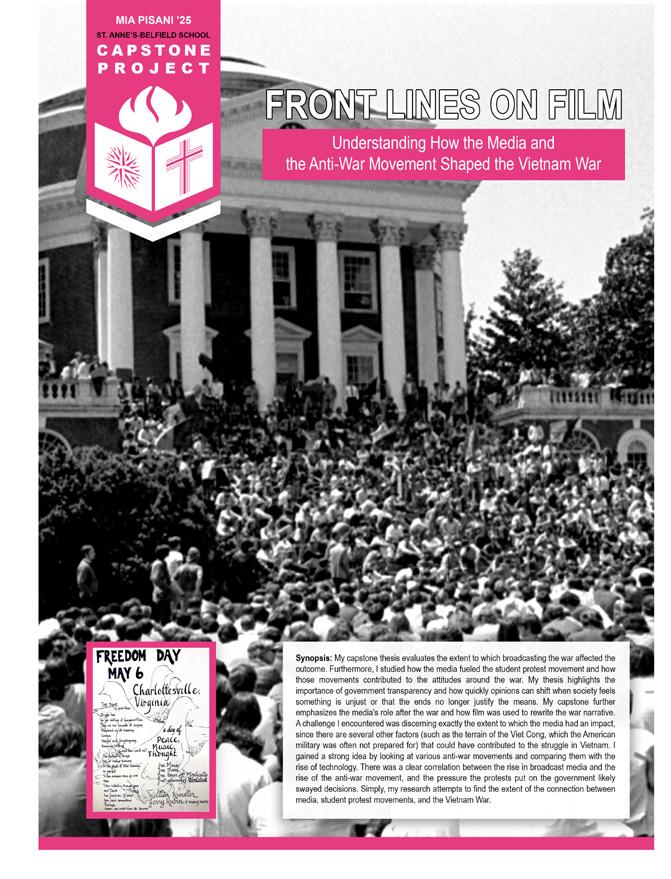
Front Lines on Film
Mia
Pisani ’25
My capstone thesis evaluates the extent to which broadcasting the war affected the outcome. Furthermore, I studied how the media fueled the student protest movement and how those movements contributed to the attitudes around the war. My thesis highlights the importance of government transparency and how quickly opinions can shift when society feels something is unjust or that the ends no longer justify the means. My capstone further emphasizes the media’s role after the war and how film was used to rewrite the war narrative. A challenge I encountered was discerning exactly the extent to which the media had an impact, since there are several other factors (such as the terrain of the Viet Cong, which the American military was often not prepared for) that could have contributed to the struggle in Vietnam. I gained a strong idea by looking at various anti-war movements and comparing them with the rise of technology. There was a clear correlation between the rise in broadcast media and the rise of the anti-war movement, and the pressure the protests put on the government likely swayed decisions. Simply, my research attempts to find the extent of the connection between media, student protest movements, and the Vietnam War.
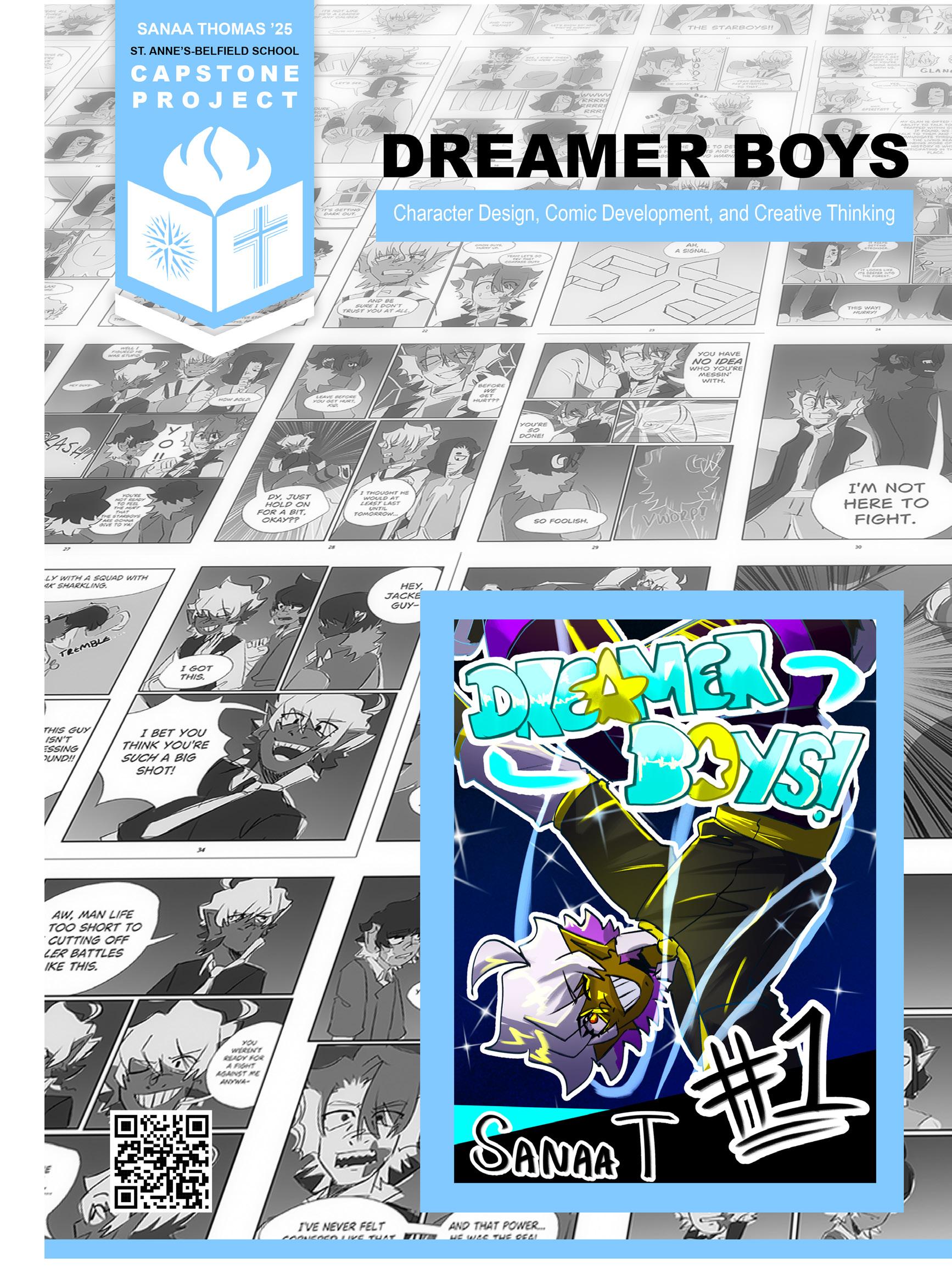
There are many things the average comic book reader does not consider, like the process of making an issue. My thesis explored the pre-production and production of making a comic from start to finish as a one-person team. I worked for eight months, and experienced many challenges; my presentation will show the inner workings of what goes on behind the scenes. From gathering inspiration to the lack of motivation and everything in between, there is a lot of work that is put into maintaining a steady workflow for something tangible like a book! Using different sources, such as mainstream and indie comics, public portfolios, etc., I first crafted interesting characters and then put them in a short story to speak for themselves. Click the QR Code to read the graphic novel.
Dreamer Boys Sanaa Thomas ’25
The print version of PLUM Spring 2025 Volume 1 was funded by the St. Anne’s-Belfield Arts Boosters.

To learn more about the Arts Boosters, please scan the QR Code below.


